Shows

OECD PodcastsLabels matter: Putting people over profitWith hundreds of sustainability and impact labels in circulation, how can consumers, policymakers and investors identify organisations that really do put people over profit? And why does it matter for the social economy?
In this episode of Cogito Talks, Shayne MacLachlan is joined by Ruben Rebelo from the European Commission and Sofija Rakcejeva from the OECD to explore how labels can do more than just make social economy more visible and easier to support but also help people do better.
Drawing on a recent joint OECD and European Commission report, we will unpack the different types of labels that exist...
2026-01-2319 min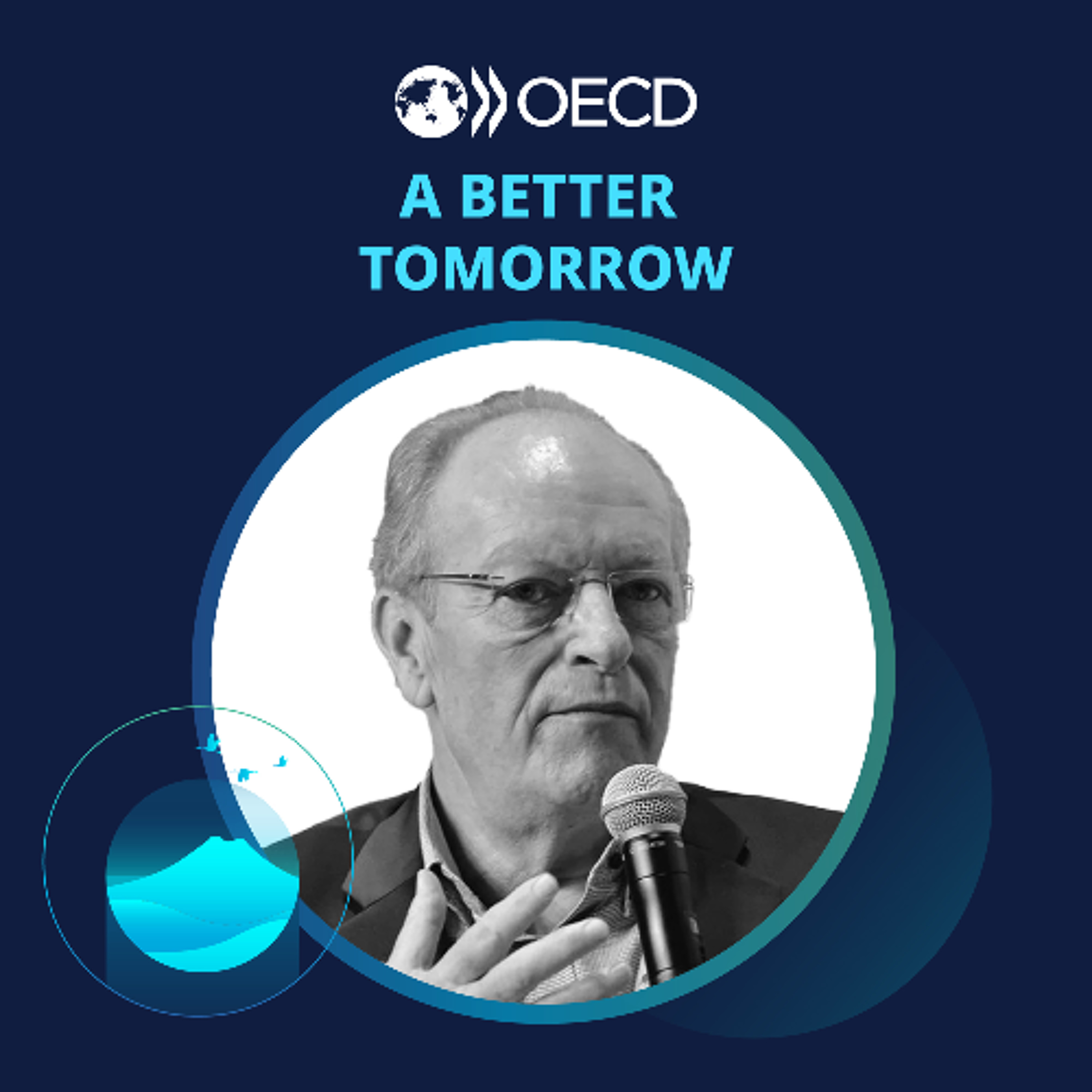
OECD PodcastsCOGITO Talks… What in the World is the Tropical Economy?Imagine a world where rural and tropical regions aren’t struggling backwaters, but breeding ground for fresh ideas, new jobs and sustainable growth. According to OECD’s Rural Innovation Pathways, rural innovation isn’t just a smaller copy of what happens in cities, it’s different: rooted in community‑led projects, adaptive agriculture, renewable energy, social enterprises and creative responses to local needs. https://www.oecd.org/en/publications/rural-innovation-pathways_c86de0f4-en.html
The “tropical economy” vision isn’t pie‑in‑the‑sky, it fits squarely within OECD’s roadmap for leveraging natural capital, innovation and place‑based assets to build resilient...
2025-12-2222 min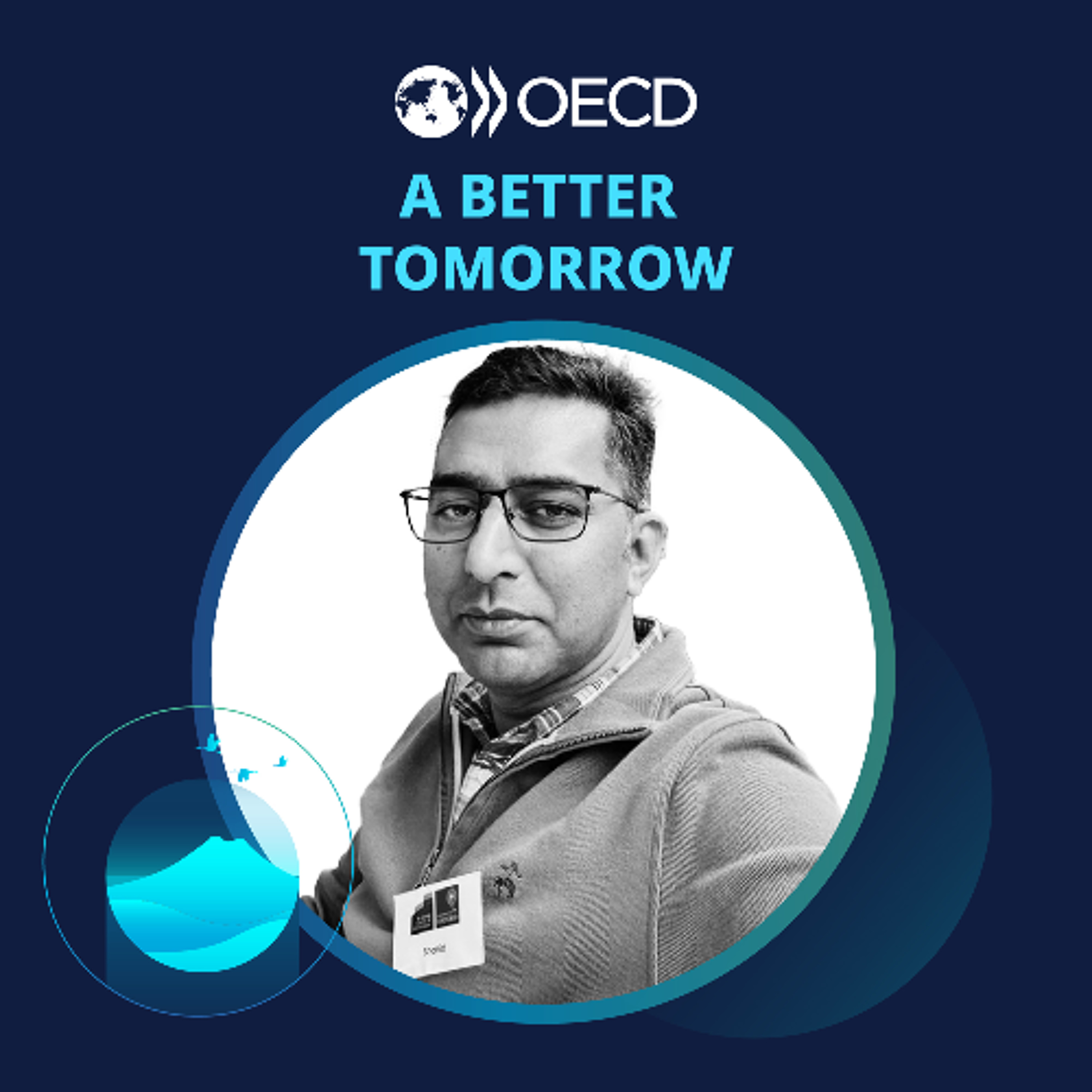
OECD PodcastsCOGITO Talks… Click, Vote, Grow: How India is 'rural proofing' its futureIndia's rural areas are developing at an extraordinary rate, and it poses both challenges and extraordinary opportunities to rethink development at a large scale. Across the OECD, over nine in ten households are now connected to the Internet, but in rural regions connectivity still lags behind, with only about 89% of rural households having even a basic broadband connection. https://www.oecd.org/en/publications/2024/11/oecd-digital-economy-outlook-2024-volume-2_9b2801fc.html
India reflects these contrasts in its own way, but the speed of change is remarkable. Over the four years ending in December 2024, internet penetration in rural India surged from 59% to 78%, a...
2025-12-1820 min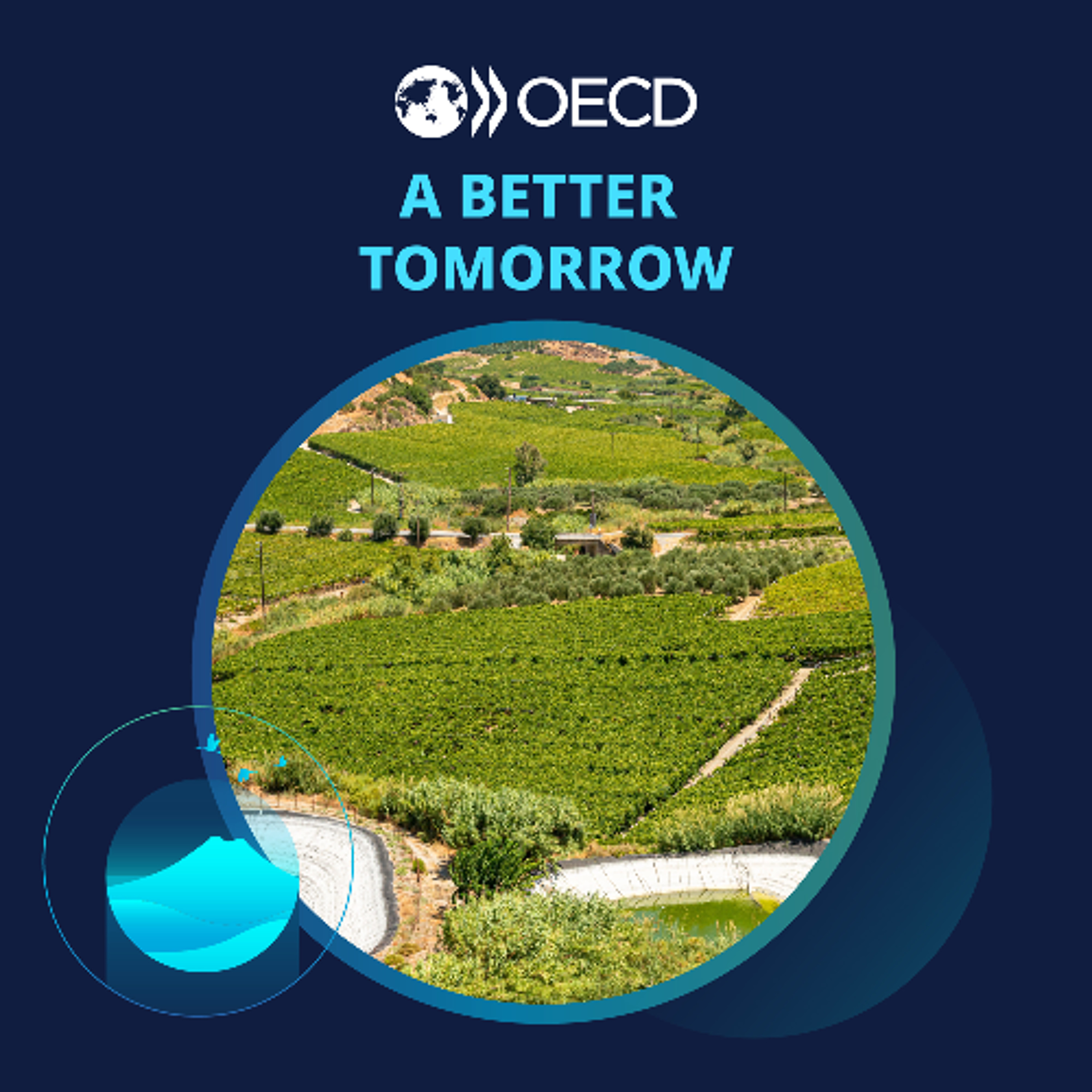
OECD PodcastsCOGITO Talks… Lean on Me: Three pillars for rural prosperityThe OECD Report for Regional Policy for Greece Post-2020 (https://www.oecd.org/en/publications/regional-policy-for-greece-post-2020_cedf09a5-en.html) revealed that 32% of the population lives in predominantly rural regions which is significantly higher than the OECD average share of rural population which is around 25%. Of those living in predominantly rural regions (~3.4 million people), roughly 3 million live in remote rural regions meaning Greece has one of the largest shares in this demographic among OECD countries.
Recorded live from the OECD Rural Development Conference in Rio de Janeiro, Greek officials Vasiliki Pantelopoulou (Secretary-General of the Partnership Agreement) and Christos Kyrkoglou (General...
2025-12-1620 min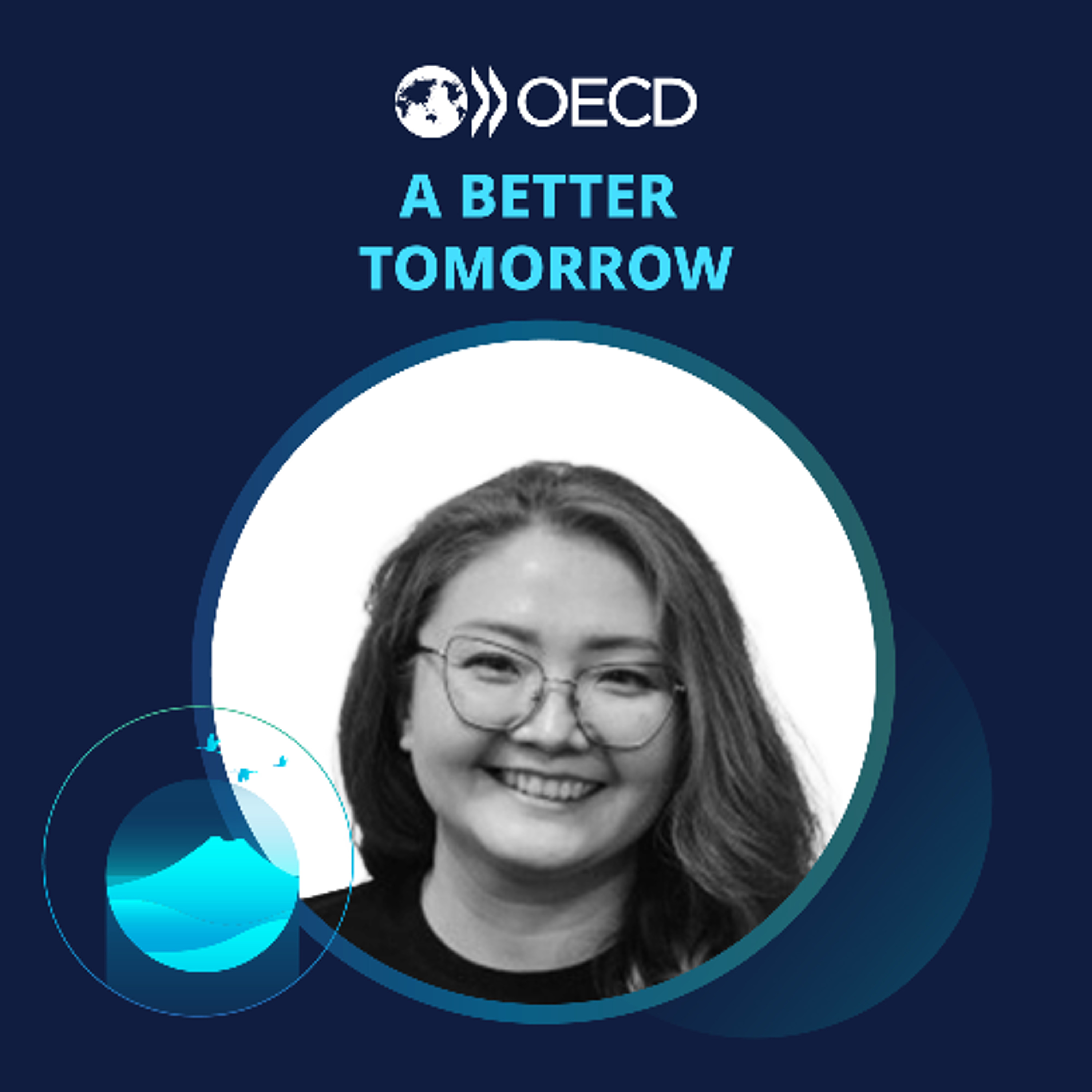
OECD PodcastsCOGITO Talks… From vanishing villages to vital visions: The future of rural KazakhstanRural populations are shrinking. In 11 of the 29 OECD countries included in the OECD Reinforcing Rural Resilience report (https://www.oecd.org/en/publications/reinforcing-rural-resilience_7cd485e3-en.html), rural populations are declining, not only as percentage of national populations but also in absolute numbers. Rural regions close to cities are also exposed to this trend, particularly if their populations tend more easily to move to urban areas. Despite not being an OECD Member country, Kazakhstan is experiencing similar trends. During the Soviet Union, its urban population was 53% but today that percentage has increased to 63%. Now only 37% of its population is...
2025-12-1121 min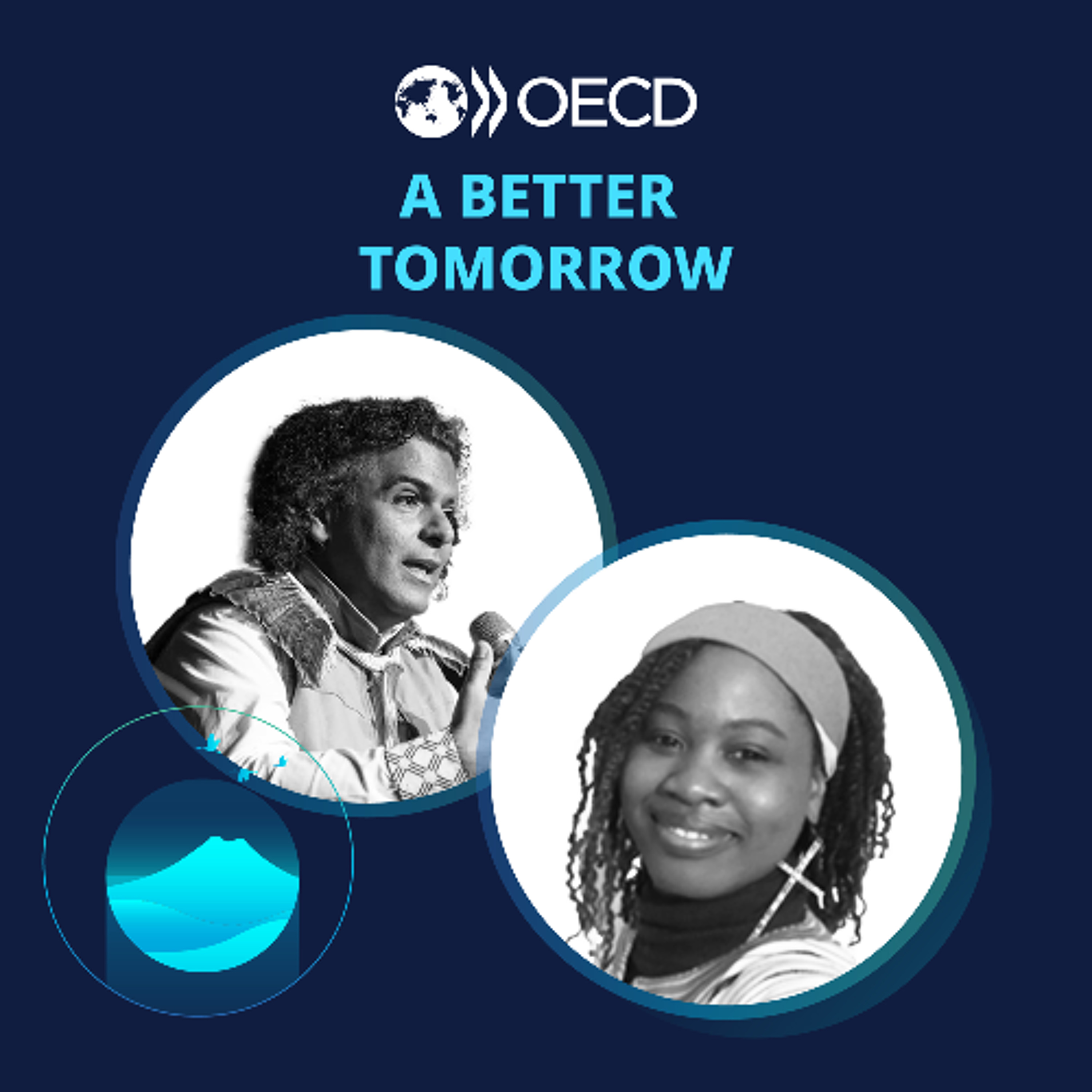
OECD PodcastsCOGITO Talks… Roots of Wisdom: Indigenous Perspectives for Policy MakersThe 2025 OECD Report Reinforcing Rural Resilience reveals that OECD regions have seen a significant loss of forests, with approximately 10% of their forest cover disappearing between 2000 and 2020. This decline is driven by a combination of factors, including land conversion for agriculture, urban expansion, and the increasing demand for natural resources. Some countries and regions have experienced even more severe losses, particularly in areas where deforestation and forest fires have been widespread. This loss of forest cover has profound implications for biodiversity, carbon sequestration, and the overall health of ecosystems highlights the changes in forest cover across different OECD countries and regions...
2025-12-0222 min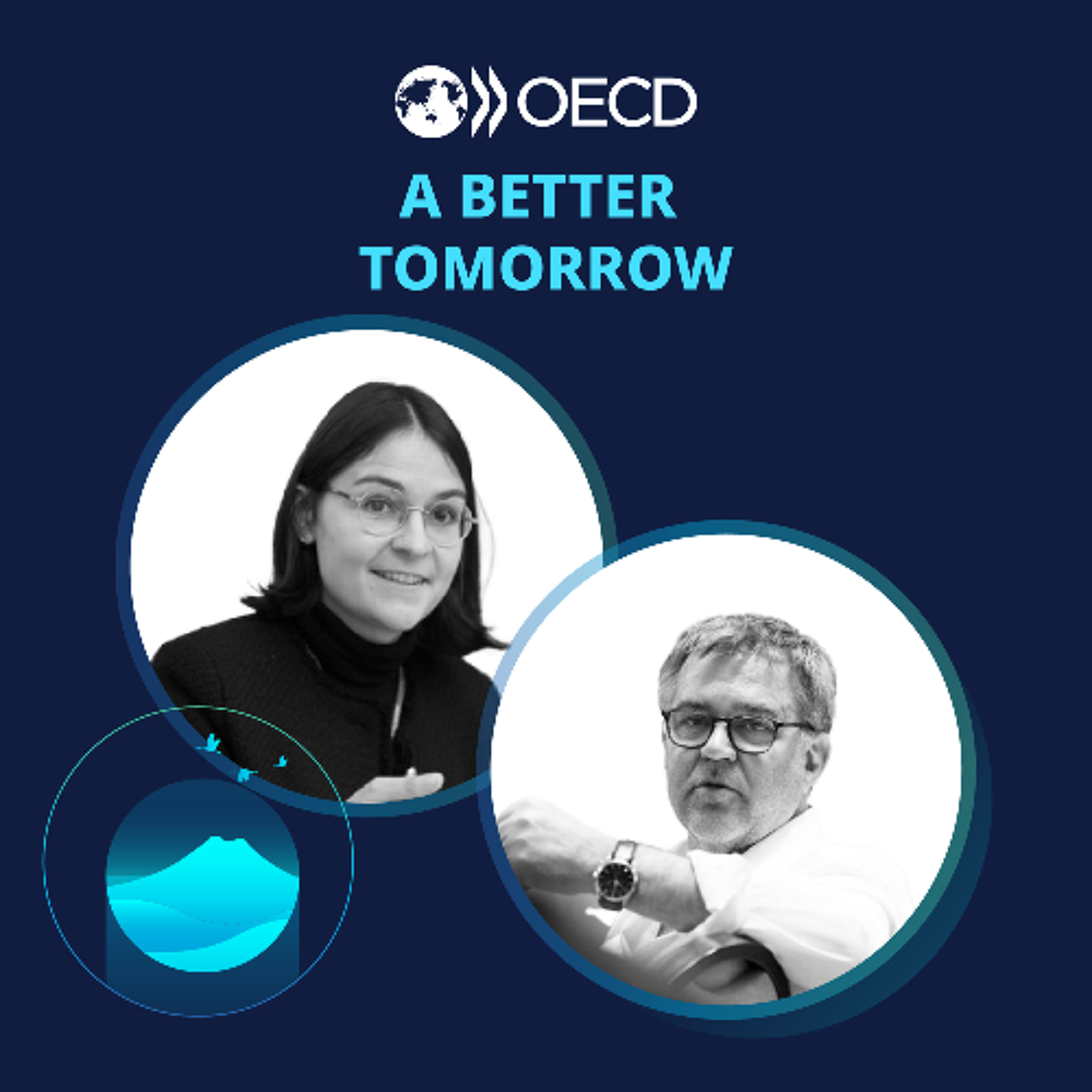
OECD PodcastsCOGITO Talks… La République des Hyper VoisinsRecent OECD data show that around one in ten people across member countries have no one they can rely on in times of need, underscoring the growing urgency of loneliness and social isolation. In today’s episode, we explore how one Parisian neighbourhood has decided to push back through the creation of a vibrant community movement that’s reshaping daily life.
Recorded with Patrick Bernard founder of La République des hypers voisins, and Marion Lagadic, an OECD colleague who is also a member of the collective, this conversation dives into how a small gathering in a local restaurant blossomed into...
2025-11-2518 min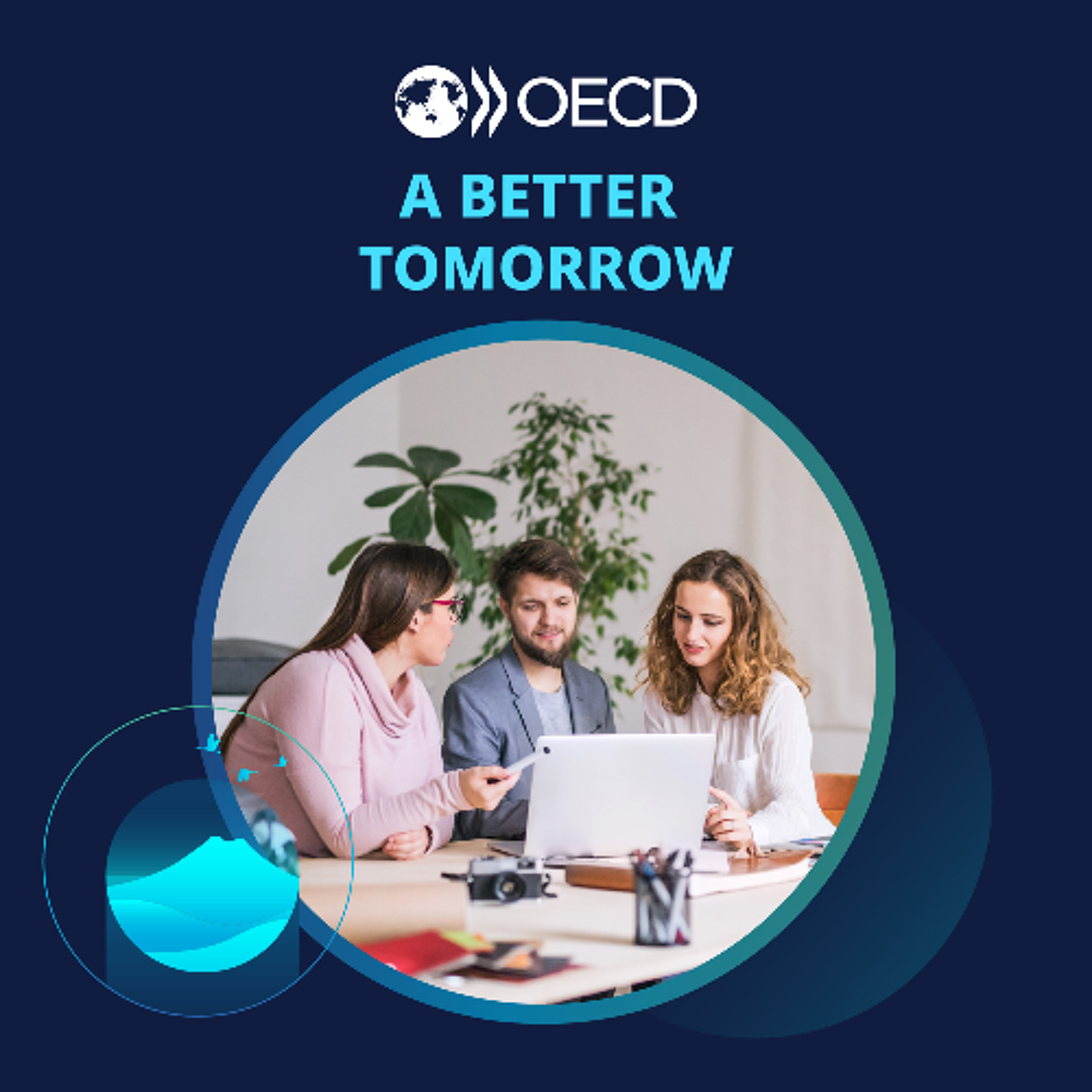
OECD PodcastsYouth entrepreneurs uncovered: Dare to dream...YEPA panel specialRecent OECD data shows that less than 40% of young people aged 18 to 30 feel they have the skills and experience needed to start a business. https://www.oecd.org/content/dam/oecd/en/publications/reports/2019/12/the-missing-entrepreneurs-2019_668840b2/3ed84801-en.pdf In today’s episode, you’ll not only hear inspiring stories about young people who have turned their enterpreneurial dreams into realities, but we will discuss how youth entrepreneurship policies are helping bridge the skill and experience gap.
Recorded during the youth entrepreneurship policy academy (YEPA) Summit in Brussels, this session captures YEPA’s mission through an inspiring panel of three young...
2025-11-1021 min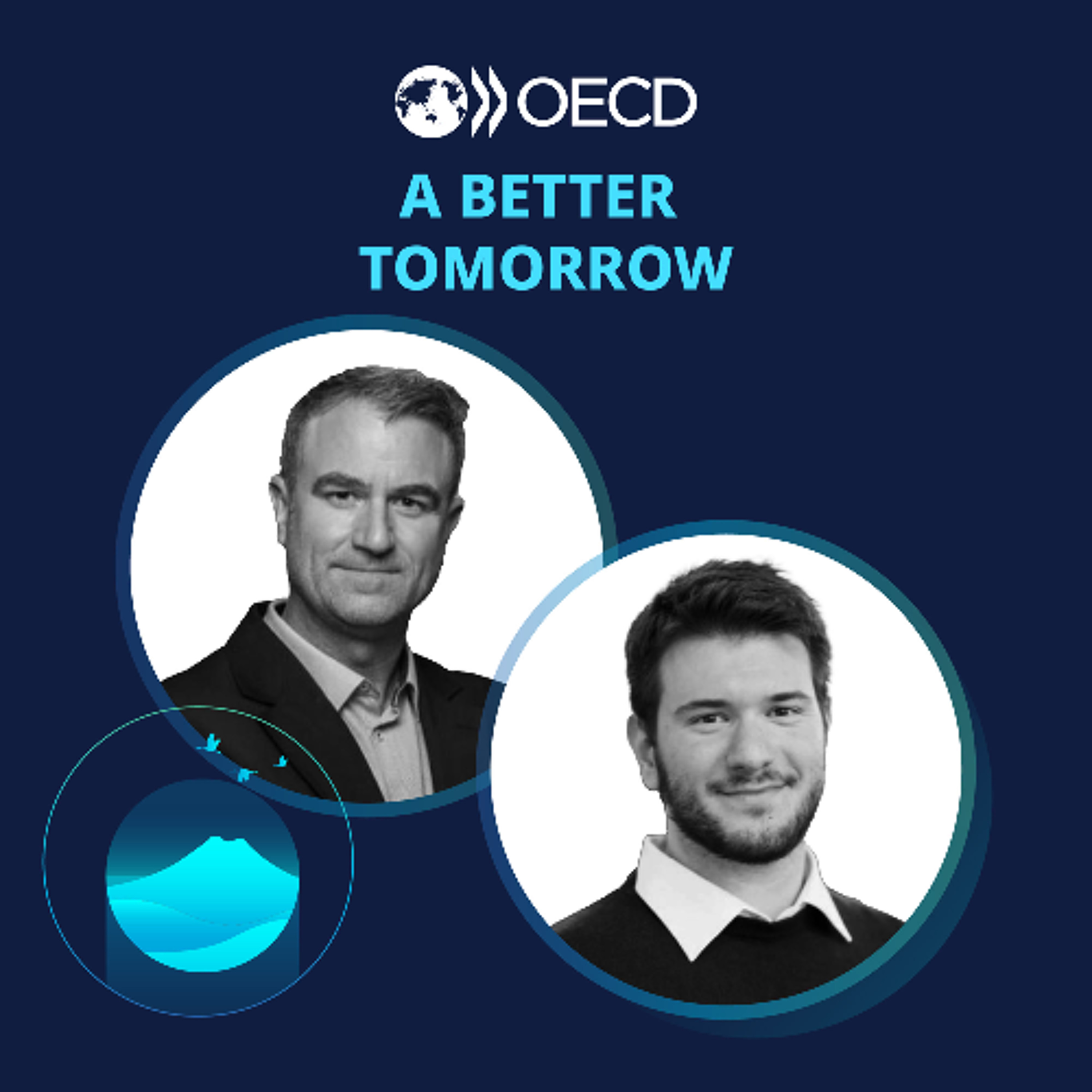
OECD PodcastsYouth entrepreneurs uncovered: Joni Rakipi, in his own wordsEven though 40% of young people would prefer to be self-employed, the reality does not match their aspirations. If young people were as active in entrepreneurship as 30- to 49-year-old men, there would be an additional 3.6 million more young entrepreneurs across OECD countries.
This episode of OECD podcast features Joni Rakipi from ETH Zürich and is hosted by Shayne MacLachlan from the CFE. Joni, originally from Albania and now based in Zürich, explains deeptech as solving complex problems through scientific breakthroughs, emphasising its long-term impact. He highlights barriers young entrepreneurs face, such as limited access for foreign nationals and re...
2025-10-2715 min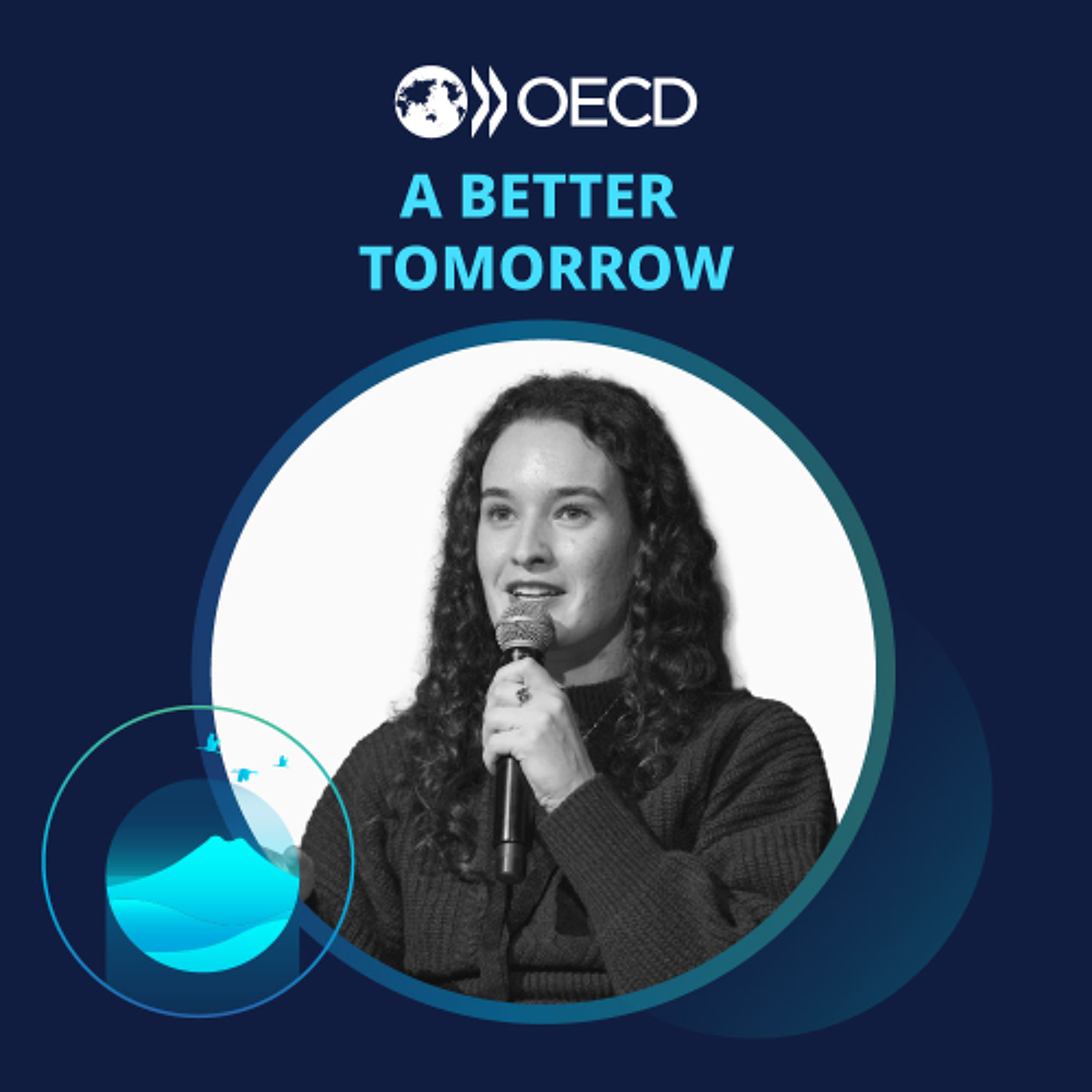
OECD PodcastsYouth entrepreneurs uncovered: Elina Cohen-Peirano, in her own wordsEven though 40% of young people would prefer to be self-employed, the reality does not match their aspirations. If young people were as active in entrepreneurship as 30- to 49-year-old men, there would be an additional 3.6 million more young entrepreneurs across OECD countries. In this episode of OECD podcasts, Alix Philouze chats to Elina Cohen-Peirano, CEO & founder of URONE and a young entrepreneur who founded her first company at the age of 17. They discuss all things youth entrepreneurship – from balancing entrepreneurship and studies to the policy challenges facing youth entrepreneurship and the legacy of the YEPA programme, tune in to hear fr...
2025-10-2216 min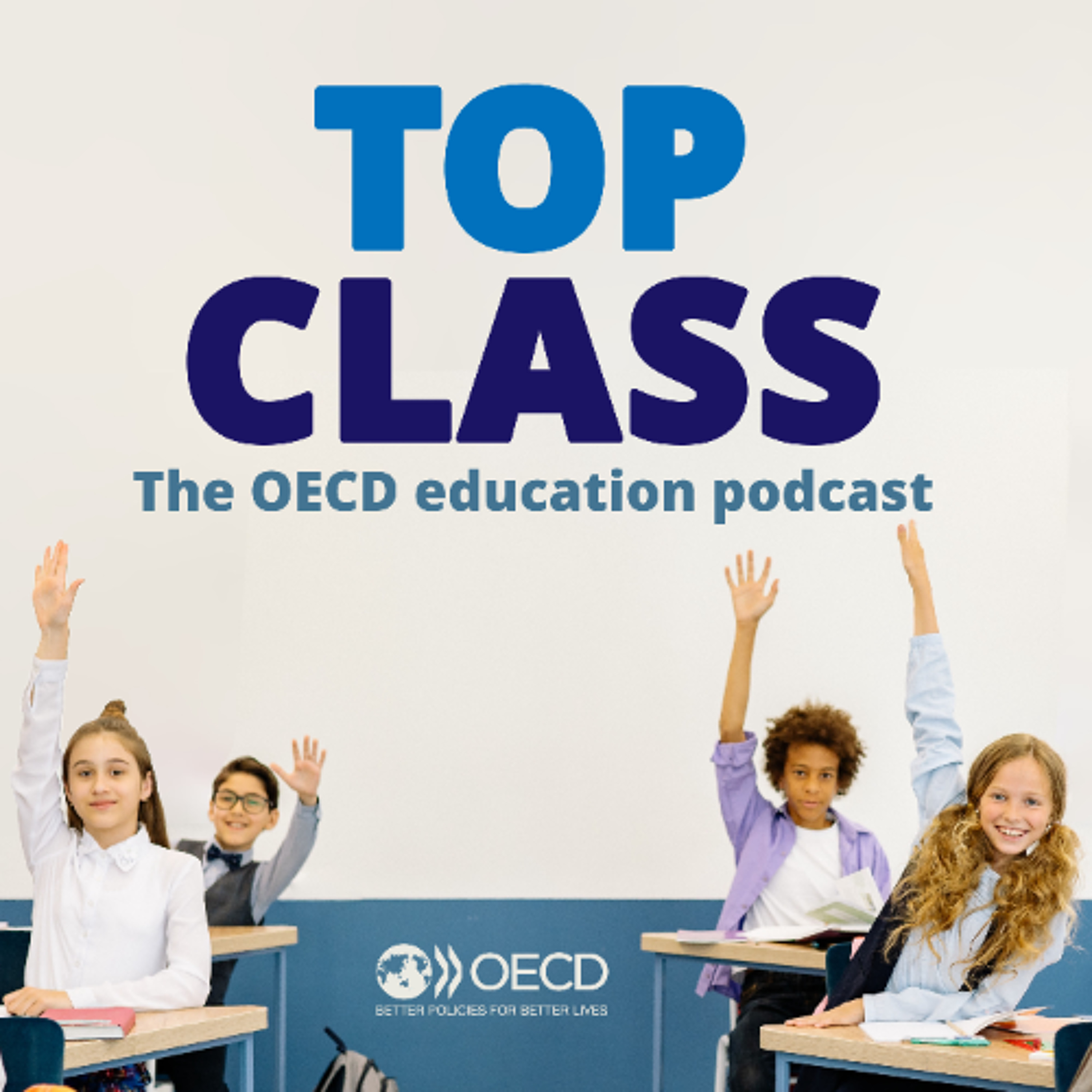
Top Class: The OECD Education Policy Podcast | Teachers, PISA, StudentsThe state of global education, with OECD’s Andreas SchleicherMore people are getting degrees than ever before, but family background has a big influence on whether people pursue university or another form of tertiary education. That’s one of the key findings of this year’s OECD report Education at a Glance. The report is the authoritative source of information on the state of education worldwide, with data on the structure, financing and performance of education systems across OECD countries and partner economies. In this edition of Top Class, the OECD’s Director for Education and Skills Andreas Schleicher speaks to OECD Editor Duncan Crawford about the main findings.
2025-09-1025 min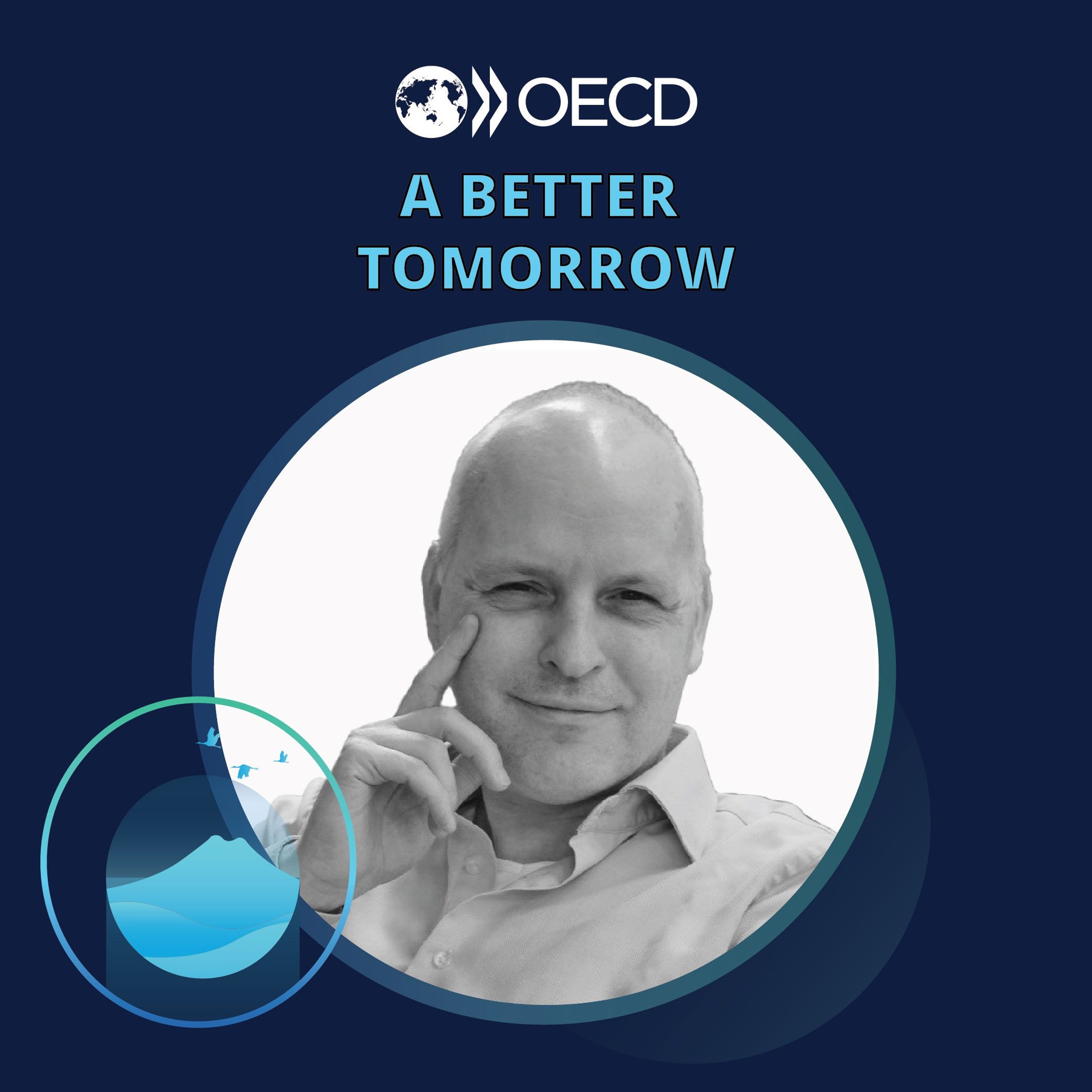
OECD PodcastsHope or hype: Can social innovation really deliver?How can we turn great ideas into lasting social impact? In this episode of the OECD Podcast, Shayne MacLachlan speaks with Jeroen Jutte, Head of the European Social Fund Coordination Unit at the European Commission. They explore how the EU is using its flagship funding instrument to support and scale social innovation—from pilot projects in disadvantaged communities to multi-country initiatives reaching millions. With funding of over €2 billion dedicated to social innovation, the ESF+ offers a powerful model for using public investment to solve social challenges. Tune in to learn how Europe is taking ideas from the ground and turning them...
2025-07-0718 min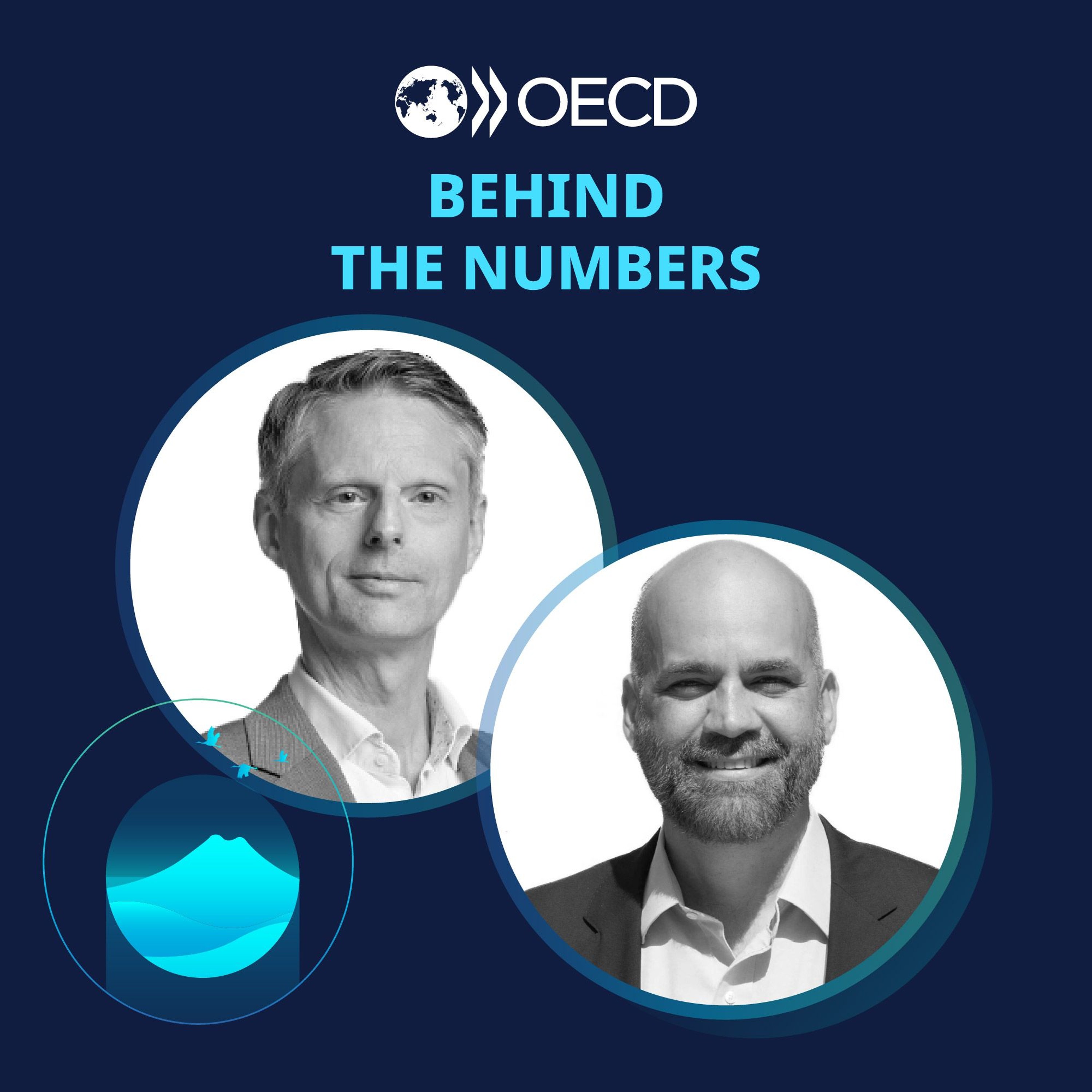
OECD PodcastsDoes healthcare deliver for patients? Insights from OECD’s PaRIS initiativeFor far too long, healthcare performance indicators have centred on inputs—like funding and infrastructure—or processes—like hospital admissions or waiting times—without adequately capturing the experiences and outcomes of the people receiving care.
The OECD’s PaRIS Survey upends that dynamic, shining a light on how older people with chronic conditions feel about their care, how healthy they really feel, and how their everyday lives are affected.
The latest figures are now out: with over 107K patients in over 1800 primary care practices across 19 countries, the survey highlights that living longer doesn’t always mean living better, especially if care experie...
2025-05-1228 min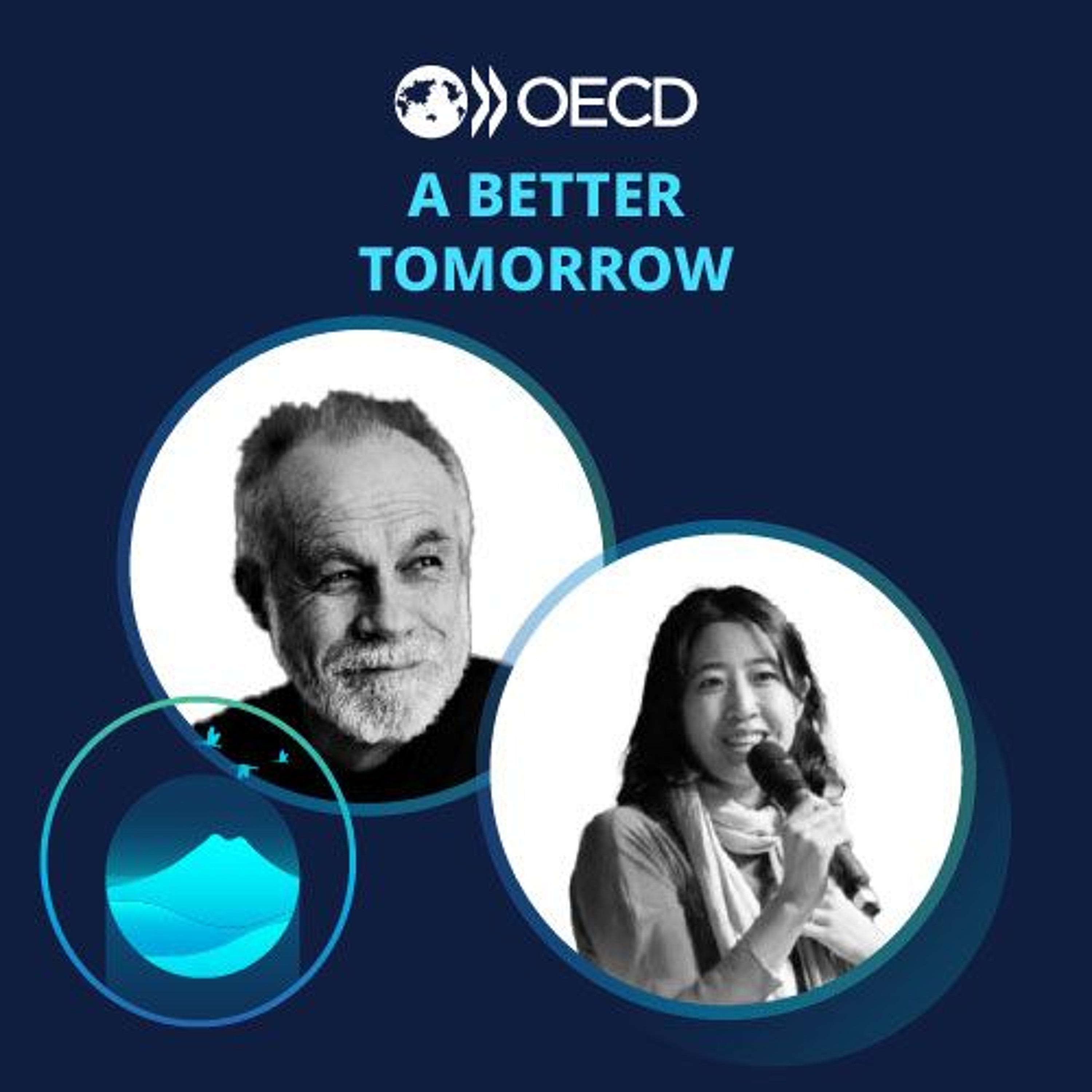
OECD PodcastsFrom the 15-minute city to the 30-minute region: Rethinking how we live and connectWhat happens when we flip the urban planning script — putting people, not cars, at the heart of our cities and regions? In this 15-minute episode, Professor Carlos Moreno - creator of the “15-minute city” and now a leading voice behind the “30-minute region” - joins the OECD’s Soo-Jin Kim to explore how we can build more inclusive, connected and resilient places.
From the sidewalks of Paris to rural areas reimagining public services, Carlos shares a bold vision of proximity, empowerment, and local opportunity. Tune in to hear how the future of urban and regional development might be just around the corner —...
2025-04-1714 min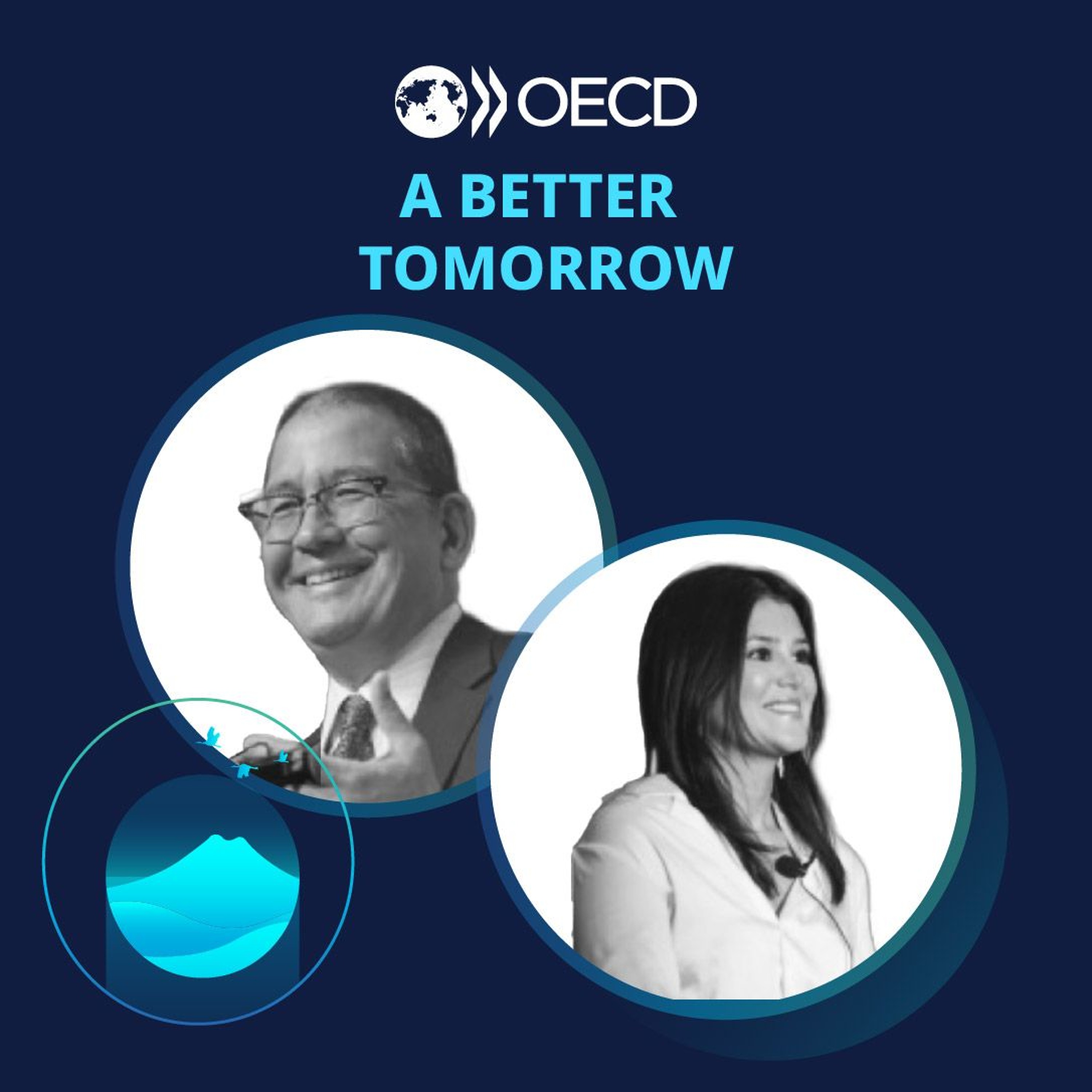
OECD PodcastsPower Shift: When First Nations Lead the FutureWhat happens when First Nations take the lead in shaping the future of clean energy and infrastructure in Indigenous communities? In this episode, we hear from Mark Podlasly, CEO of the First Nations Major Projects Coalition (FNMPC) and member of the Nlaka’pamux Nation in British Columbia. He speaks with Sinead Teevan from the OECD about how the coalition is helping First Nations secure ownership in major energy and infrastructure projects. The FNMPC, now representing 175 communities across Canada, focuses on the economic, environmental, and public policy interests of its members.
Together, they explore the power of Indigenous consent, the importance of...
2025-04-1611 min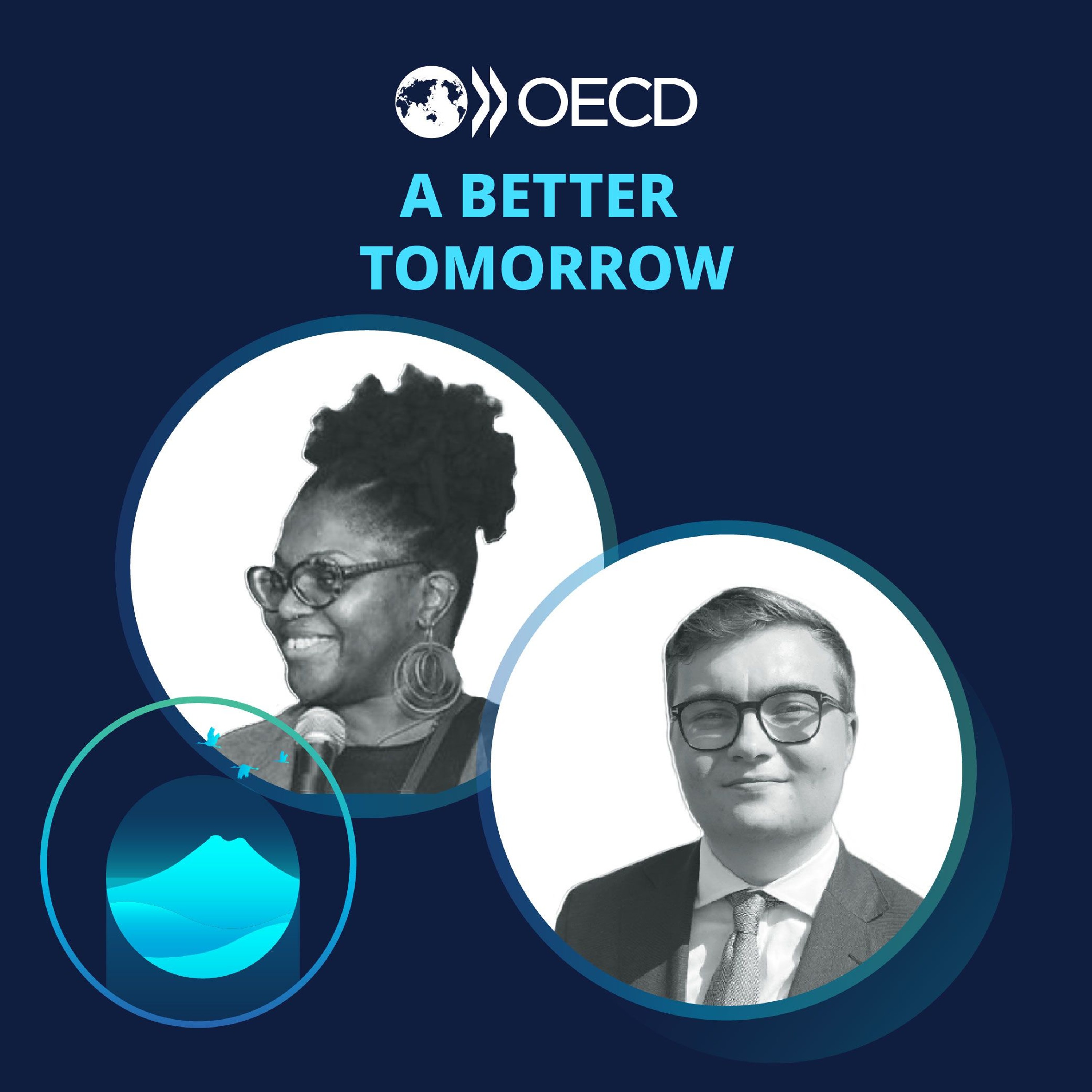
OECD PodcastsWinners without medals: The legacy of volunteersVolunteers are the beating heart of any event, from the Olympics to your local school sports day. But beyond the medals and podiums, what impact does volunteering have on individuals, communities, and the broader economy?
In this episode, we speak to Max Jablonowski and Betty Anne Bryce, who volunteered at the Paris 2024 Olympic and Paralympic Games. They share their behind-the-scenes experiences, the personal and professional skills they gained, and why volunteering is a powerful force for social good. They also explain what policy makers can do to support and sustain this essential activity.
So, join us as we explore the...
2025-03-0422 min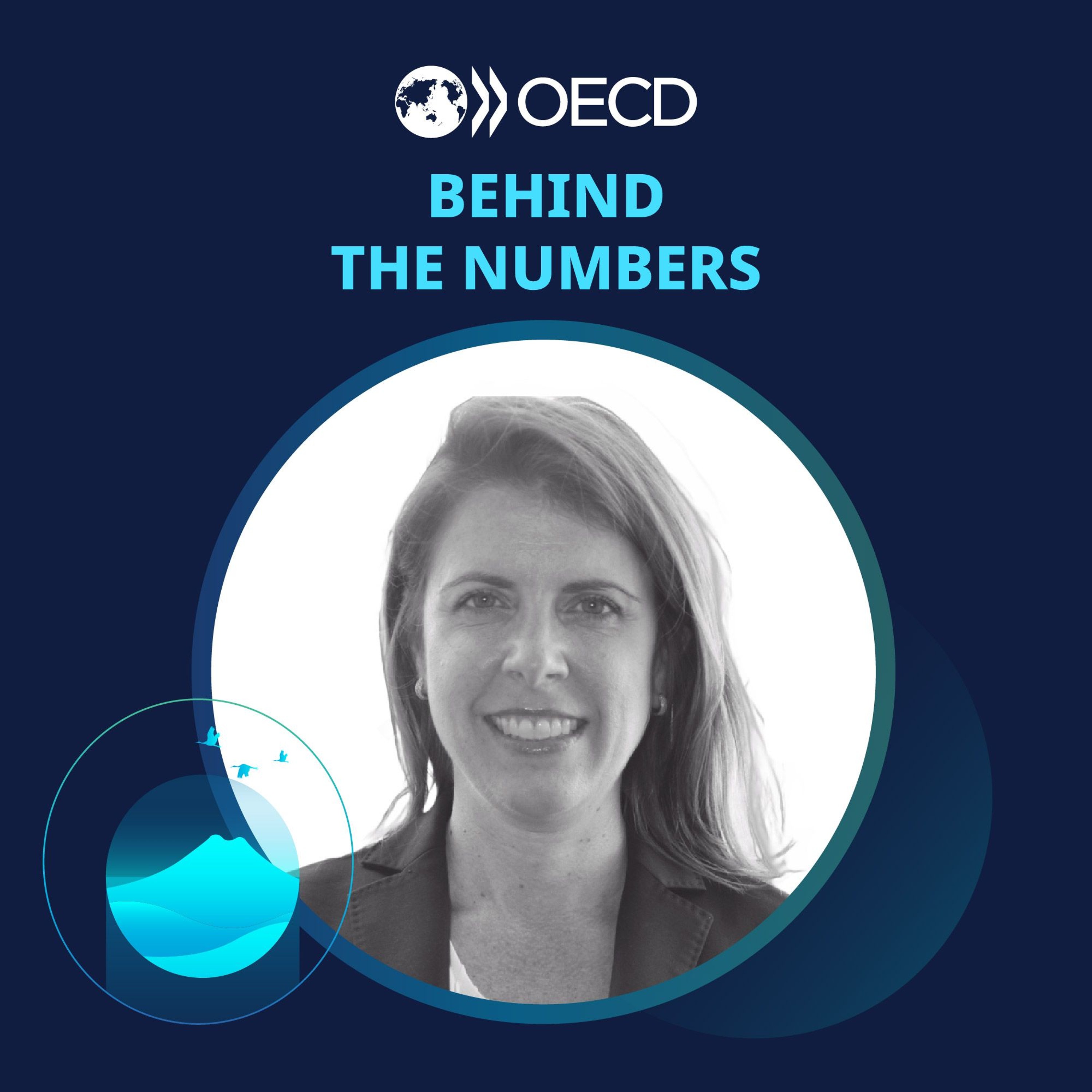
OECD PodcastsCan you handle the truth? Putting misinformation to the test with the OECD Truth Quest SurveyOn a daily basis, we’re faced with a deluge of online content, only swelling further with the mainstreaming of generative AI and rising political polarisation. Improving our joint understanding of how people consume news, and how effectively they distinguish between fact and fiction, is one of the key challenges of our time.
The OECD Truth Quest Survey implements an innovative methodology to answer this question. With over 40,000 respondents across 21 countries, the survey provides unprecedented insights into media literacy and its implications for global policy making.
In this episode of Behind the Numbers, our host Ashley Ward is joined by OE...
2025-02-1833 min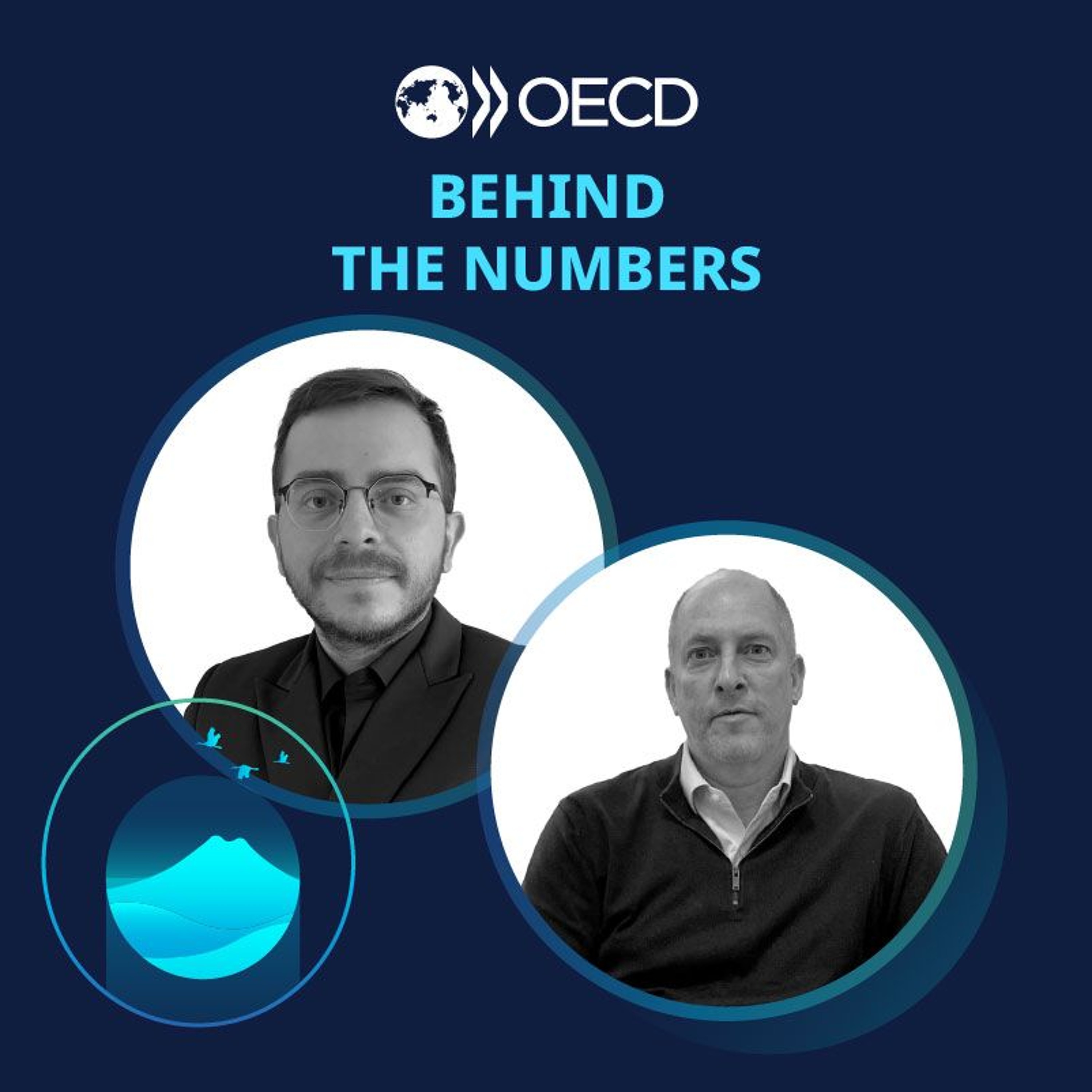
OECD PodcastsWhy are health statistics some of the OECD’s most popular indicators?The COVID-19 pandemic brought health statistics into the spotlight, from tracking excess mortality to understanding the financial impact on healthcare systems. But health statistics are just as vital today as they were during the pandemic.
In this episode of Behind the Numbers, Ashley Ward is joined by OECD Head of Health Accounts David Morgan and Policy Analyst Gabriel di Paolantonio to discuss how health data, like expenditure and mortality trends, helps countries benchmark progress, build resilient health systems, and prepare for future crises.
Explore the work behind these datasets, from maintaining cross-country comparability to publishing real-time mortality statistics, and find...
2024-12-1022 min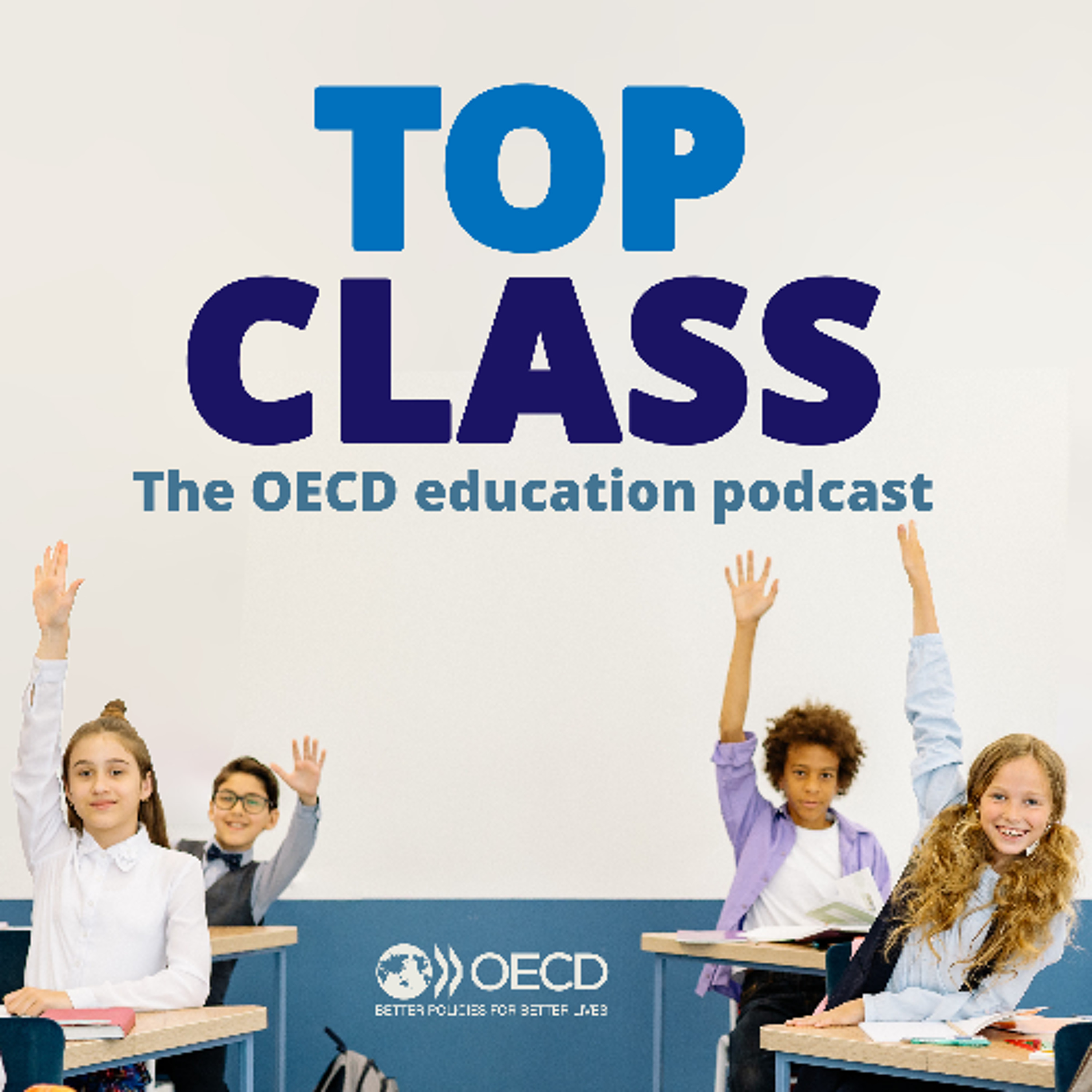
Top Class: The OECD Education Policy Podcast | Teachers, PISA, StudentsWhy are adult literacy skills dropping? Insights from the OECD Survey of Adult SkillsOver the past decade, literacy and numeracy skills among adults have largely declined or stagnated in most OECD countries. This is the main finding from the second OECD Survey of Adult Skills, a once-in-a-decade assessment that measured the skills of adults across 31 countries and economies. Despite efforts to strengthen education and adult training systems, only Finland and Denmark have seen significant improvements in adult literacy skills. However, adults performed better in the numeracy proficiency test, with eight countries seeing their average scores improve. In this episode of Top Class, the OECD’s Director for Education and Skills, Andreas Schleicher, tells OE...
2024-12-1032 min
OECD PodcastsBetter data for better policies: inequality and the digital economyHow does the richest group of households in a country compare to the poorest? How can we expose the growing importance of the digital economy, often hidden in macroeconomic statistics?
These questions are at the centre of upcoming updates to the System of National Accounts (SNA), which aim to provide policymakers with the information required to better understand the distribution of income, consumption and saving, and the scale and impact of the digital transformation.
In this second episode of Behind the Numbers, Ashley Ward delves into the critical work that ensures ensure that the System of National Accounts (SNA), which...
2024-10-2317 min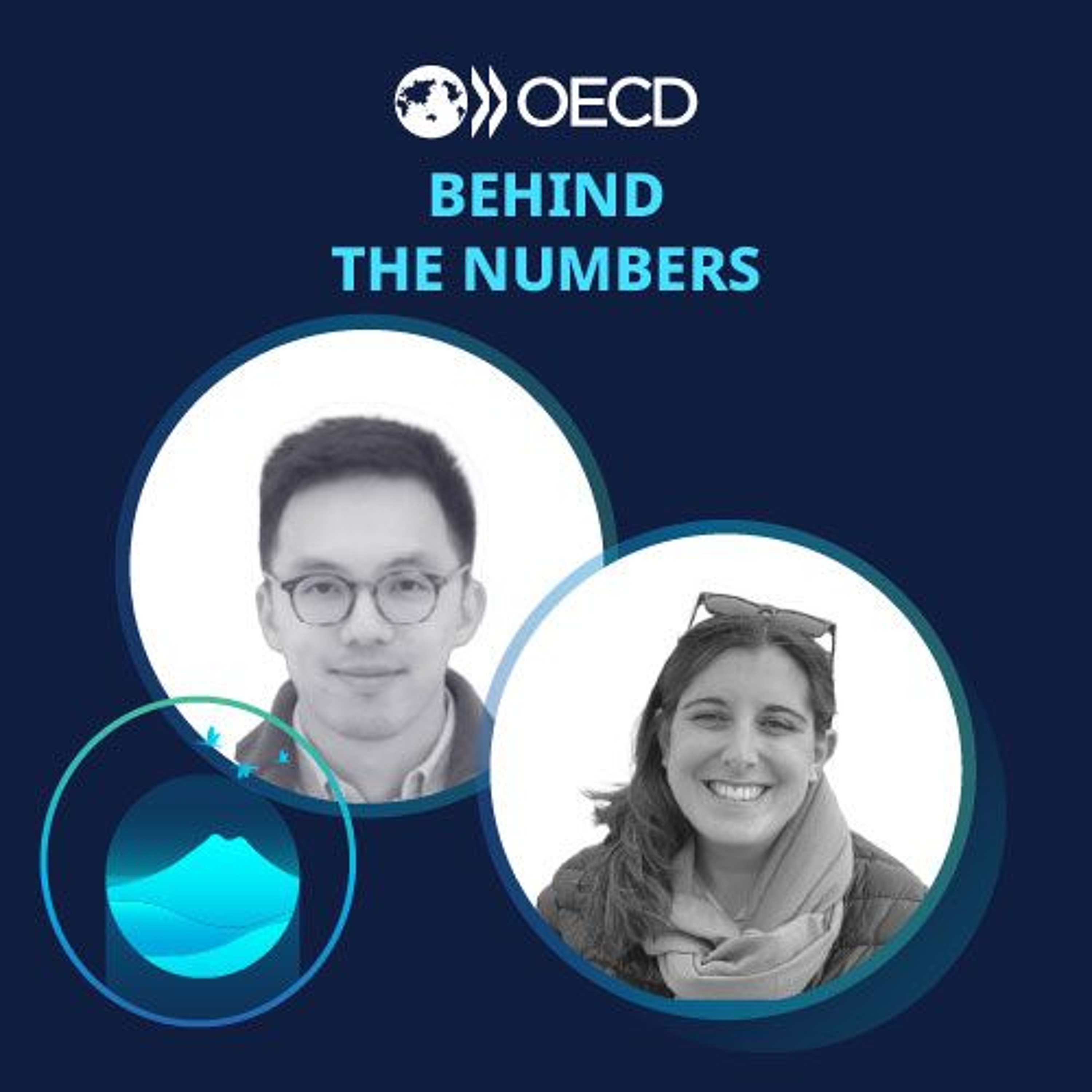
OECD PodcastsDecoding GDP: How to measure pastries, pencils, and pyjamasMost people know Gross Domestic Product (GDP) as the go to number to evaluate an economy's performance. It is often referenced in the news, sometimes directly, other times implied in discussions of economic recession, recovery or boom. But other indicators, further removed from the limelight, are also vital for economic analysis: for example, Household Disposable Income (HDI) helps us to monitor changes in money that households have available to either spend or save for the future.
In this episode of OECD Podcasts, Ashley Ward goes behind the numbers to learn how they're compiled, what they're good for, and how they...
2024-09-2422 min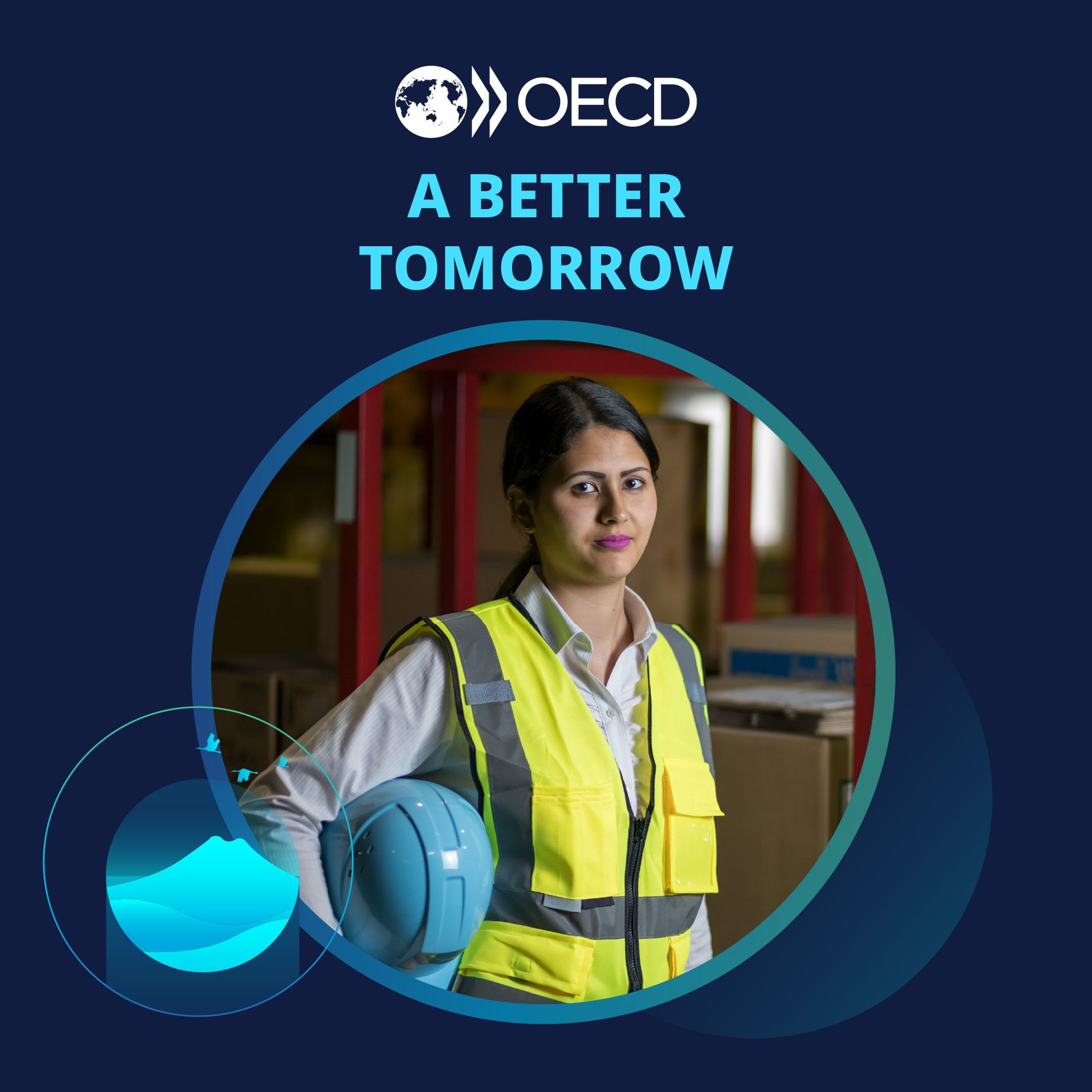
OECD PodcastsBreaking barriers to the labour market for women with Yalla TrappenGuest: Frida Grundhal, Project Co-ordinator, Yalla Trappan.
In this edition of OECD Podcasts, Katrina Baker and Shayne MacLachlan are Joined by Frida Grundahl from Yalla Trappen; a groundbreaking social enterprise dedicated to creating job opportunities and fostering financial independence for Sweden’s foreign-born women. Statistically, foreign-born women are said to be one of the most distant from the labour market and Yalla Trappen is working to empower these women by giving them an opportunity to break down their social isolation, and to help them stand on their own two feet financially.
In their conversation, Shayne and Frida discuss examples of Ya...
2024-09-2018 min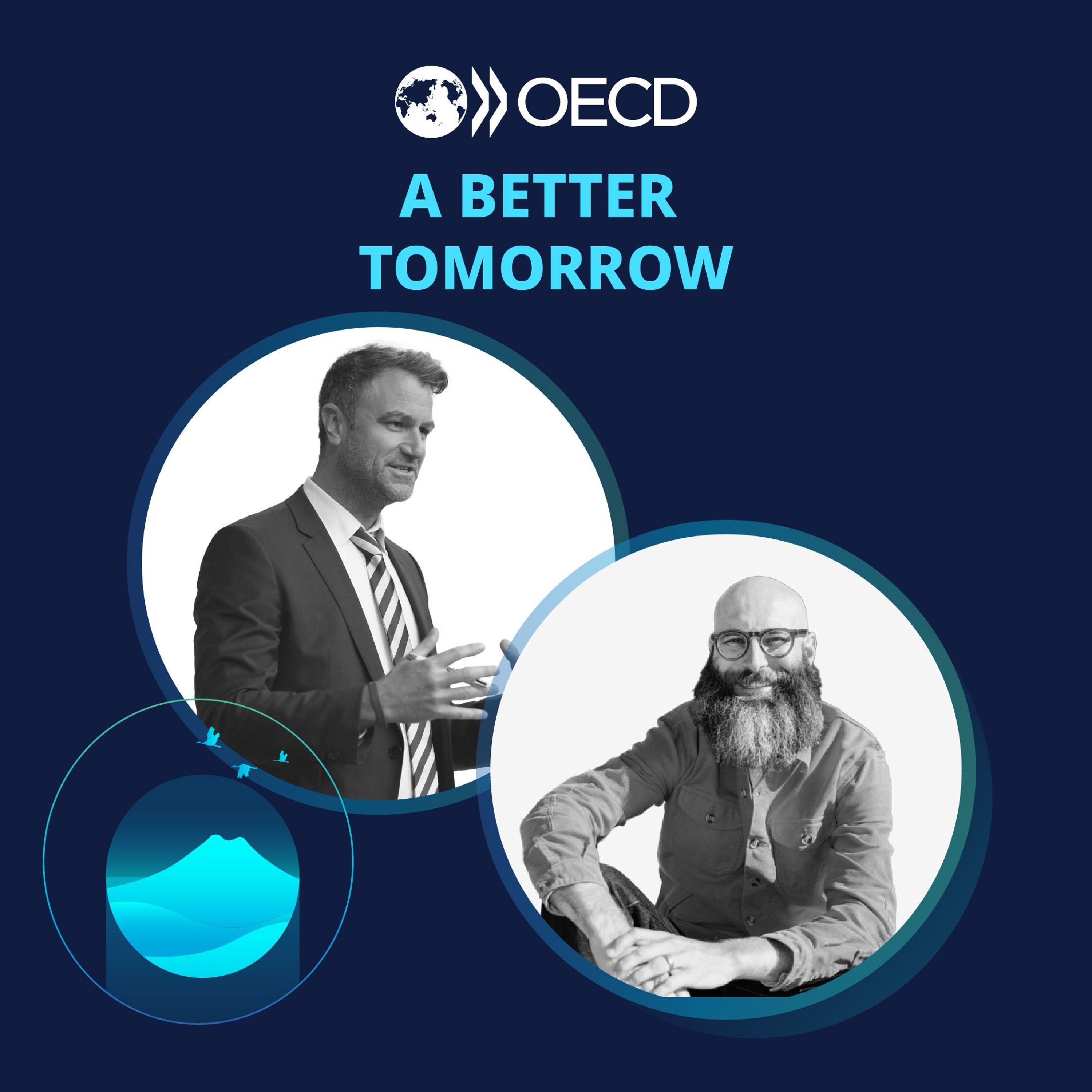
OECD PodcastsShaping tomorrow’s cities with Urban PartnersIn this edition of OECD Podcasts, Shayne MacLachlan from the OECD Centre of Entrepreneurship, SMEs, Regions and Cities is joined by Jesse Shapins from Urban Partners. Together they discuss how Urban Partners’ involvement in projects on local, municipal and national levels can help to achieve climate action and social sustainability.
In their conversation, they cover the concept of green and thriving neighbourhoods and cities, emphasising the fact that “a great city is not just green buildings”. They also investigate examples of the repurposing of state land and efforts to improve the social landscape in less-advantaged areas.
Finally, they explore how to bri...
2024-09-1821 min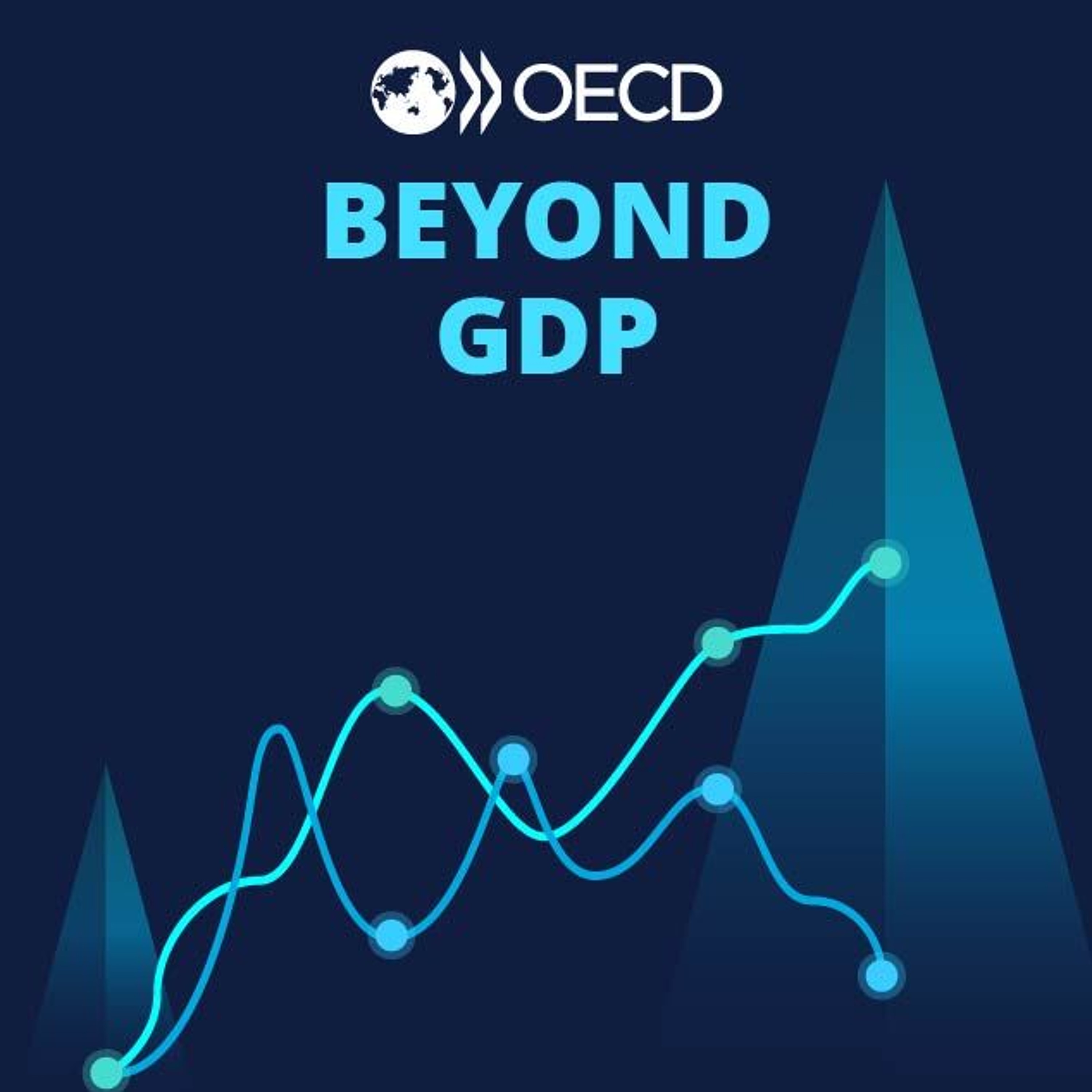
OECD PodcastsYoung entrepreneurs: Money, mindset and motivationYoung entrepreneurs have a huge role to play as slow productivity growth, climate change, demographic change and the digital transition come together in a perfect storm for many economies. The new OECD-EU “Missing Entrepreneurs” report finds that if youth (18-29 years old) participated in early-stage entrepreneurship at the same rate as “core age” men (30-49 years old), there would be an additional 3.6 million “missing youth entrepreneurs” in OECD countries. This accounts for about 11% of the total number of “missing entrepreneurs” in the OECD as young people face a range of barriers to success. David Halabisky from the OECD and Anita Tiessen, the CEO...
2023-11-3022 min
OECD PodcastsCan the social economy help refugees access jobs?According to the UN Refugee Agency, more than 100 million people were forcibly displaced in 2022. With Russia's war of aggression against Ukraine, Europe has seen the biggest refugee crisis since the Second World War with more than 6 million people fleeing Ukraine. This is a big challenge for refugee protection and reception systems. Clearly something public services cannot stem on their own. This is where the social and solidarity economy steps in and steps up to both support governments and fill gaps and public support. This podcast discusses how the social and solidarity economy can fast track the labour-market integration of refugees...
2023-10-1116 min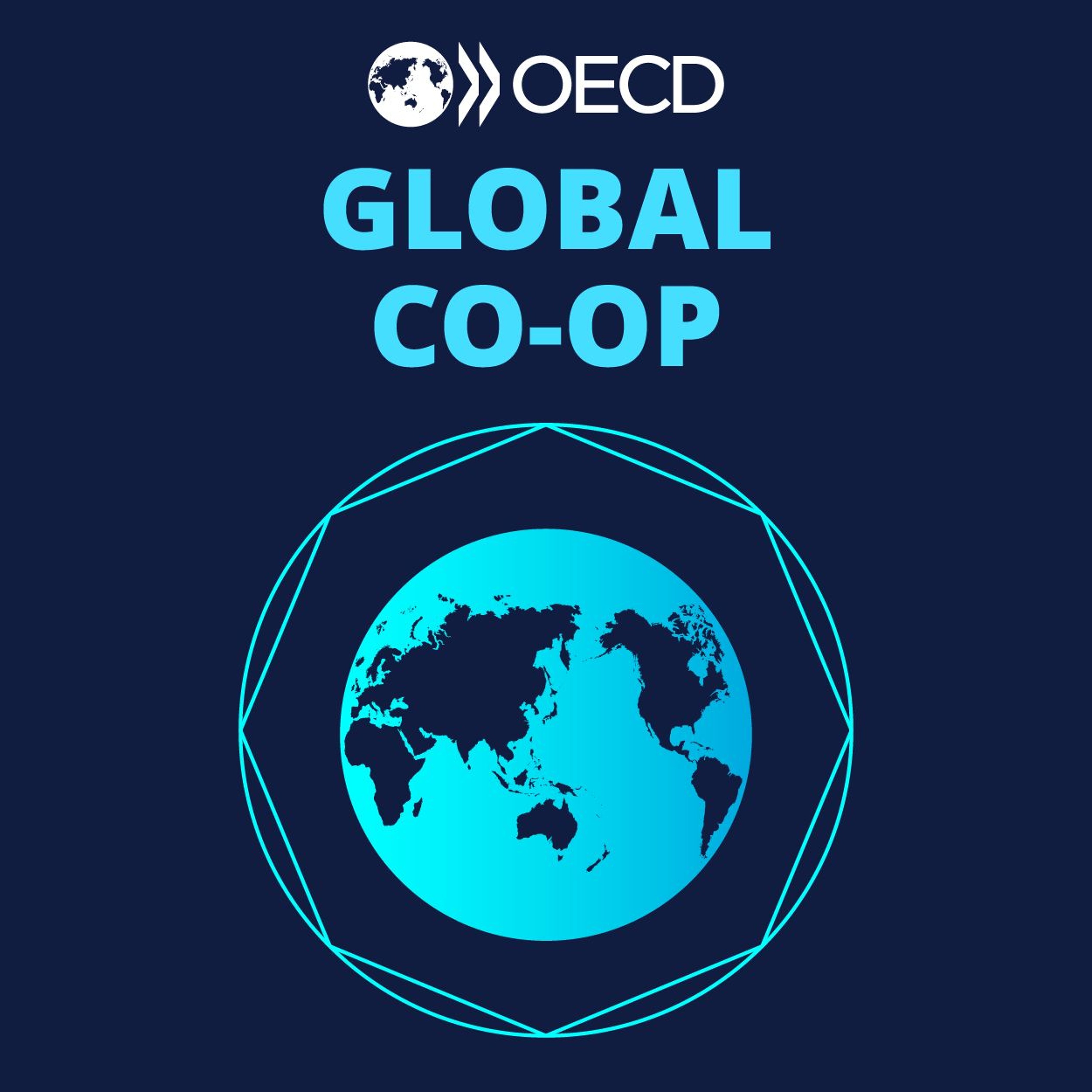
OECD PodcastsWhy digitalising procurement systems is the way forwardDigitalisation in procurement comes with a variety of opportunities, but also challenges. Can digital resources such as artificial intelligence, e-procurement and data systems improve the ways governments obtain services and goods? This podcast is the third and final episode of a series in collaboration with the MAPS Initiative, Methodology for Assessing Procurement Systems. Edwin Lau, OECD, Head of Division of Infrastructure and Public Procurement and Hunt La Cascia, Senior Public Sector Specialist at the World Bank, speak with us to help us understand the world of procurement digitalisation.
Guests: Edwin Lau, OECD, Head of Division of Infrastructure and Public Procurement...
2023-09-2721 min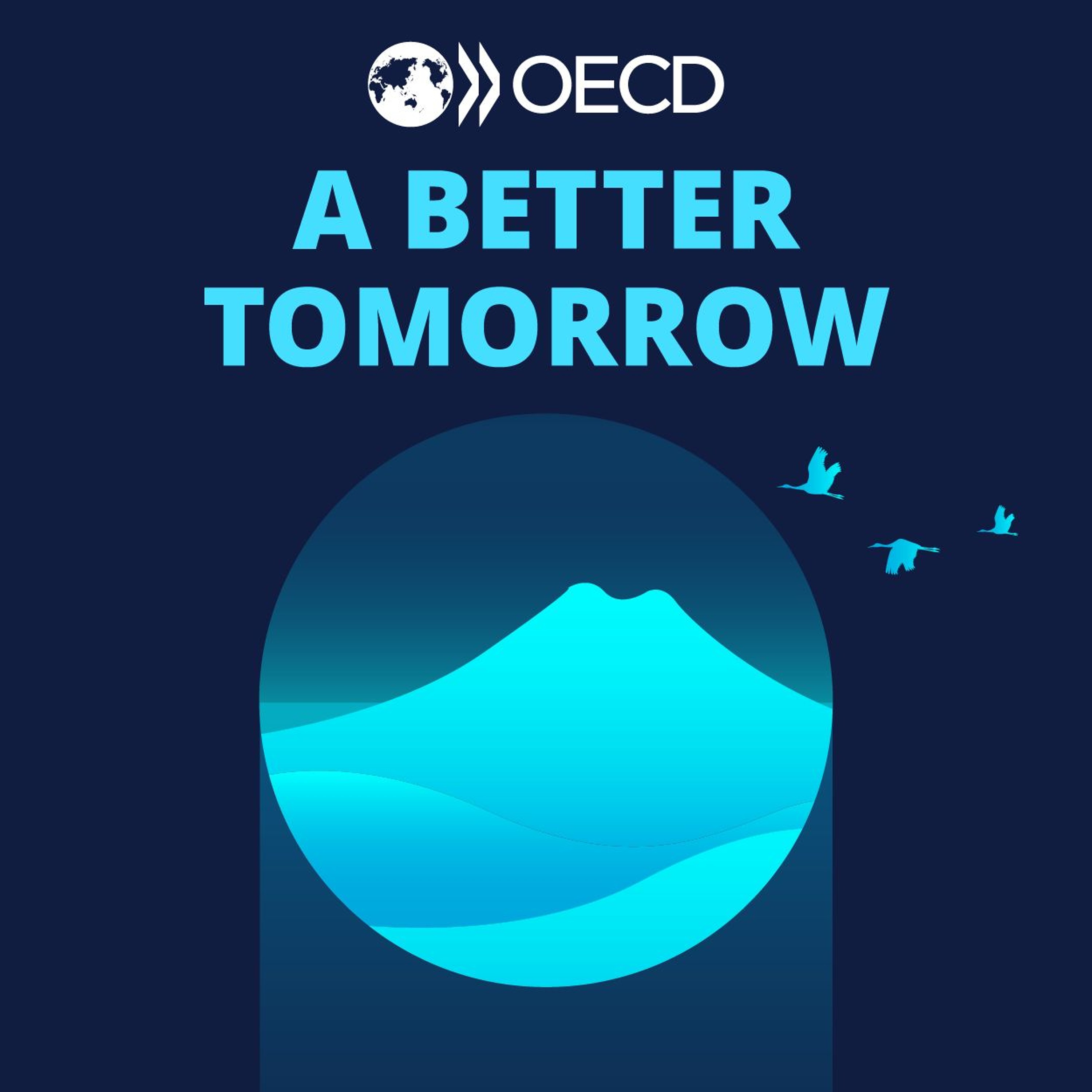
OECD PodcastsChief Heat Officers take on deadly heat waves in Athens and SantiagoAs urban heat waves become more frequent and severe, meet the leaders on the frontlines of responding to extreme heat in cities. The Chief Heat Officers for Santiago, Chile, and Athens, Greece, discuss their innovative strategies to spread awareness of the dangers of heat, keep vulnerable residents safe in scorching temperatures, and create more green spaces to cool their cities down.
Guests: Cristina Huidobro, Chief Heat Officer for Santiago, Chile, and Elissavet Bargianni, Chief Heat Officer for Athens, Greece
Host: Jessica Voorhees
Learn more about OECD’s work on cities: https://www.oecd.org/cfe/cities/
To learn more about th...
2023-08-0412 min
OECD PodcastsCooling the concrete jungle: How can cities beat extreme heat?Extreme heat is creating major challenges for cities. The urban “heat island” effect traps cities in a bubble of scorching temperatures, which endangers lives and puts pressure on emergency services and infrastructure. Often the poorest neighbourhoods bear the worst consequences of rising heat waves. Andrew Lombardi discusses how heat exacerbates inequalities in cities and breaks down what cities can do to save lives now and enhance heat resilience through better policies and practices.
Guest: Andrew Lombardi, OECD Policy Analyst
Host: Jessica Voorhees
Learn more about OECD’s work on cities: https://www.oecd.org/cfe/cities/
To learn more about the OE...
2023-08-0212 min
OECD PodcastsSustainable public procurement in the midst of the climate crisisIn 2015, the United Nations released the Sustainable Development Goals to help create a more sustainable and equitable world. The 17 goals included procurement systems, calling governments to procure in a more sustainable manner. But how does this actually work? How can governments include sustainability in their procurement systems? And can sustainable public procurement help mitigate the climate crisis? Steven Schooner, Professor of Government Procurement Law at George Washington University, helps us to answer these questions and more on this podcast. This is the second episode in the series with MAPS.
Guest: Steven Schooner, Professor of Government Procurement Law at George Washington...
2023-07-1120 min
OECD PodcastsMultinational enterprises demystified using open-source dataOver the past few decades, as trade and investment barriers have lessened, and transport and communication costs have declined, multinational enterprises or MNEs have become an increasingly important fixture in the global economy. As these entities begin to represent a larger share of global economic activity, the importance of monitoring them and understanding their behaviour has never been greater. However, MNEs cross borders by definition, making them notably difficult to keep track of at the national level. The new OECD UNSD Multinational Enterprise Information Platform gathers together data on the world's largest multinationals from a range of public sources. These...
2023-06-1221 min
OECD PodcastsThe MAPS Initiative and why procurement mattersWhen governments need to buy anything from office supplies to infrastructure, the process is more complex than your ordinary shopping trip. How do we know that governments are using good judgement when purchasing items or awarding contracts? Who advises governments on these processes to ensure that they are transparent, efficient, and cost effective? That's where MAPS, the methodology for assessing procurement systems, steps in. Diana Viljoen, from Global Affairs Canada and member of the MAPS Technical Advisory Group will answer these questions and more on this podcast. This is the first episode in the series with the MAPS Network.
Guest...
2023-06-0216 min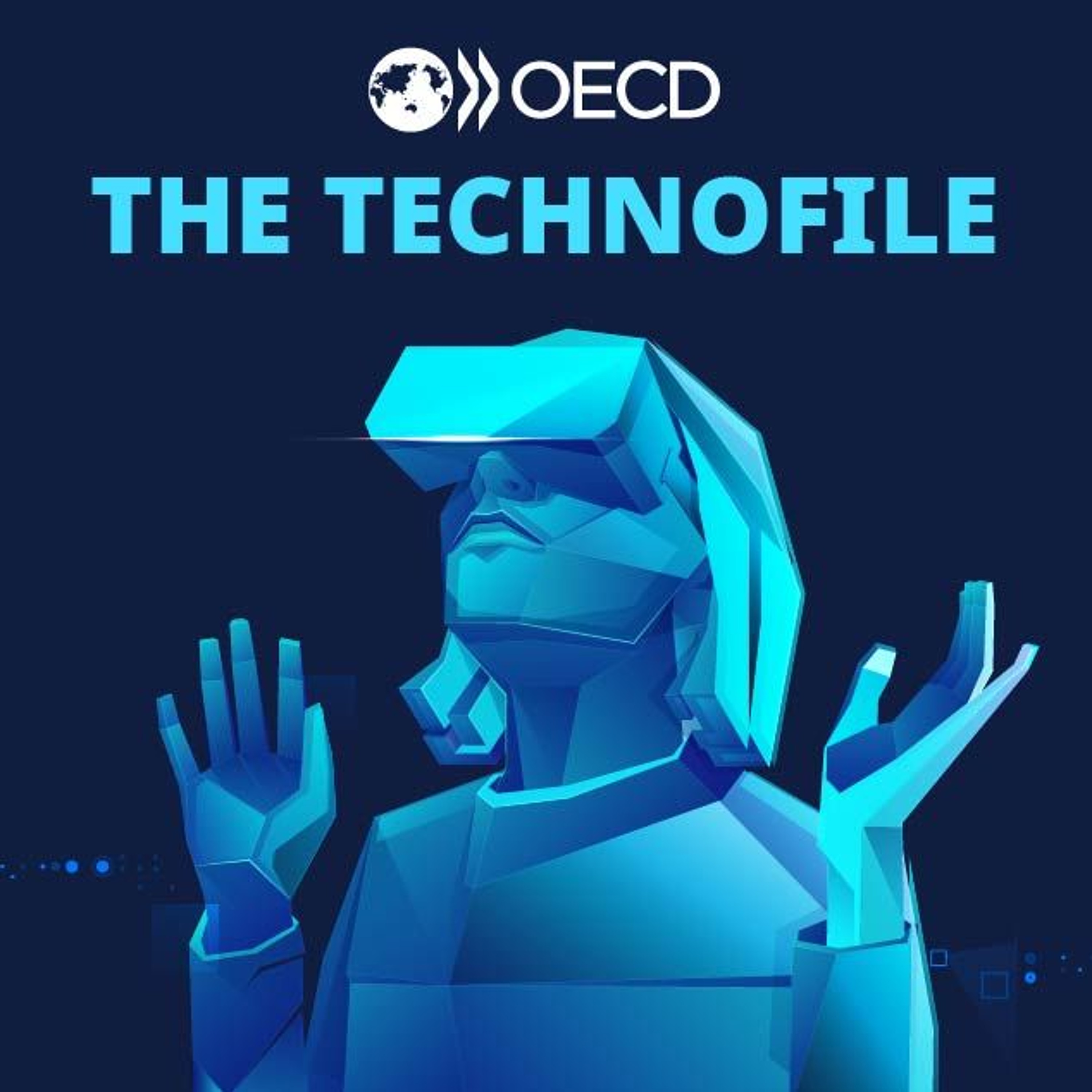
OECD PodcastsFrom raising awareness to changing policies: The OECD’s Digital Security Recommendations explainedAs technology continues to advance, we're more connected than ever. But with more benefits also come more risks. How can we ensure that we are protected from digital threats? In December 2022, the OECD released its Digital Security Recommendations to help keep individuals, businesses and governments secure online. Audrey Plonk, head of Digital Economy Policy division for the OECD's Science, Technology and Innovation Directorate, explains the Digital Security Recommendations and what they hope to achieve.
To learn more about the OECD’s work on digital security, go to: www.oecd.org/digital/digital-security.
Guest: Audrey Plonk, head of Digital Economy Policy di...
2023-03-0218 min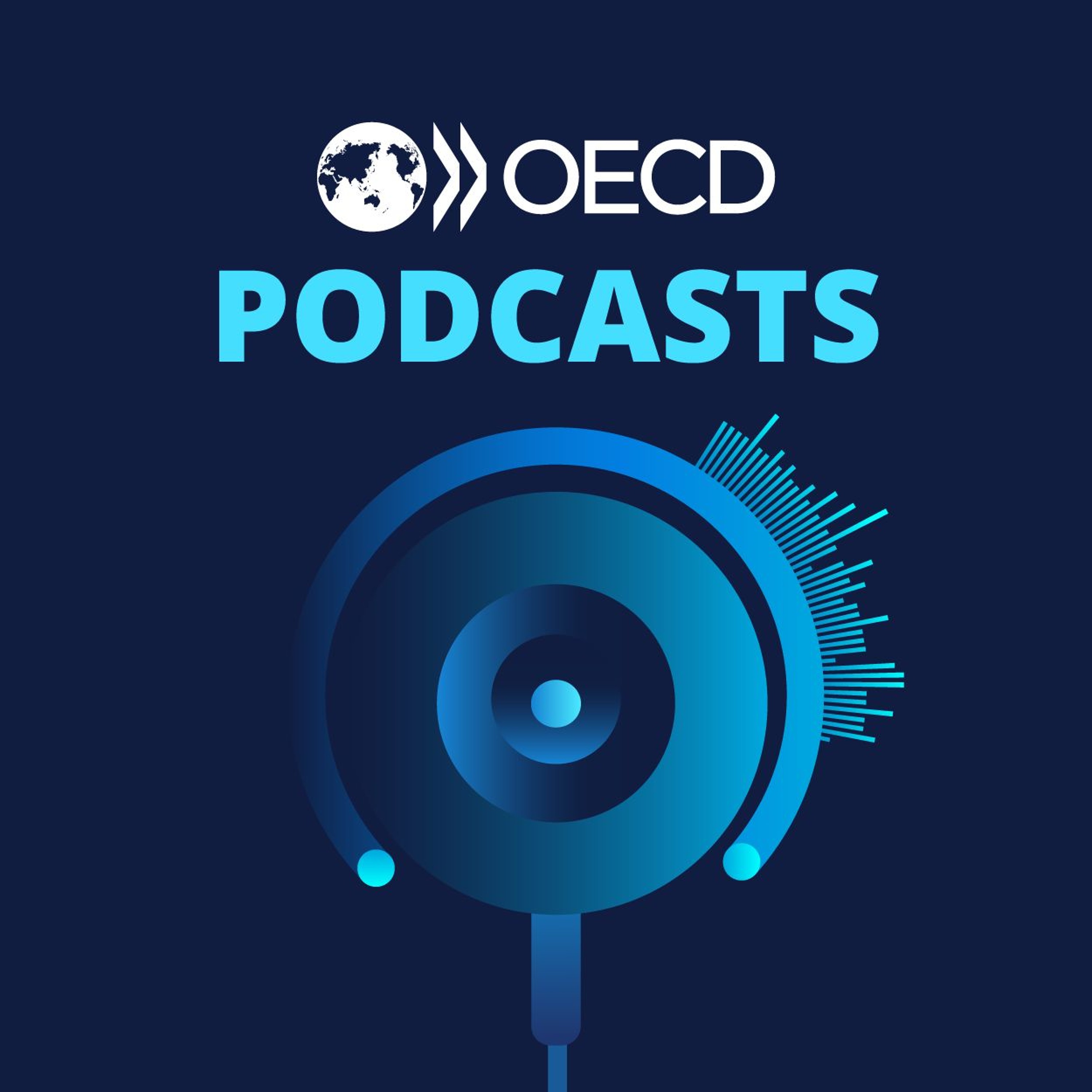
OECD PodcastsOECD Podcasts 2022 Year in ReviewIn 2022, OECD Podcasts did not shy away from the hard issues plaguing society today. Misinformation, domestic violence and burnout are only a few of the topics discussed this year with a variety of experts. Let's take a listen to some of the best podcast interviews done this year that you may have missed.
Host: Robin Allison Davis
Producer: Samia Basille
Guests: Margaret Johnston Clarke, Ingrid Barnsley, Chiara Varazzani, Pascale Guy, Julio Bacio Torres, Sergio Gueirrero
2022-12-2026 min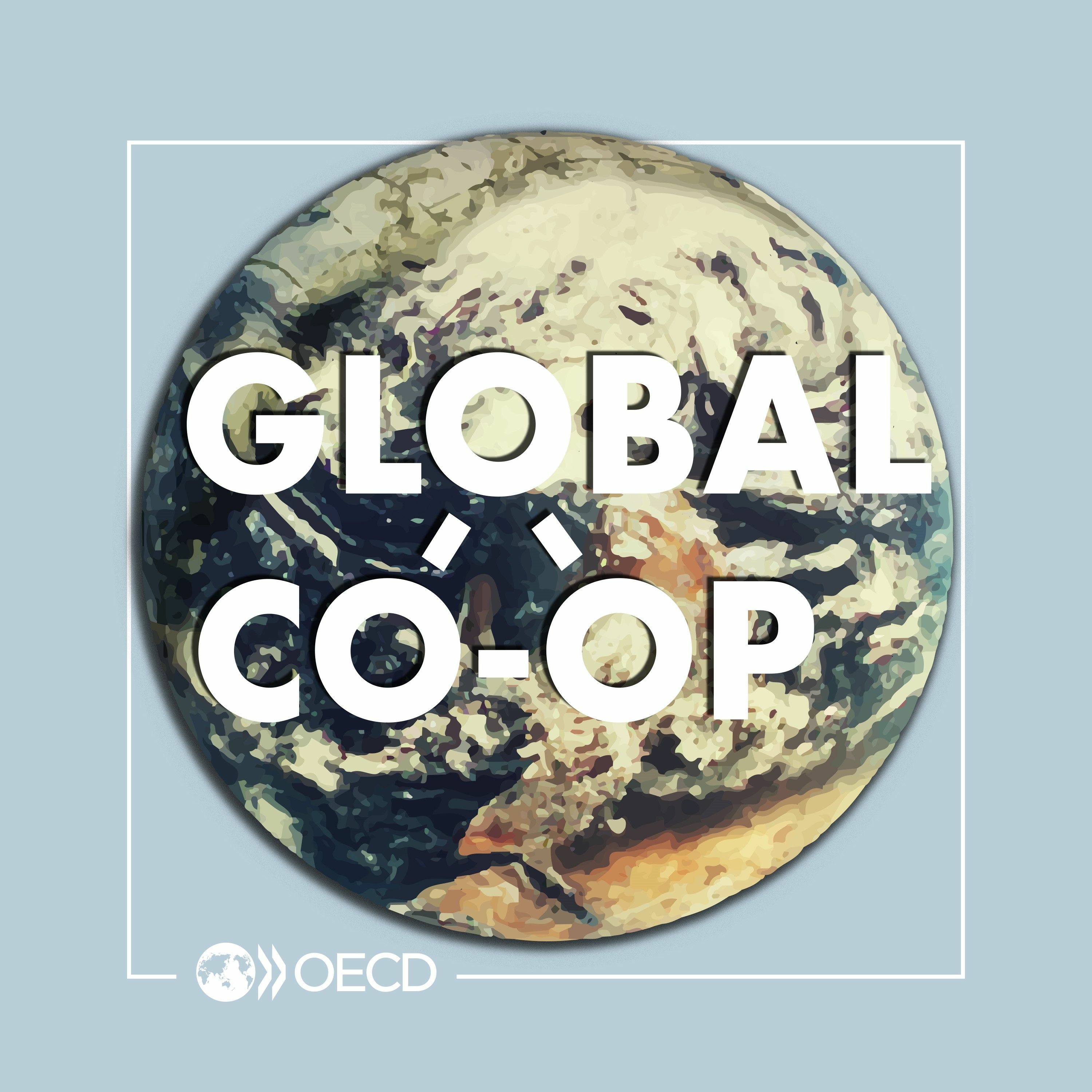
OECD PodcastsHow to make supply chains more resilient with the OECD’s Marion JansenThe last two years have seen unprecedented disruptions in global supply chains, brought about by a perfect storm of causes, with wide geopolitical implications that look to continue well into the future. How prepared were the public and private sectors? And what have we learned? We speak with Marion Jansen on how to make supply chains more resilient.
Host: Christopher Mooney
Guest: Marion Jansen, OECD Director of Trade and Agriculture
Producer: Robin Allison Davis, Samia Basille
To learn more about the OECD's work on trade, go to:
https://www.oecd.org/trade/resilient-supply-chains/
https://www.oecd.org/trade/topics/trade-in-raw-materials/
2022-12-1615 min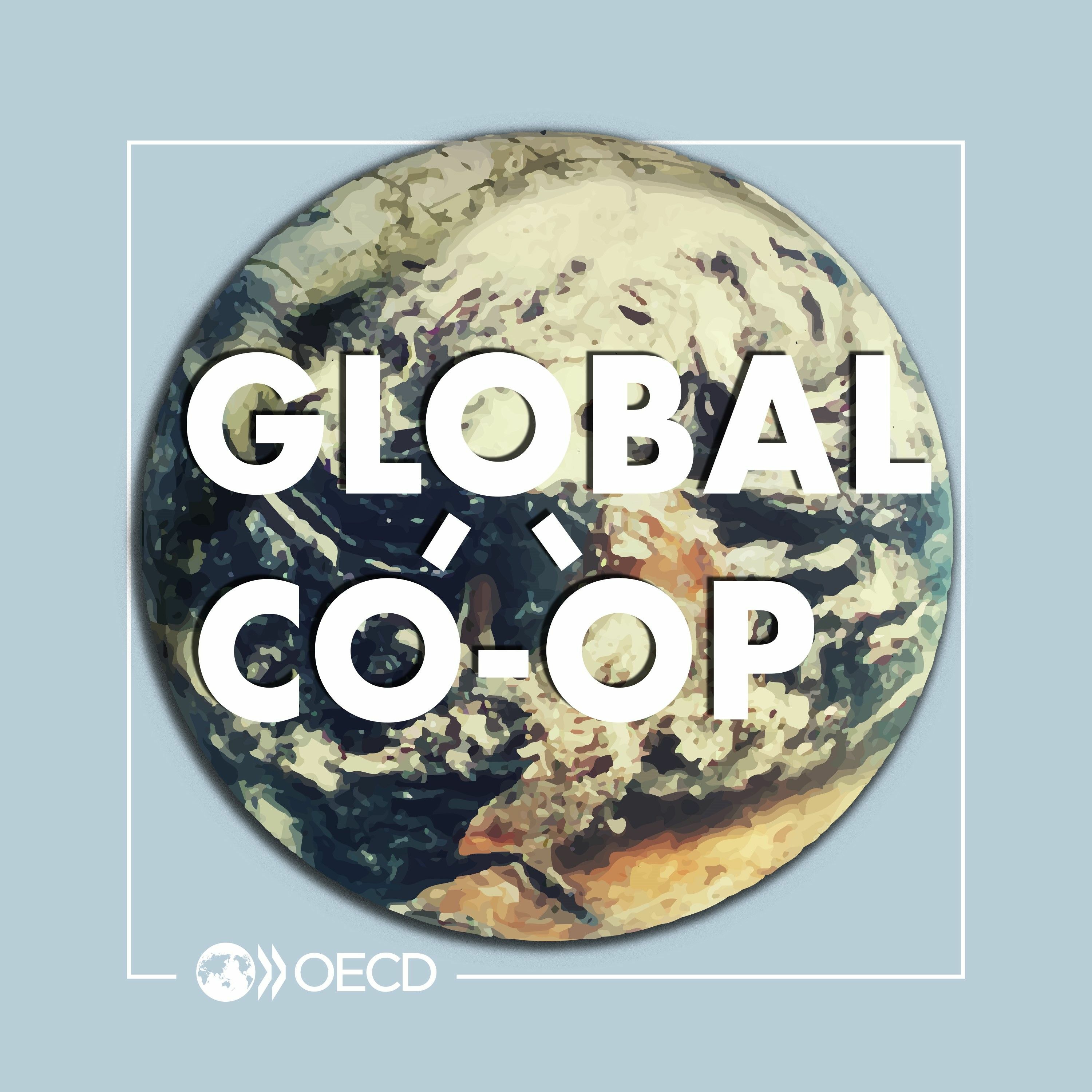
OECD PodcastsTime to act: Nurturing our democracies for the 21st centuryFor a country to take on the most critical problems of our day, like climate change, it needs its people to be engaged and committed. Yet, as countries recover from the biggest health, economic and social crisis in decades, the trust citizens have in their government is under strain. How can this trust be won back? What drives public trust? How can policymakers build people's confidence in their government's capacity to be responsive, reliable, open, honest and fair? Elsa Pilichowski, Director for Public Governance of the OECD, helps us answer these questions. This podcast is the first in a two...
2022-11-1120 min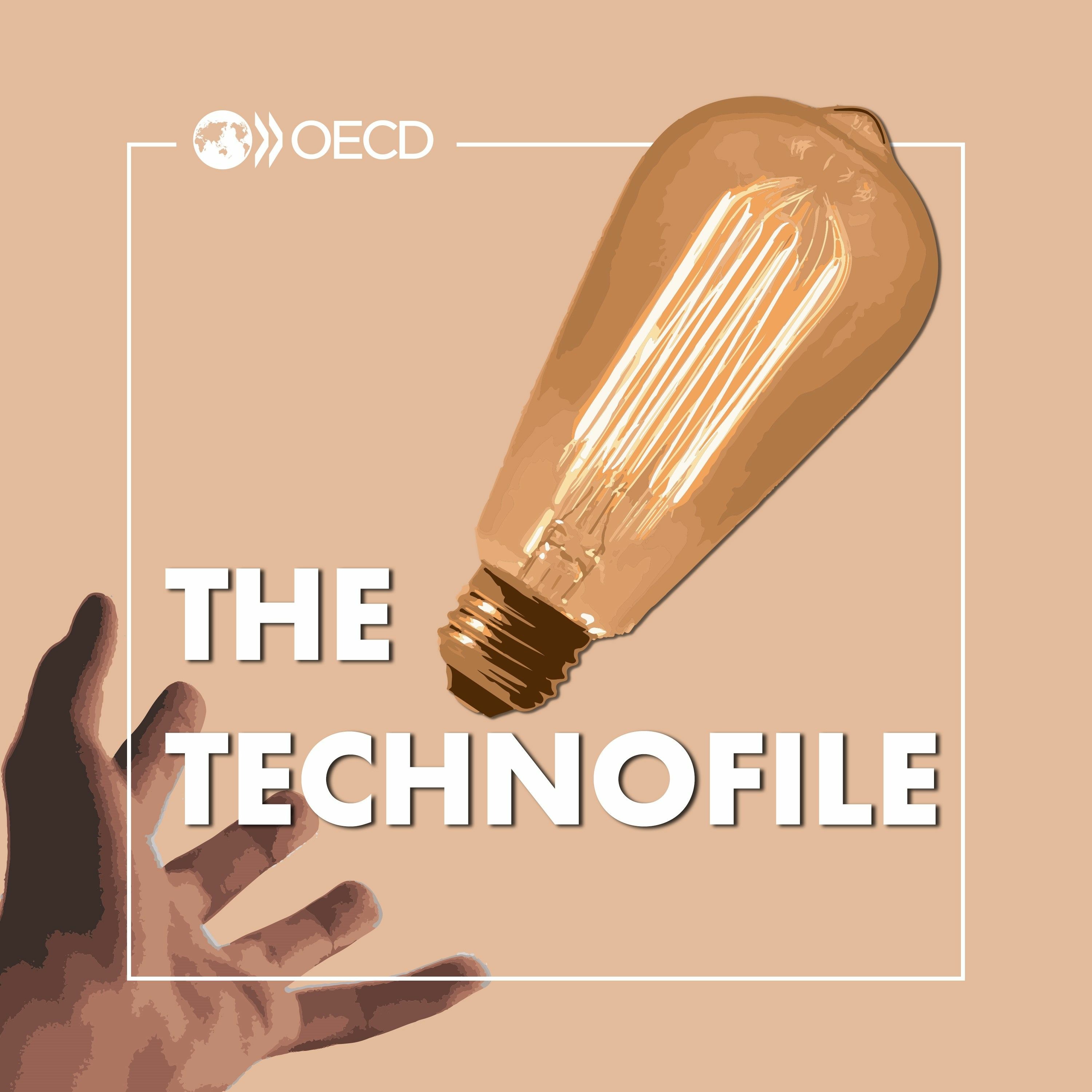
OECD PodcastsGoverning data and AI for all: which model for a sustainable and just data governance?While the European Union is developing the Data Act, the Data Governance Act and the Artificial Intelligence (AI) Act, the issue of the data governance remains at the fore. In today’s podcast, we will try to answer some of these questions: What are the policy options for Europe’s data governance framework, especially with regard to AI, that align with a data justice perspective? How to foster a positive vision of AI as contributing to public goods and creating public value? How to recognise the rights and interests of different communities in data? To what extend is it possible to f...
2022-10-0515 min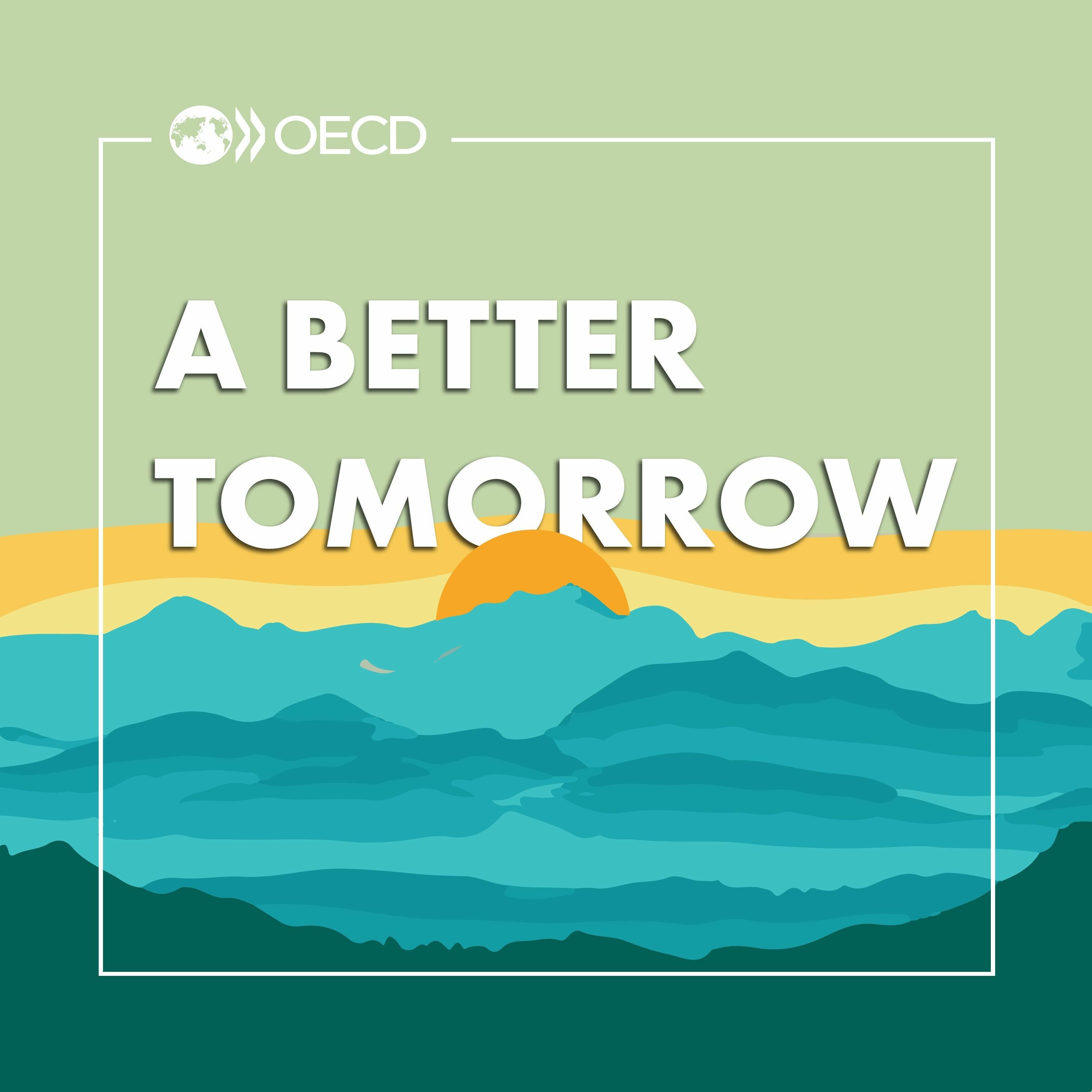
OECD PodcastsTransition Finance: what is it and why is it needed?Global environmental emergencies such as climate change call for us to put our money where our mouth is. An increasing number of governments, companies and financial institutions have committed to reach net zero emissions by 2050. Is that enough to help us meet the goal of the Paris Agreement of limiting the average global temperature increase to 1.5 °C? If not, what more can be done to bridge this gap? That's where Transition Finance steps in. Transition finance will be one of the key topics discussed at the upcoming OECD Forum on Green Finance and Investment (5-7 October 2022). Listen in to learn a...
2022-09-2321 min
OECD PodcastsThe Artificial Intelligence Act: addressing the divergence between the public and private sectorsThe European Parliament and Council are currently negotiating the Artificial Intelligence Act, which introduces common regulatory and legal framework for Artificial Intelligence (AI) in all domains except the military. However, the negotiations pose several challenges for legislators. How should the risk categories be established? Do they take into account unintended impacts of AI? What divergences between public and private sectors could emerge, and how can they be adressed? And how is the AI Act going to help protecting fundamental rights and values?
We will answer these questions with Maria-Manuel Leitão-Marques, MEP from Portugal, who is the Vice-Chair of the C...
2022-06-1513 min
OECD PodcastsWill the science of co-operation help us solve climate change?Lower your thermostat and bring a reusable bag. Commute by bicycle and recycle. These are all everyday life actions, promoted to help the climate change crisis. But how is it decided what changes we should make in our lives? How easily do people change their behaviour? Can it actually make a difference? Understanding human behaviour works hand-in-hand with climate change policy and we're speaking about this with Chiara Varazzani, OECD lead behavioural scientist and Kevin Green, Vice President of RARE, Centre for Behaviour in the Environment.
To learn more about the OECD's work on behavioural science and the Behavioural Insights...
2022-06-0226 min
OECD PodcastsAI is poised to revolutionise healthcare. Building trust will be key.Artificial intelligence played a pivotal role during the COVID-19 pandemic, from hastening diagnoses to supporting contract tracing and more. In this sense, the pandemic has already shown us how A.I. can benefit healthcare. But this seems just the beginning of revolution. What else can be done? What are the limits and risks of using artificial intelligence in health care? And how can we best ensure that it is both effective and trustworthy?
We’ll answer these questions with Lina Gálvez Muñoz, MEP from Spain, Vice Chair of the Committee on Industry, Research and Energy, member of the Euro...
2022-05-2514 min
OECD PodcastsDon’t blame victims, focus on perpetrators: Making services work for domestic violence survivorsJames Henderson was 10 years old when he experienced how policies designed with the best intentions can have devastating effects for families affected by domestic violence. He tells OECD’s Monika Queisser about his personal journey from surviving family abuse to becoming a Social Worker, Probation Officer, Battering Intervention Provider and Expert Trainer on Tackling Domestic Violence. He explains why we often blame the victims, that not enough is done to stop the perpetrators, and how social services must listen to the families they are trying to help.
To learn more about the OECD's work on gender, go to: oecd.org/ge...
2022-05-1130 min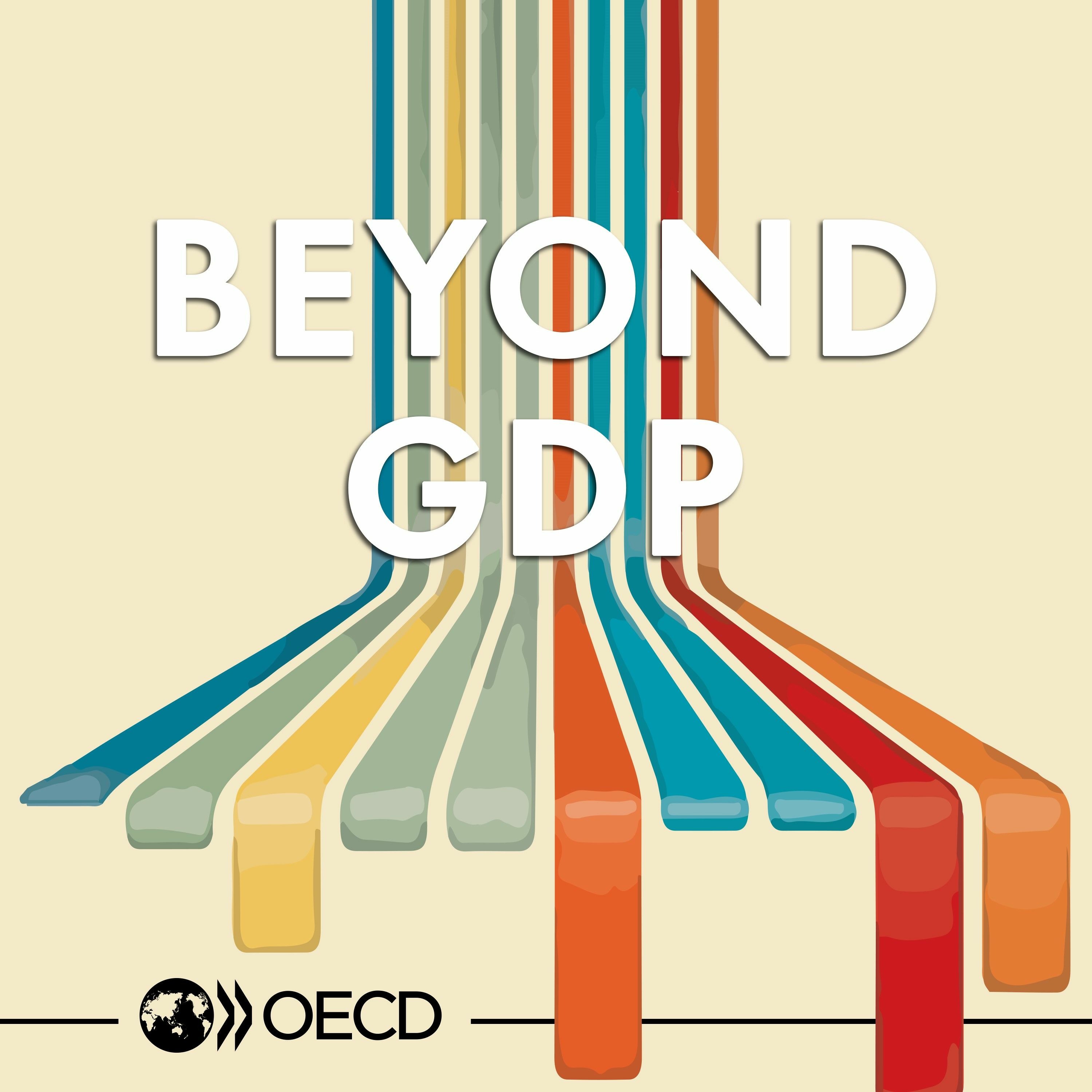
OECD PodcastsTrusted statistics and the impact of digitalisation, with OECD Chief Statistician Paul SchreyerEveryone relies on data and statistics for making decisions in everyday life, whether at home or at work. Not having data would be like flying blind. But with so much information out there, how can we trust the numbers we read in the media or in official government sources, or for that matter, from the OECD? What are official statistics anyway, who produces them and what makes them so reliable? Do we have enough of the right kind of data for meeting today’s health, climate and other pressing challenges?
This OECD Podcast addresses such questions, and highlights the new te...
2022-04-2024 min
OECD PodcastsThe global implications of the Ukraine crisis, with Laurence BooneRussia's late February invasion of Ukraine has unleashed a devastating and ongoing humanitarian crisis in Ukraine, with thousands of civilian deaths. At least four million Ukrainians have fled the country and nearly seven million are internally displaced. Beyond Ukraine, the conflict is upending the global economy, deepening pressure on vulnerable households still reeling from the pandemic. And with Russia and Ukraine as major exporters of wheat, the war could destabilise the global food supply and has prompted the U.N. to warn that food insecurity could rise. In March, the OECD released an in-depth report on the Economic and Social...
2022-04-1315 min
OECD PodcastsEliminating the digital gender divide with Women in Tech's Ayumi Moore AokiThe gender equality gap in the tech industry has worsened in the last 40 years.
How can we lessen this the divide and make the tech industry more welcoming for everyone? We speak with Ayumi Moore Aoki, founder of Women in Tech, a global organization aiming to eliminate the gender digital divide by helping women learn digital skills, get hired in tech jobs and become leaders in the tech industry.
Host: Robin Allison Davis
Guest: Ayumi Moore Aoki, CEO & Founder of Women in Tech
To learn more about Women in Tech, go to: www.women-in-tech.org. To read the OECD report "...
2022-03-2319 min
OECD PodcastsWomen, climate change & data: why we need to better understand the environment-gender nexusThe data is clear: environmental degradation especially affects women, and women are more motivated to do something about it. Why is this so? Join us as we discuss the complex, multi-faceted relationship between women, climate change, air pollution, domestic violence, and green technology patents with Ingrid Barnsley, Deputy Director of the Environment Directorate at the OECD.
For more information about the OECD Environment Directorate and its work on gender and the environment, go to www.oecd.org/environment
and https://www.oecd.org/environment/gender-inclusiveness-and-sdg.htm
Host: Christopher Mooney
Guest: Ingrid Barnsley, Deputy Director of the OECD Environment Directorate
Producer...
2022-03-1619 min
OECD PodcastsKnow Thy AI: Assessing the risks of Artificial IntelligenceAI is everywhere, bringing many benefits but also reinforcing unfairness, misinformation and privacy invasion. What steps need to be taken to keep these risks in check? We find these answers and more, in our conversations with Karine Perset, head of the AI unit of the OECD Division for Digital Economy Policy and the OECD Policy Observatory and Dr Sebastian Hallensleben, co-chair of the AI Classification and Risk Assessment Working Group in OECD.
For more information on the OECD's work on AI, go to www.oecd.ai/classification
Host: Christopher Mooney
Guests: Karine Perset, head of the AI unit of the...
2022-02-2226 minTop Class: The OECD Education Policy Podcast | Teachers, PISA, StudentsSwitching on the curiosity lightbulb with MIT’s Mitch Resnick and OECD’s Rowena Phair“Why is the sky blue?” “Why do people get sick?” “Why aren’t there any more dinosaurs?” Sometimes it feels like children never stop asking questions. And they shouldn’t. A recent OECD International Early Learning and Child Wellbeing study shows that children who are curious have stronger language and number skills, and better self-control. So how do we keep students curious and creative even after they’ve outgrown kindergarten? Rowena Phair, senior analyst at the OECD, and Mitch Resnick, Professor of Learning Research at the MIT Media Lab, discuss. Host: Clara Young; Producer: Ilse Sánchez Pacheco
2022-02-2122 min
OECD PodcastsWhen the only safe place is work: How employers can fight domestic violenceIn this episode of Truth Hurts, Monika Queisser speaks with Margaret Johnston-Clarke, the Global Chief Diversity, Equity and Inclusion Officer for the L'Oréal Group, about actions employers can take. In the One in Three Women Network, multinational companies work together to support survivors amongst their own employees with concrete measures.
For more information and how to join the network, please contact Aurore Pereira de Oliveira at Fondation FACE (a.pereira-de-oliveira@fondationface.org)
To listen to other OECD “Truth Hurts” Talks on Preventing Violence Against Women, please go to http://oe.cd/truth-hurts
Host: Monika Queisser
Producer: Robin Allison Davis, Samia...
2022-01-2619 minOECD PodcastsOECD Podcasts 2021 Year in ReviewThis year OECD Podcasts brought you interviews with policymakers, OECD experts, academics and more, on the topics making headlines in the world today. Take a listen to hear snippets from some of our most listened to podcasts from 2021 as well as what you can expect from us in 2022.
Get the latest OECD content delivered directly to your inbox! Subscribe to our newsletters: www.oecd.org/newsletters
Follow us on social media: www.oecd.org/social-media
©OECD Podcast 2021
2021-12-2328 min
OECD Podcasts“Open for business?” How to create opportunities in entrepreneurship for everyoneNot everyone has an equal opportunity to transform their ideas into a business. There could be an additional 9 million people starting and managing new business in the European Union (EU) – and 35 million across OECD countries – if everyone was as active in business creation as core age men (30-49 years old). David Halabisky, Policy Analyst at the OECD Centre for Entrepreneurship and SMEs, Regions and Cities speaks with Shayne MacLachlan on how harnessing the untapped potential of “the missing entrepreneurs” can uncover new ideas, create jobs and contribute to economic growth, which are central to plans for a strong COVID-19 recovery.
Host: Sh...
2021-11-3019 min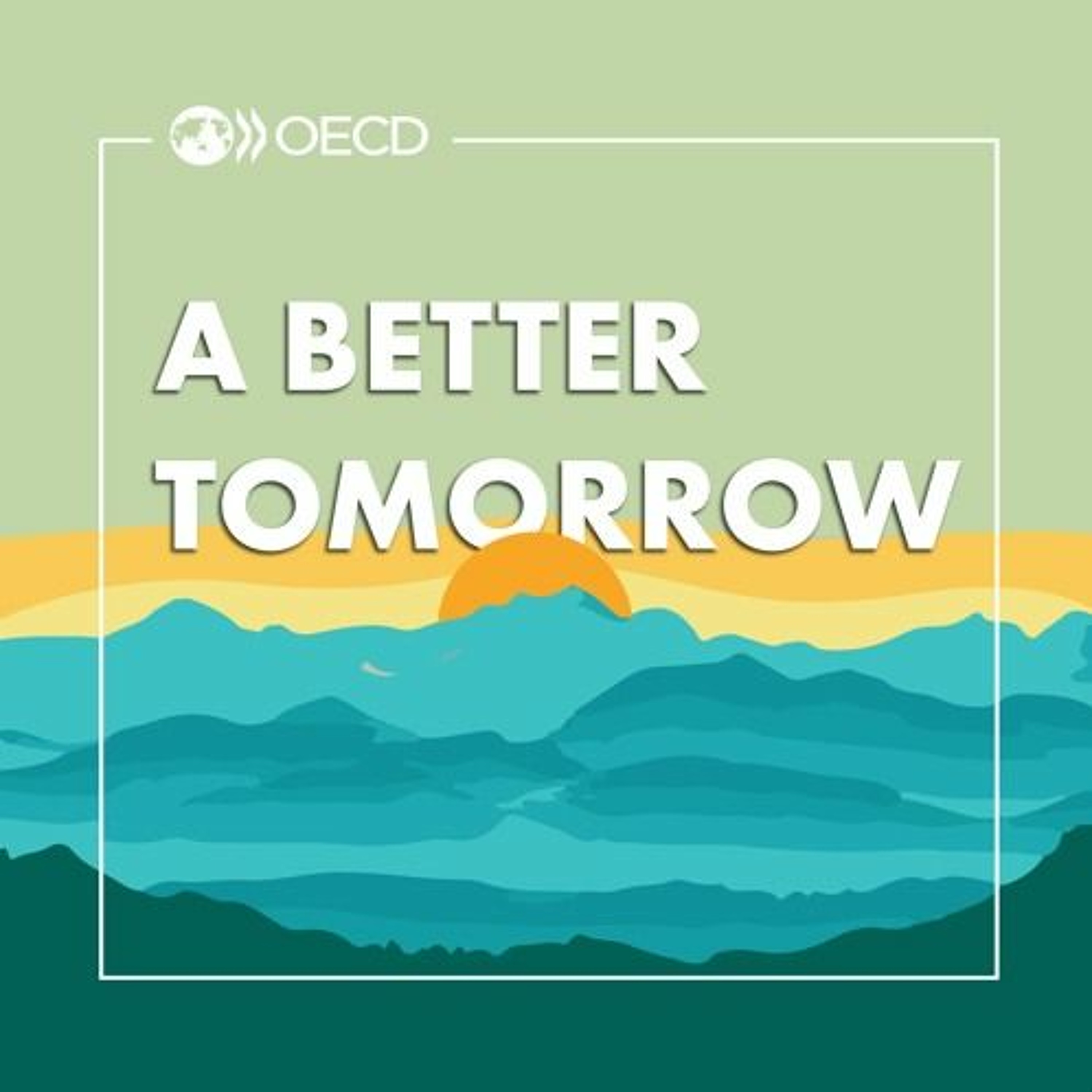
OECD PodcastsA policeman’s journey to activism: Combatting violence against womenIn this episode of Truth Hurts, Monika Queisser speaks with Bert Groen, a former police officer turned activist in the fight against gender-based violence in the Netherlands. He shares his experiences in dealing with violence against women, explains how the police force and the justice system more broadly can better help survivors of domestic violence, why it is so important to integrate all services survivors need in one place, and how Family Justice Centers can be a source of hope and empowerment.
Host: Monika Queisser
Guest: Bert Groen
Producer: Samia Basille
To learn more about the OECD’s work on vi...
2021-11-2417 min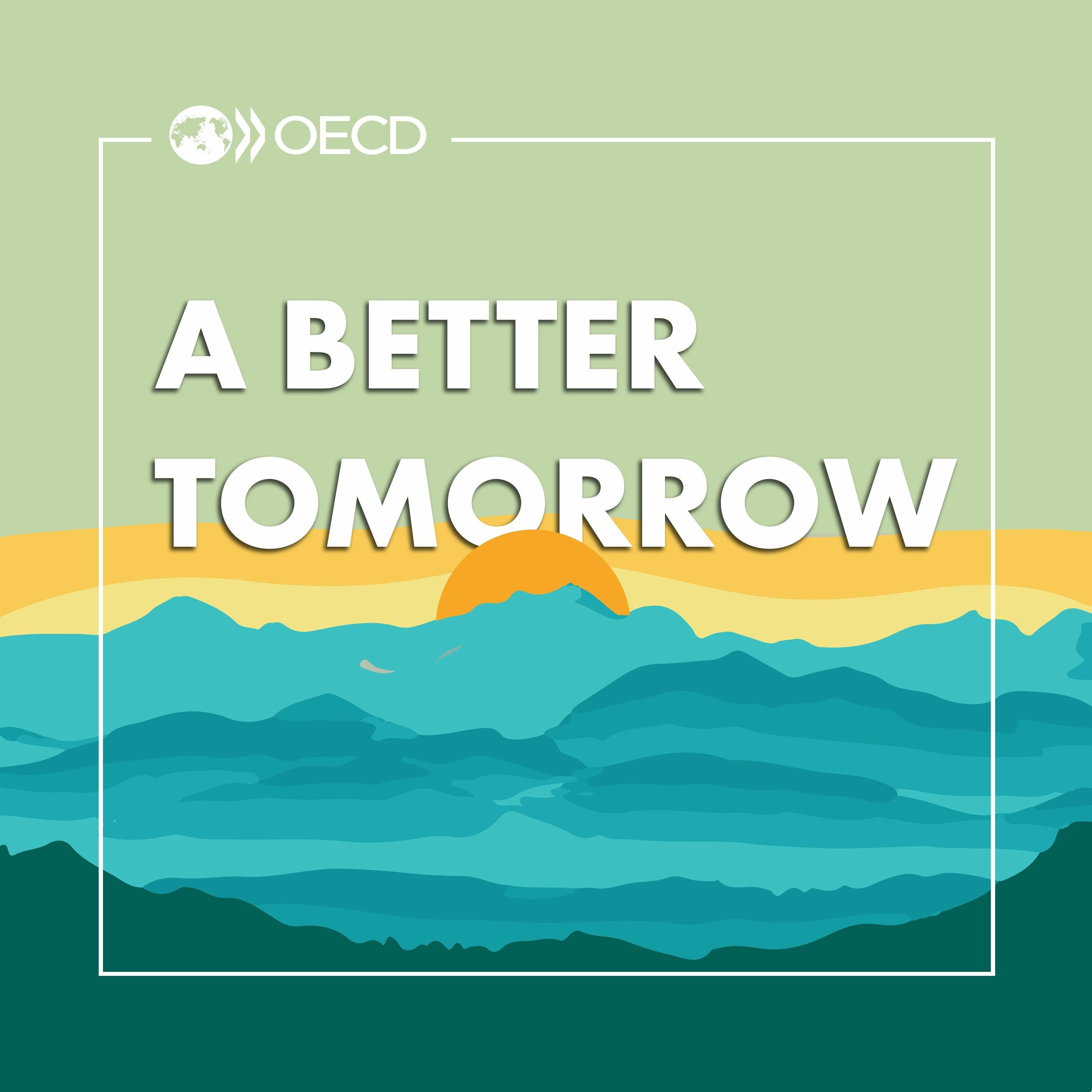
OECD PodcastsEducation equity and the lessons of the COVID-19 pandemicThe COVID-19 pandemic forced school closures in nearly all countries in 2020, with as much as 55 in-person learning days lost for young children and as many as 100 days lost for high school students. The impact of this disproportionately affected those from disadvantaged backgrounds, who were more likely to lack the resources for effective remote learning. The need to strengthen educational opportunities is not new, but the impact of COVID-19 on learning has made this challenge even more pressing. Marie-Helene Doumet, senior analyst for education and skills at the OECD, discusses lessons learned from the pandemic and what governments can do to...
2021-09-2219 min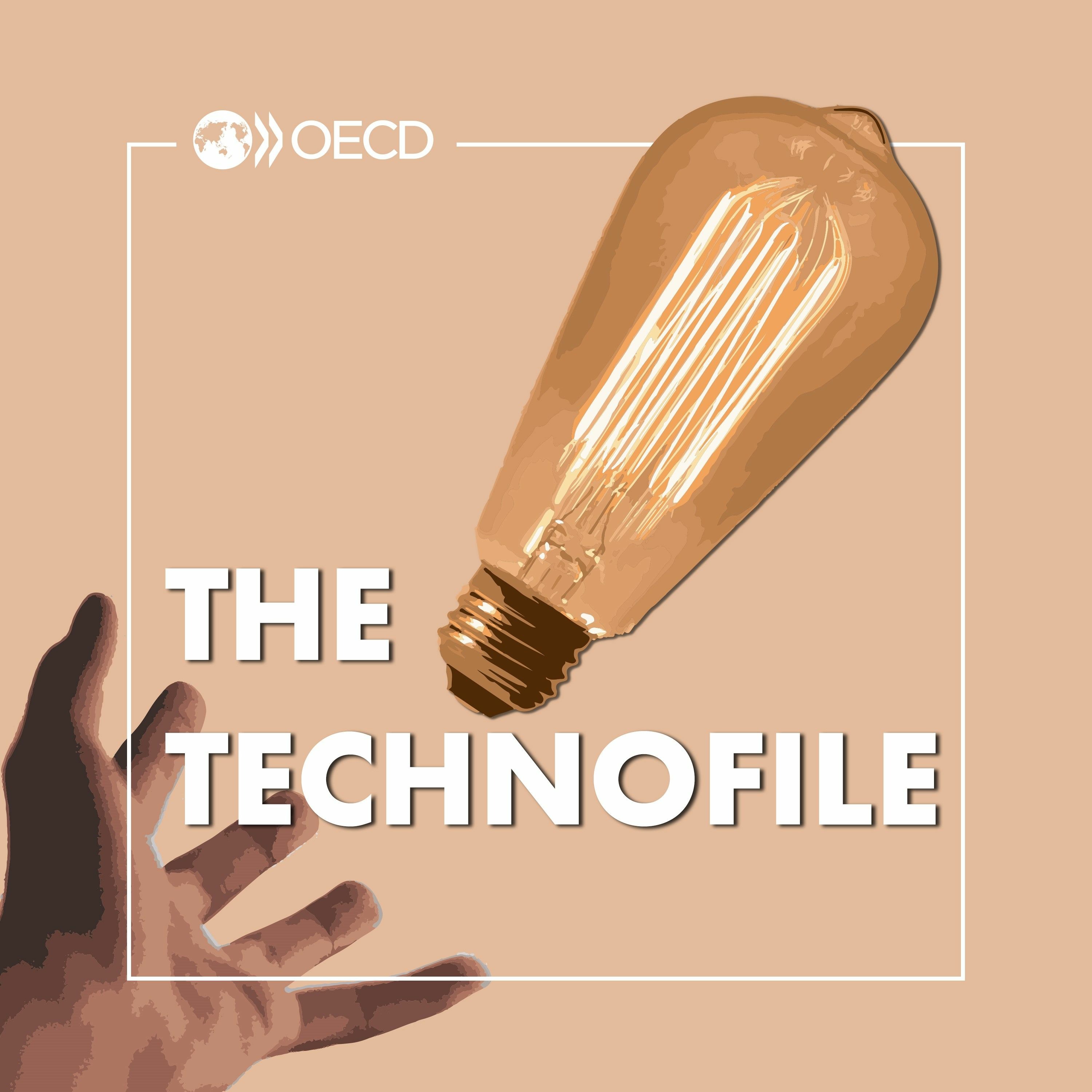
OECD PodcastsArtificial Intelligence: Managing the ethical challengesIf a self-driving car gets into an accident, who’s to blame — the person in the car, or the technology powering the vehicle? What about the manufacturer? If an automated job-search tool discriminates based on race or gender, who’s at fault — the software, or the company? We look at the complex ethical challenges central to AI, the fundamental philosophical questions — about human’s relationship with technology — and more practical concerns, about how to best regulate these new tools.
This is the final episode in a series on artificial intelligence, brought to you by the OECD’s Global Parliamentary Network and the European...
2021-07-2823 min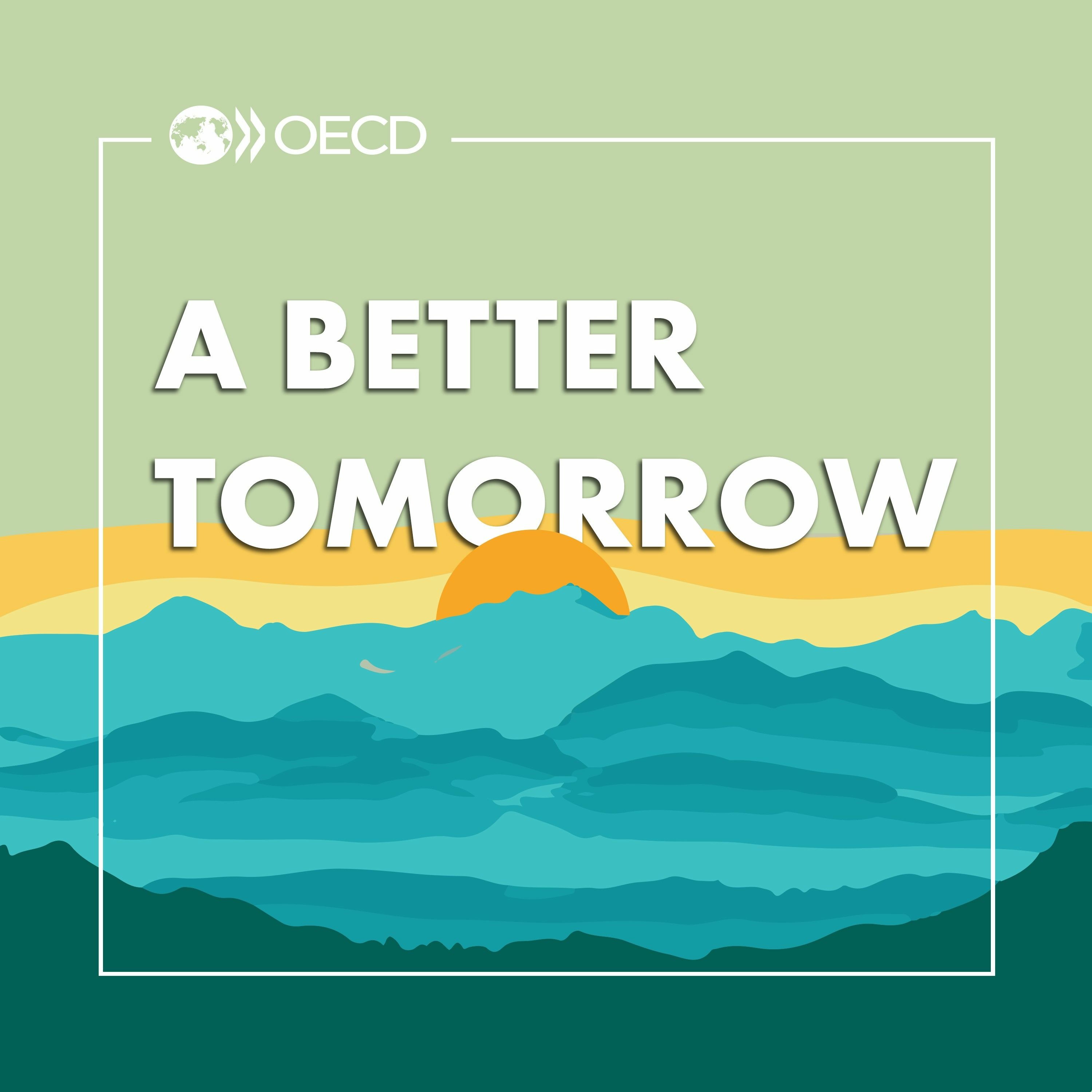
OECD PodcastsMigrant integration: How Handbook Germany community builds to overcome barriersEffective communication is key when it comes to helping migrants get to know their host country, integrate in their local communities and have access to essential public services. What are best practices in communication with migrants? How can communicators successfully establish interactive spaces online to respond to migrants’ information needs? And how can governments make sure to reach particularly vulnerable migrant groups in times of crisis? Mahdis Amiri, English Editor of the media outlet Handbook Germany, talks about their innovative approach to provide essential news and information to migrants.
This podcast is part of the OECD’s NETCOM project, the Netw...
2021-07-2216 min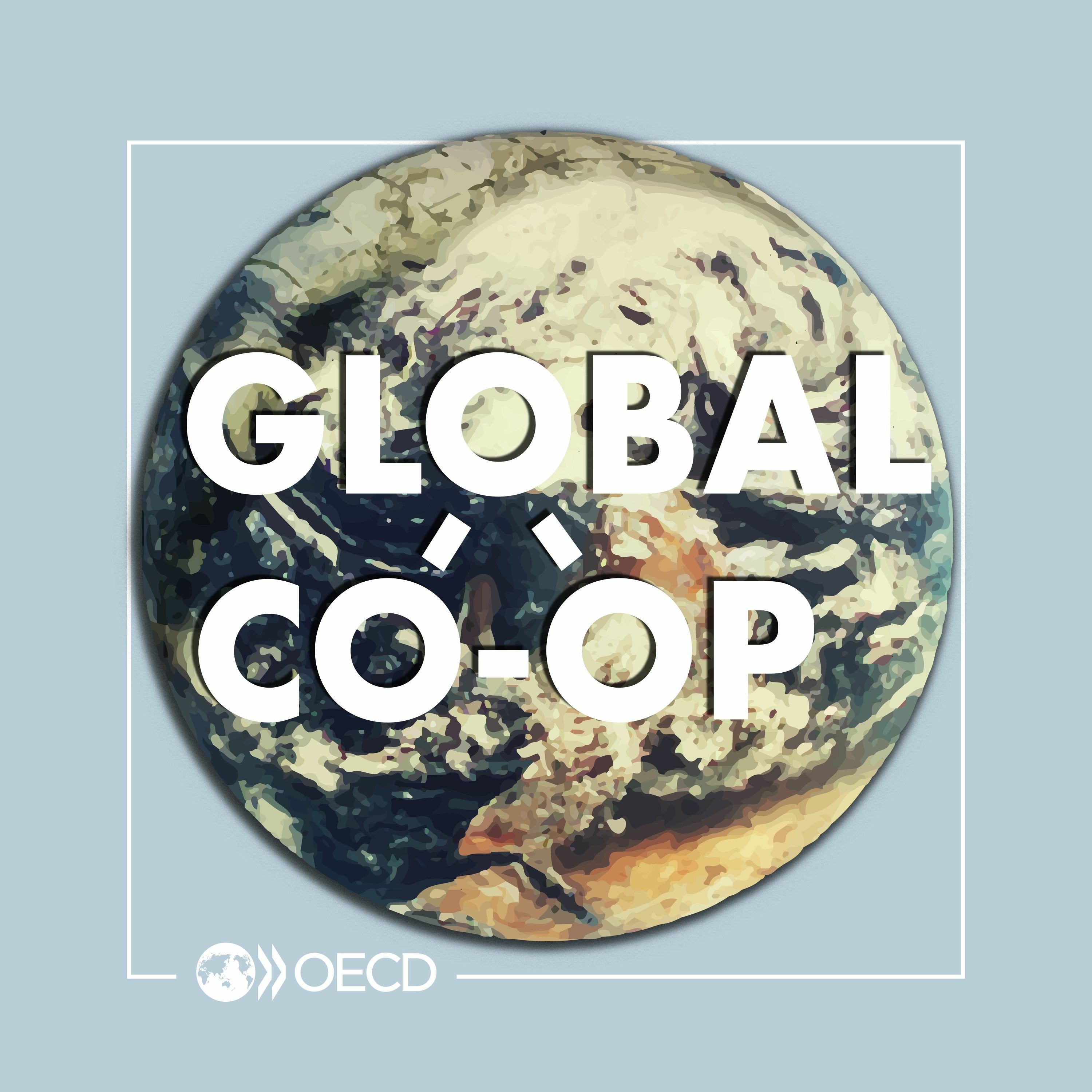
OECD PodcastsGlobal digital tax deal: A multilateral solution to end corporate tax avoidanceOver 130 countries and jurisdictions, representing more than 90% of global GDP, joined a new agreement in July 2021 to reform the international taxation rules and ensure that multinational enterprises pay a fair share of tax wherever they operate. This global tax deal – the outcome of negotiations co-ordinated by the OECD for much of the last decade – updates key elements of the century-old international tax system which is no longer fit for purpose in a globalised and digitalised 21st century economy and puts a floor on tax competition by setting a global minimum corporate tax.
Guests: Pascal Saint-Amans
Host: Lawrence Speer
Producer: Robin Alli...
2021-07-1621 min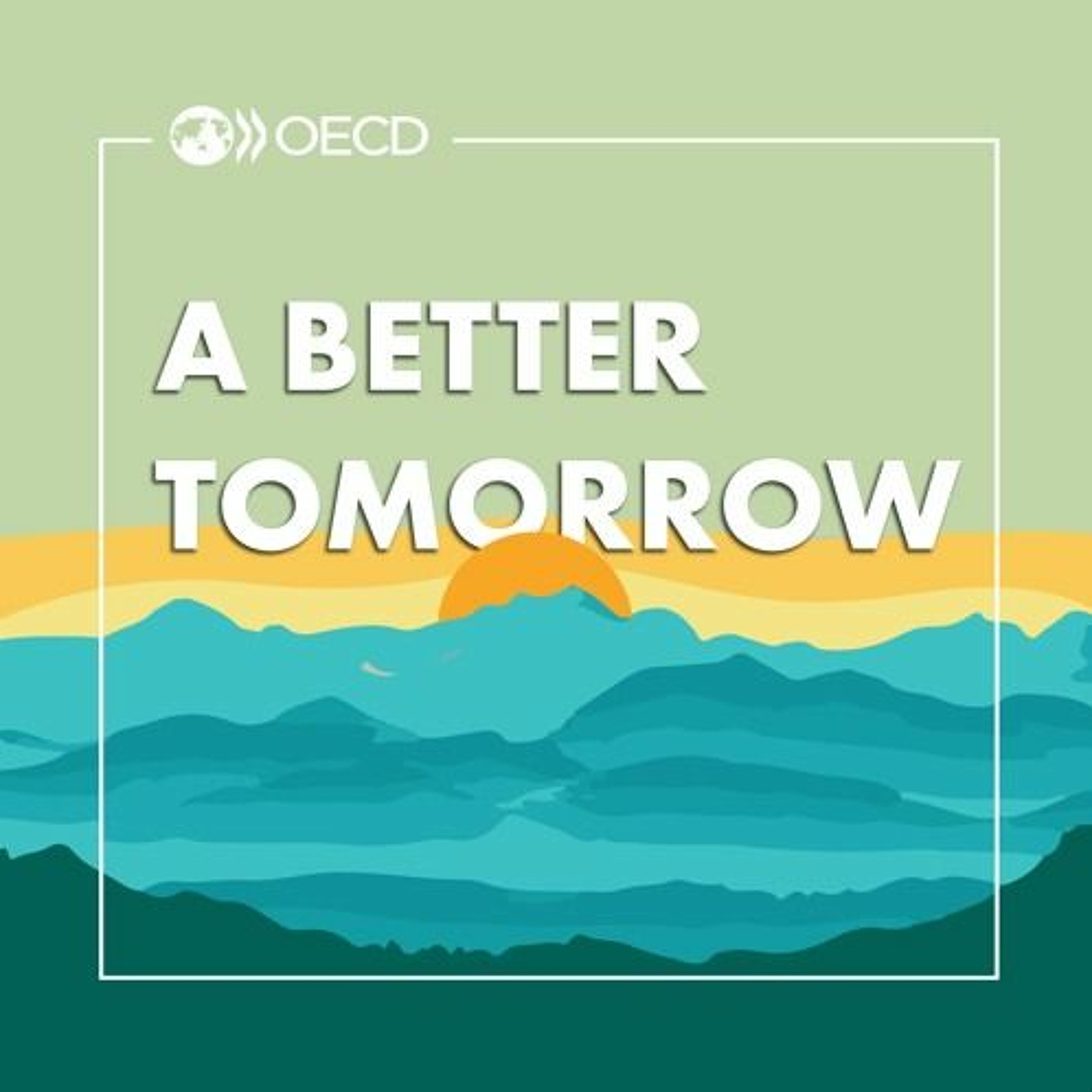
OECD PodcastsTruth Hurts: The unknown brain injuries of domestic violence survivorsPioneering research is showing that brain trauma is pervasive in cases of domestic violence against women. Depression, anxiety, memory loss, disorientation, and sleep problems are all potential symptoms of someone who has experienced a traumatic brain injury. Recognising and treating brain injuries is key to help survivors of domestic violence. In the second episode of the OECD podcast series “Truth Hurts” Eve Valera, Associate Professor in Psychiatry at Harvard Medical School shares with Monika Queisser her research on brain trauma and women who have survived domestic abuse and why it is so important to raise awareness with policy makers, women’s shel...
2021-07-1523 min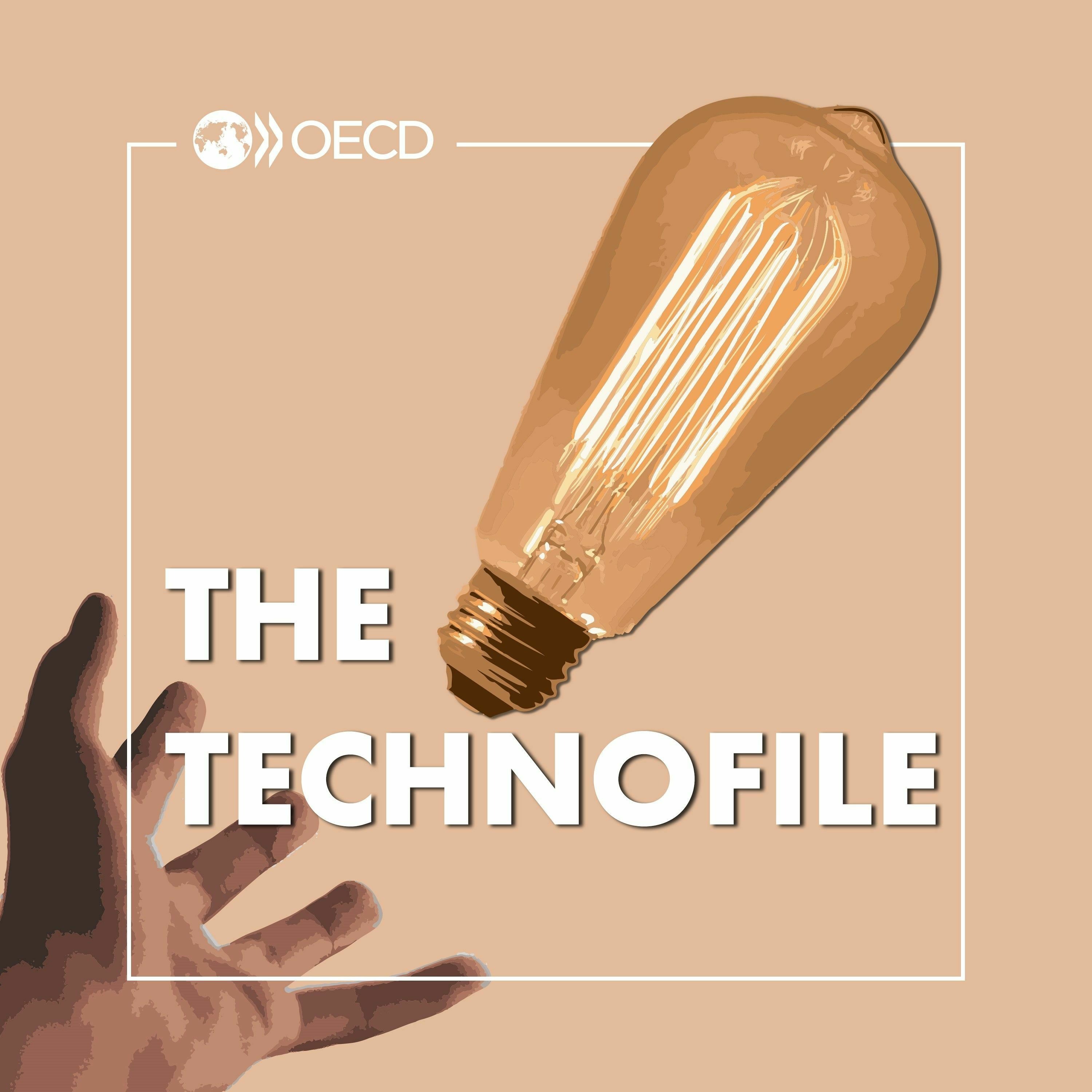
OECD PodcastsArtificial Intelligence: Regulation Can Support InnovationIn April 2021, the European Union unveiled a proposal for unprecedented regulations on the use of AI technologies — with implications for companies, governments, and citizens alike. The tide seems to be shifting, with private companies facing increasing scrutiny. We will hear how regulation can promote innovation, and how citizens can be brought into the discussion.
This episode is the second in a series on artificial intelligence, brought to you by the OECD’s Global Parliamentary Network and the European Parliament’s Panel for the Future of Science and Technology (STOA).
Guests: Deirdre Clune, Lina Galvez Munoz, Andrea Renda
Host: Karina Piser
Produc...
2021-06-1825 min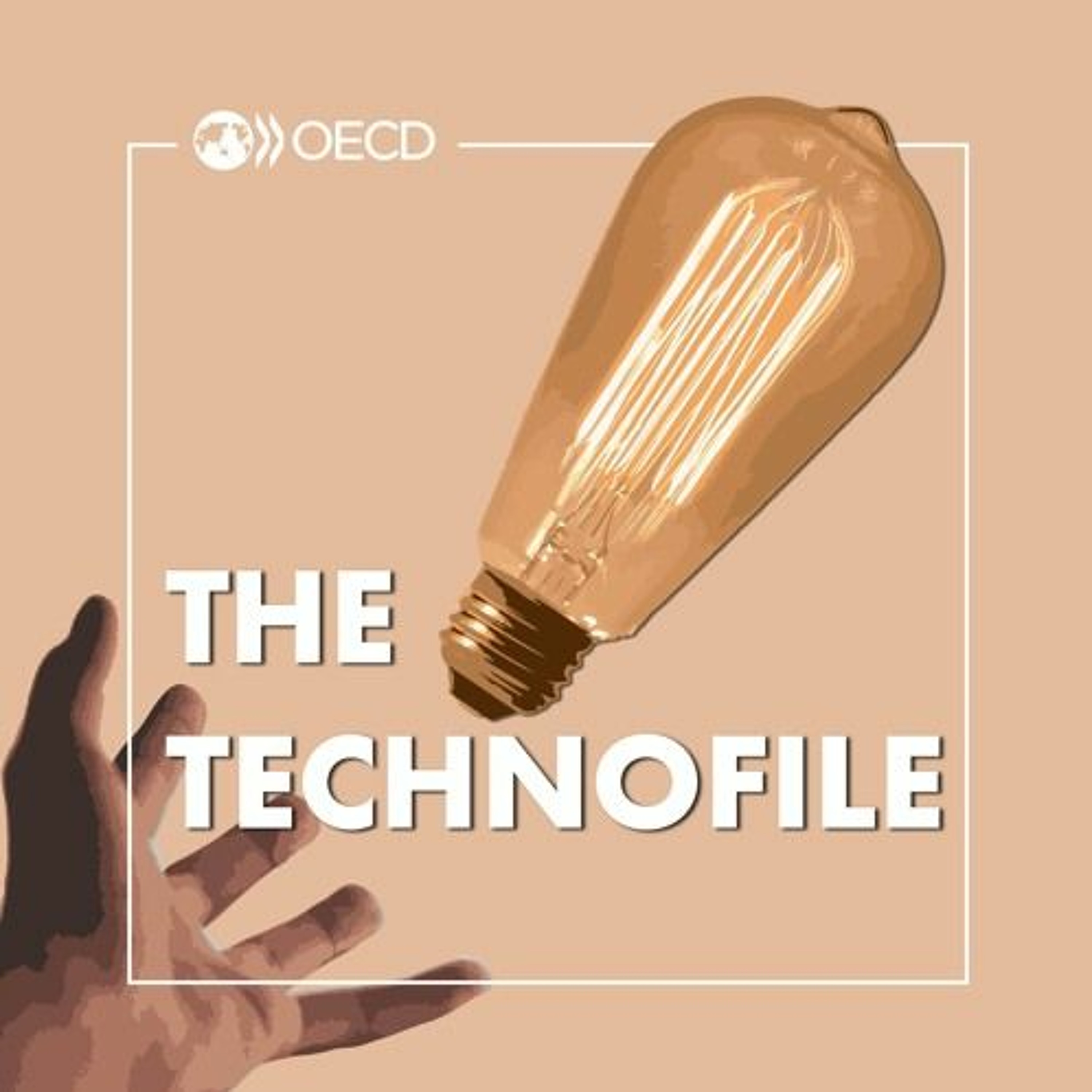
OECD PodcastsKeeping control over AI requires work. Cooperation matters.Artificial Intelligence is everywhere you look, from mapping our route to targeting advertisements. But how can we maintain agency and ensure AI is trustworthy when it is developing so much faster than policy? What role should the European Parliament and national governments play to regulate these technologies, and what value would international cooperation bring?
We’ll answer these questions with Eva Kaili, Greek MEP and Chair of the European Parliament’s Panel for the Future of Science and Technology; Anthony Gooch, Director of the OECD’s Public Affairs and Communications Directorate and chair of the Global Parliamentary Network; Jeremias Prassl, AI exp...
2021-05-2023 min
OECD PodcastsTruth Hurts: Sheltering from domestic violenceViolence against women is one of the most widespread, persistent and devastating human rights violations in the world. More than one in three women worldwide say they experienced physical or sexual violence in their lifetime. The pandemic has made things worse: confinement trapped millions of women around the world at home with their abusers. In the first episode of the OECD podcast series “Truth Hurts” Charlotte Kneer, CEO of Reigate and Barnstead Women’s Aid, tells Monika Queisser how her personal experience with intimate partner violence brought her to running shelters, why it can be so difficult to leave an abusiv...
2021-05-0423 min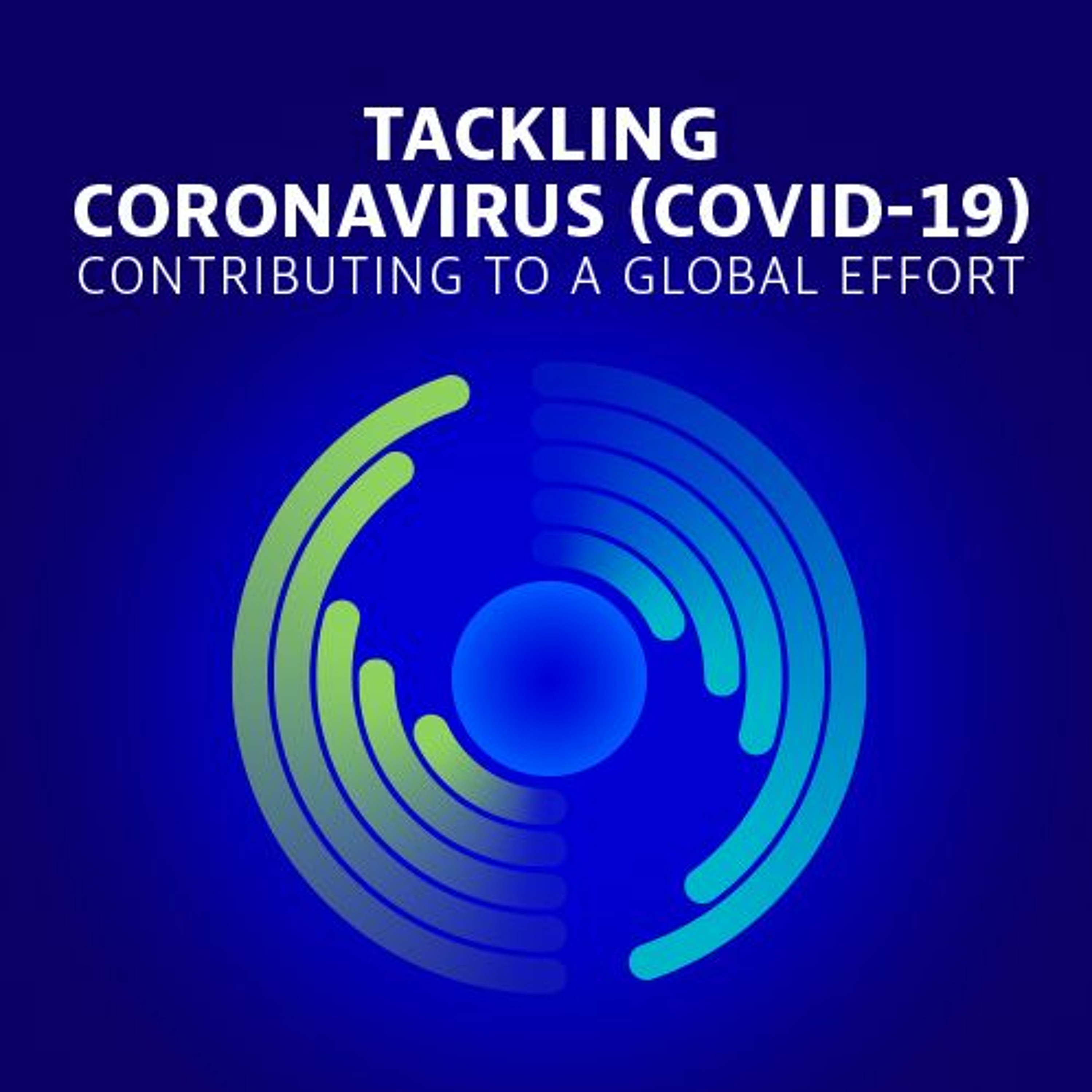
OECD PodcastsWhy ending racial inequality is vital for COVID-19 recovery, with Valerie WilsonThe COVID-19 pandemic has not affected everyone equally, and people of colour have paid a particularly high price, whether in terms of lives lost among vulnerable frontline workers or higher unemployment and economic hardship, or even by being left out of vaccine rollouts. The coronavirus crisis has exposed the need to step up the fight against racism and discrimination, spurred on by global protests and campaigns such as Black Lives Matter, and the OECD is urging policymakers to make sure everyone gets their fair share in the economic recovery phase. Valerie Wilson, Director of the Economic Policy Institute’s Program on...
2021-03-2921 min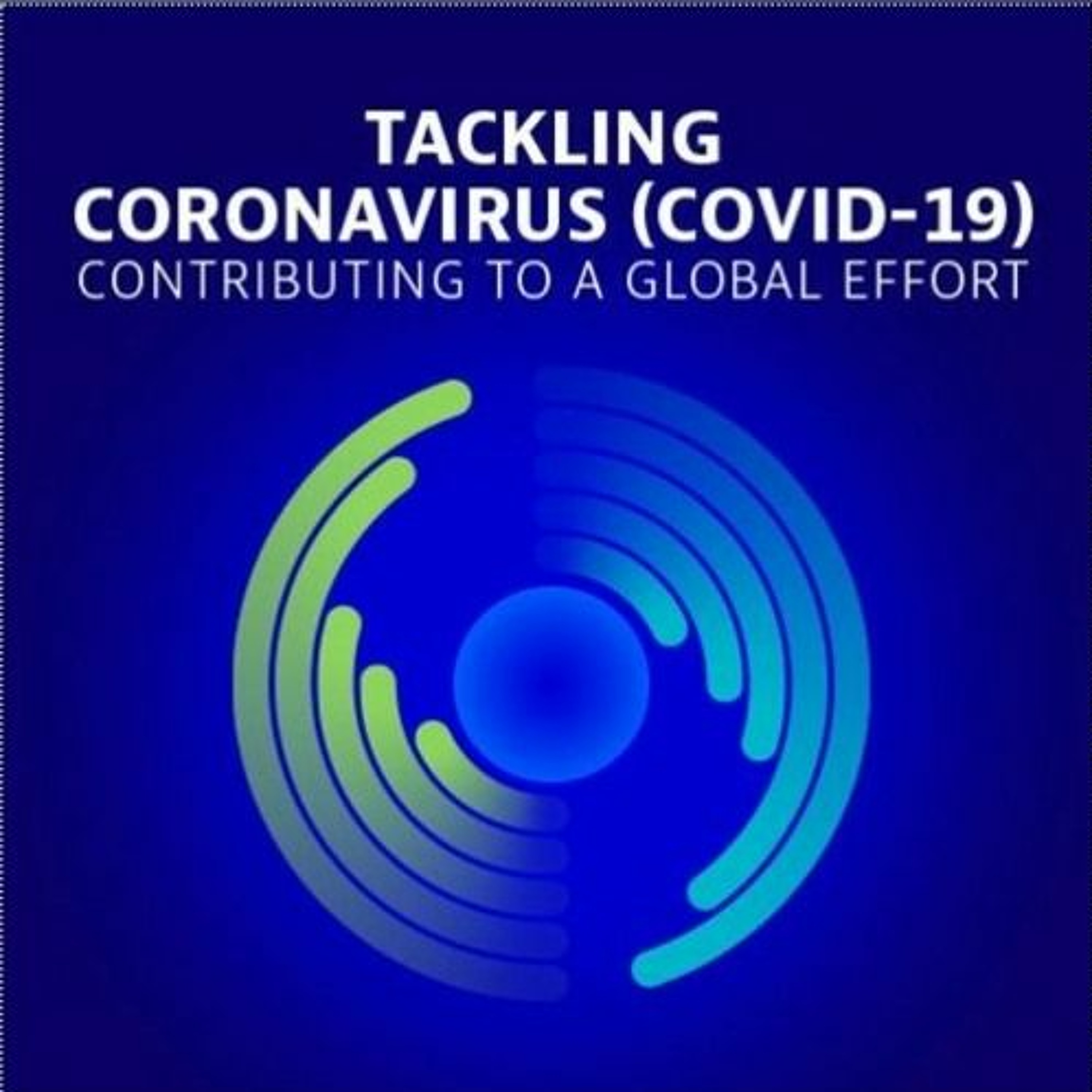
OECD PodcastsFighting gender inequality in cities: Lessons from women in leadershipInternational Women's Day on 8 March is particularly important this year, as COVID-19 threatens decades of progress towards gender equality. In this tale of two different cities, and in association with the OECD Champion Mayors initiative, Karina Piser talks to Mayor Lisa Helps of Victoria, British Columbia in Canada, and Diana Rodriguez Franco, the Secretary of Women's Issues in Bogotá, Colombia, about the challenges they face, the impact of the coronavirus pandemic, and the progress they have made in the fight against discrimination. They explain how women in leadership make a difference.
To learn more about the OECD's Gender initiative, visit: w...
2021-03-0829 min
OECD PodcastsTax in a digital world: Why new international rules matter for everyoneGlobalisation has brought major benefits for businesses, but at the same time it has enabled large multinational firms to book their profits in countries with low or no tax, rather than where they carry out their business activity. Governments lose out because shifting profits in this way can erode the tax base. Moreover, the digital economy adds to the challenge of working out how much international companies owe in tax and to which countries, in part because digital firms may not have a physical presence in the places they do business in. The OECD, which launched the Base Erosion and...
2021-02-1825 min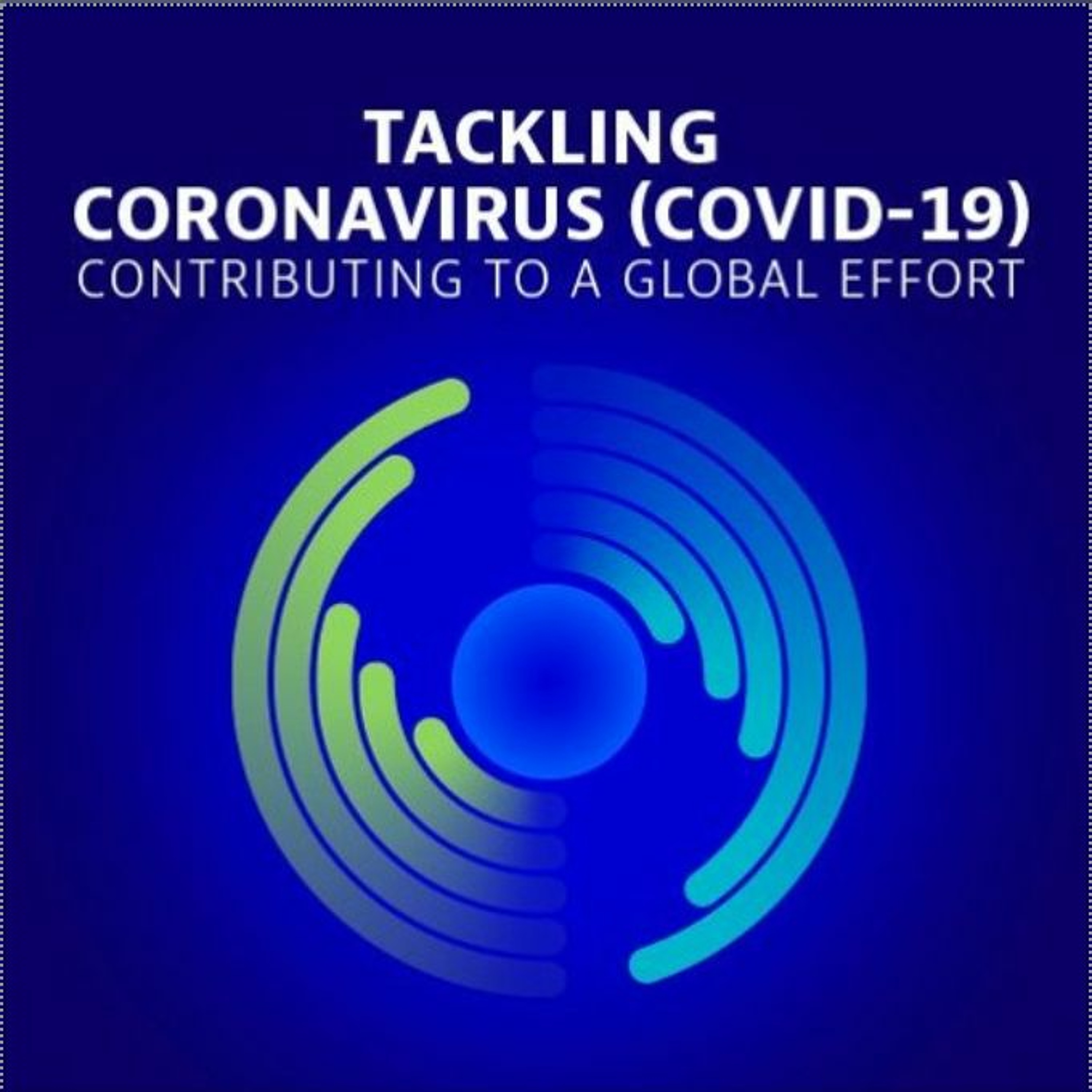
OECD PodcastsCovid-19: Vaccines, public confidence and international co-operationThe Covid-19 vaccine is finally here. Finding the vaccine was the first step, but the Covid-19 pandemic poses many challenges about international cooperation and distributing a vaccine, public confidence, digitalisation in health care and many more. How can we produce enough vaccines to make an impact? How can we ensure that the vaccine is accessible for everyone? And once accessible, does the general public have enough trust in the vaccine to take it?
To learn more on the OECD's work on the Covid-19 pandemic, go to: https://www.oecd.org/coronavirus
Host: Robin Allison Davis
Interviewees:
Mark Pearson, OECD Deputy...
2020-12-2320 min
OECD PodcastsWhat data and digitalisation could mean for your democratic future with Shoshana ZuboffShoshana Zuboff is the author of The Age of Surveillance Capitalism: A Fight for a Human Future and the New Frontier of Power. Her book's release is very timely considering the impact of COVID-19. Collection and use of private data have expanded, bringing privacy concerns even further to the fore. What does the digital acceleration in this pandemic mean for our future? Shoshana Zuboff spoke with Anthony Gooch, Director of the OECD's Public Affairs and Communications directorate, for a podcast hosted during OECD's 2020 Forum Virtual Events to mark the OECD's 60th anniversary.
Host: Anthony Gooch
Interviewee: Shoshana Zuboff, author of "...
2020-12-1926 min
OECD PodcastsAll about AI: Should we be concerned about artificial intelligence?Machine learning, or artificial intelligence, can be traced back to the 1950s, but really leapt forward in the last decade or so thanks to more powerful computing. AI is at the wheel when it comes to driverless cars, and is used by farmers to monitor crops, and by the police to solve crime. It has promise in health care too, including to better detect COVID-19. Could AI go too far, as machines teach machines, and even learning human emotions and tastes, yet with very little control by human beings. Policymakers are now taking AI seriously, to safeguard public interests, and...
2020-11-1921 min
OECD PodcastsBack to school in the Covid-19 era with OECD's Andreas SchleicherBack to school? Or not back to school? That is the question….
In the first half of 2020, 188 countries temporarily closed their schools to slow down the spread of the Covid-19 virus. Suddenly, more than 1.5 billion young people were on their own or following classes online. Many school re-openings since then have continued to be disrupted by the virus: some have had to switch back to remote learning just days after resuming classes as infection rates ramped up. What are the trade-offs between getting kids back to school and keeping communities healthy? How can schools adapt to the coronavirus? And will th...
2020-09-0215 min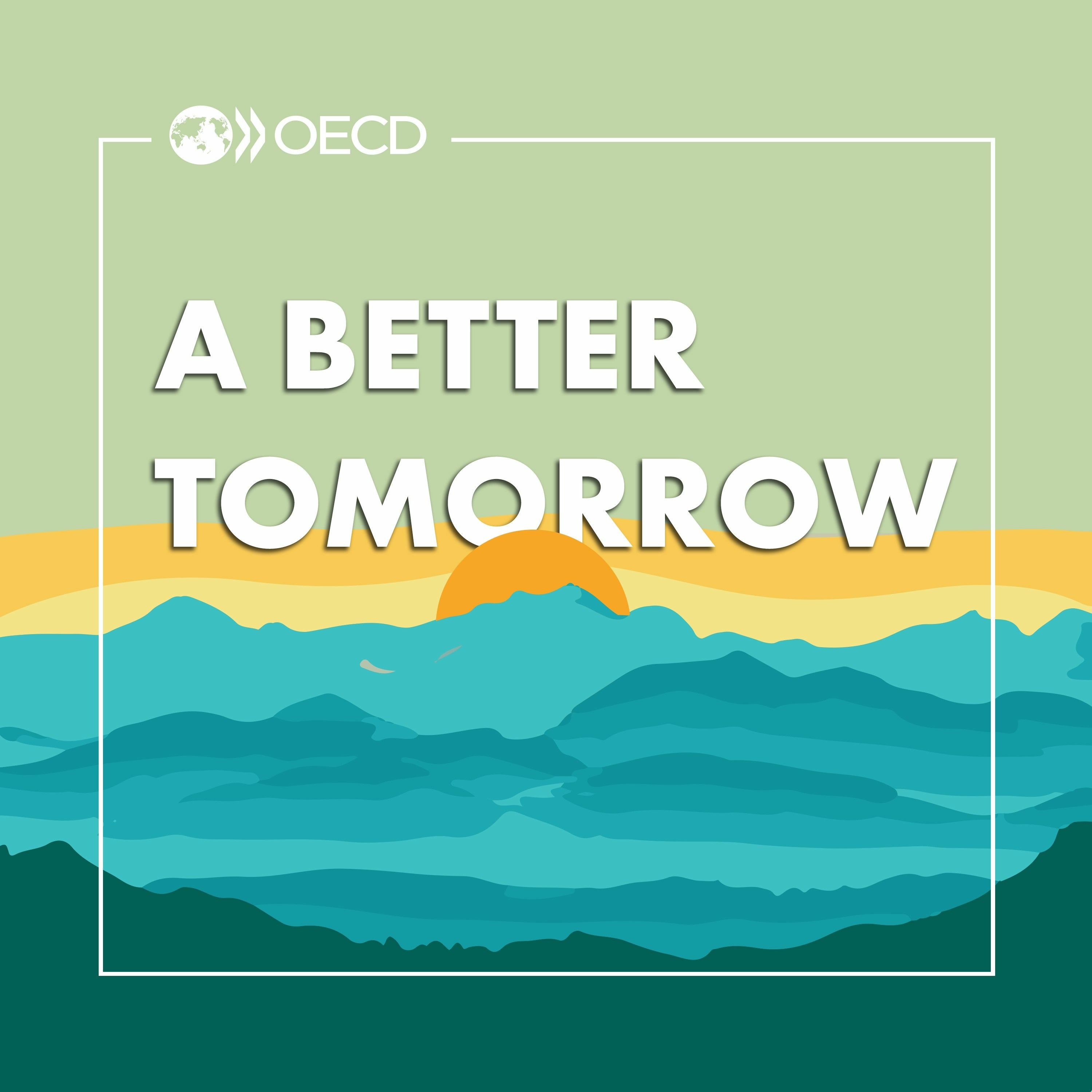
OECD PodcastsEarth’s sustainability depends on cities: a talk with the mayor of BonnAre cities our best hope for the planet? Ashok Sridharan, mayor of Bonn, Germany, thinks so. Part of the OECD’s Champion Mayors for Inclusive Growth Initiative, Bonn is pursuing sustainable development in things like energy, transport and housing, while addressing the challenges posed by the COVID-19 pandemic. With half of the world’s population living in urban areas, which produce half of global waste, 80% of greenhouse gas emissions and over 70% of energy-related carbon emissions, what happens in cities is likely to determine our future.
For more information on the Champion Mayors program, go to: http://www.oecd-inclusive.com/champion-mayors/
Host...
2020-08-1417 min
OECD PodcastsKeeping trade on track to fight COVID-19 with OECD’s Julia NielsonTrade tensions have been steadily ramping up. Brexit is rife with uncertainty and the COVID-19 pandemic has added new turbulence with lockdowns and radically changing consumer demand. But now is precisely the time when the world needs to come together on trade says Julia Nielson, deputy director of the OECD Trade and Agriculture Directorate.
To learn more about the OECD's work on Covid-19, go to: www.oecd.org/coronavirus
Host: Clara Young
Producer: Robin Allison Davis
Get the latest OECD content delivered directly to your inbox! Subscribe to our newsletters: www.oecd.org/newsletters
Follow us on social media: www.oe...
2020-08-0520 min
OECD PodcastsOvercoming the Covid-19 jobs crisisIn early 2020, the employment rate in OECD countries hit a new record high, after the decade-long recovery from the 2008 financial crisis. Then the coronavirus pandemic hit, with millions of people unable to go to work, an exceptionally stark drop in economic activity and unprecedented job losses. What needs to be done to get firms back in business and people back to work?
www.oecd.org/employment-outlook
www.oecd.org/coronavirus
Host: Kate Lancaster
Guest: Stefano Scarpetta, Director, Employment, Labour and Social Affairs, OECD
Producer: Robin Allison Davis
Get the latest OECD content delivered directly to your inbox! Subscribe to our...
2020-07-0813 min
OECD PodcastsCovid-19: Making sense of the world economic crisis, with the FT's Martin WolfThe global health crisis brought on by COVID-19 has triggered what is likely to become the worst economic recession in a century. And it has also brought huge uncertainty, about how long the crisis will last, how it will affect our jobs, our societies, and our thinking. Martin Wolf, chief economics commentator of the Financial Times, talked to Rory Clarke about the challenges and offers advice to policymakers, young economists and international organisations alike, as we all try to make sense of the coronavirus crisis. Food for thought as the OECD prepares to mark its 60th anniversary in 2021. Mr Wolf's...
2020-07-0230 min
OECD PodcastsCOVID-19 : Quelles perspectives économiques ? Laurence Boone, Cheffe économiste de l’OCDEDepuis le début de l'année 2020, la pandémie de coronavirus s'est répandue comme une traînée de poudre, fauchant des centaines de milliers de vies. Elle a fait des ravages en termes de santé, de bien-être et d’emplois. Elle a provoqué la récession la plus grave jamais observée depuis près d'un siècle. Quelles sont les perspectives économiques ? La reprise peut-elle être rapide ? Que peuvent faire les pouvoir publics ? Décryptage d’une situation inédite avec Laurence Boone, Cheffe économiste de l’OCDE.
Host: Anne-Lise Prigent
Productrice: Robin Allison Davis
http://www.oecd.org/pers...
2020-06-2217 min
OECD PodcastsOn a tightrope: COVID-19 and the Economic Outlook, with OECD Chief Economist Laurence BooneWith the world economy on a tightrope, what can policymakers do to inch us forward to recovery? OECD Chief Economist Laurence Boone, explains the main messages of the Economic Outlook released on June 10th.
Host: Rory Clarke
Producer: Robin Allison Davis
To learn more about the Economic Outlook, go to: www.oecd.org/economic-outlook
To learn more about the OECD's work on Covid-19, go to: www.oecd.org/coronavirus
Get the latest OECD content delivered directly to your inbox! Subscribe to our newsletters: www.oecd.org/newsletters
Follow us on social media: www.oecd.org/social-media
2020-06-2216 min
OECD PodcastsCovid-19 and the growing digital divide in educationDigital learning tools have been a lifeline during the Covid-19 lockdown but what does this mean for teachers, students and parents? Access to technology and its use, particularly for the most vulnerable, are under the spotlight, along with mental and physical wellbeing. As countries head back to schools, how is this new normal shaping learning now and in the future?
To learn more, go to: www.oecd.org/coronavirus
Host: Shayne MacLachlan
Guest: Tracey Burns, OECD Senior Education Policy Analyst
Producer: Robin Allison Davis
Get the latest OECD content delivered directly to your inbox! Subscribe to our newsletters: www.oecd.o...
2020-05-1715 min
OECD PodcastsWinning the war against Covid-19: A new phase – with Francesca ColomboAfter months of battling the coronavirus, where are we in this pandemic? What has the impact been on health systems and workers? As some countries begin to ease restrictions, what can policymakers do to minimise risk and prevent another lockdown?
www.oecd.org/coronavirus
Host: Kate Lancaster
Guest: Francesca Colombo, Head, Health Policy Division, OECD
Producer: Robin Allison Davis
Get the latest OECD content delivered directly to your inbox! Subscribe to our newsletters: www.oecd.org/newsletters
Follow us on social media: www.oecd.org/social-media
2020-05-1214 min
OECD PodcastsCovid-19 shock: What lessons can we learn for competition and global markets?The Covid-19 pandemic has shocked our world. Our healthcare systems are under intense pressure, and the economy is suffering badly too, with stalling trade and investment, and massive job losses adding to human suffering. We talk to Frederic Jenny, Professor of Economics at ESSEC Business School in Paris and chair of the OECD Competition Committee. Why have our economies been so badly affected by the coronavirus crisis? What questions does the crisis raise about globalisation, and about markets? Can competition policy help? How can governments be better prepared in future?
Host: Robin Allison Davis
For more information, go to: www...
2020-04-2311 min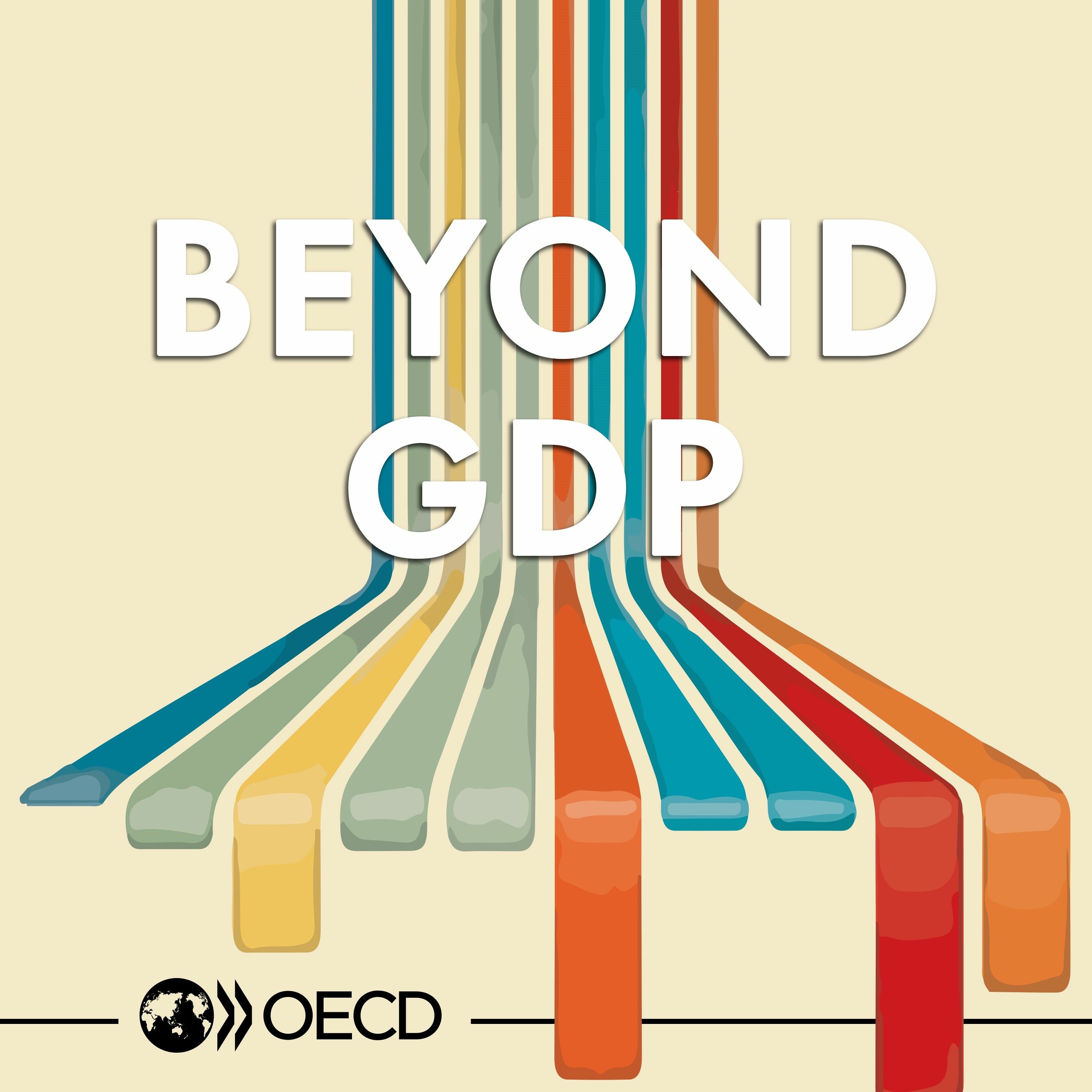
OECD PodcastsWhat is human capital? With OECD’s Zuzana Smidova and Jarmila BotevEver wonder what is meant by “human capital”? Then is the episode for you. Join OECD economists, Zuzana Smidova and Jarmila Botev, for an explanation of what human capital is, why it matters, and what we can do to boost human capital, whether as an individual or a country. And to find out even more about human capital and how your country measures up, visit oe.cd/human-capital.
Host: Kate Lancaster
Producer: Robin Allison Davis
Get the latest OECD content delivered directly to your inbox! Subscribe to our newsletters: www.oecd.org/newsletters
Follow us on social media: www.oecd.org/so...
2019-12-0315 min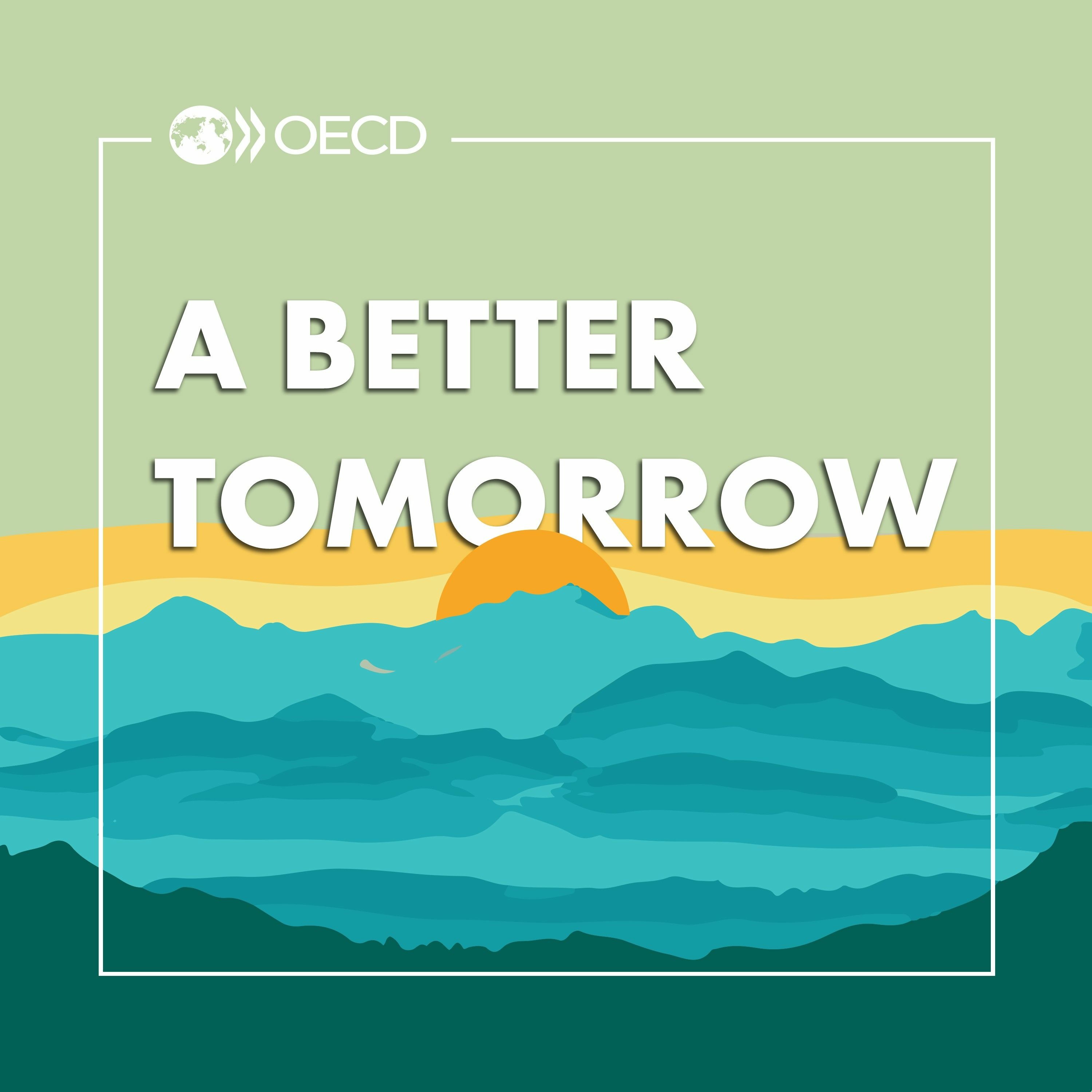
OECD PodcastsWhat can governments do to be ready for the future of work? With OECD’s Stefano ScarpettaNew technologies such as automation and AI are rapidly reshaping our economies and our work. For Stefano Scarpetta, head of the directorate for employment, labour and social affairs at the OECD, these changes aren’t likely to lead to massive, technologically driven unemployment, but rather can bring opportunities if the right policies and support are in place. In order to build an inclusive future of work, governments – together with employers, trade unions and civil society – need to act now. Because if we wait to see exactly how technologies are changing our economies, we’ll always be too late.
Host: Kate Lancaste...
2019-11-2015 min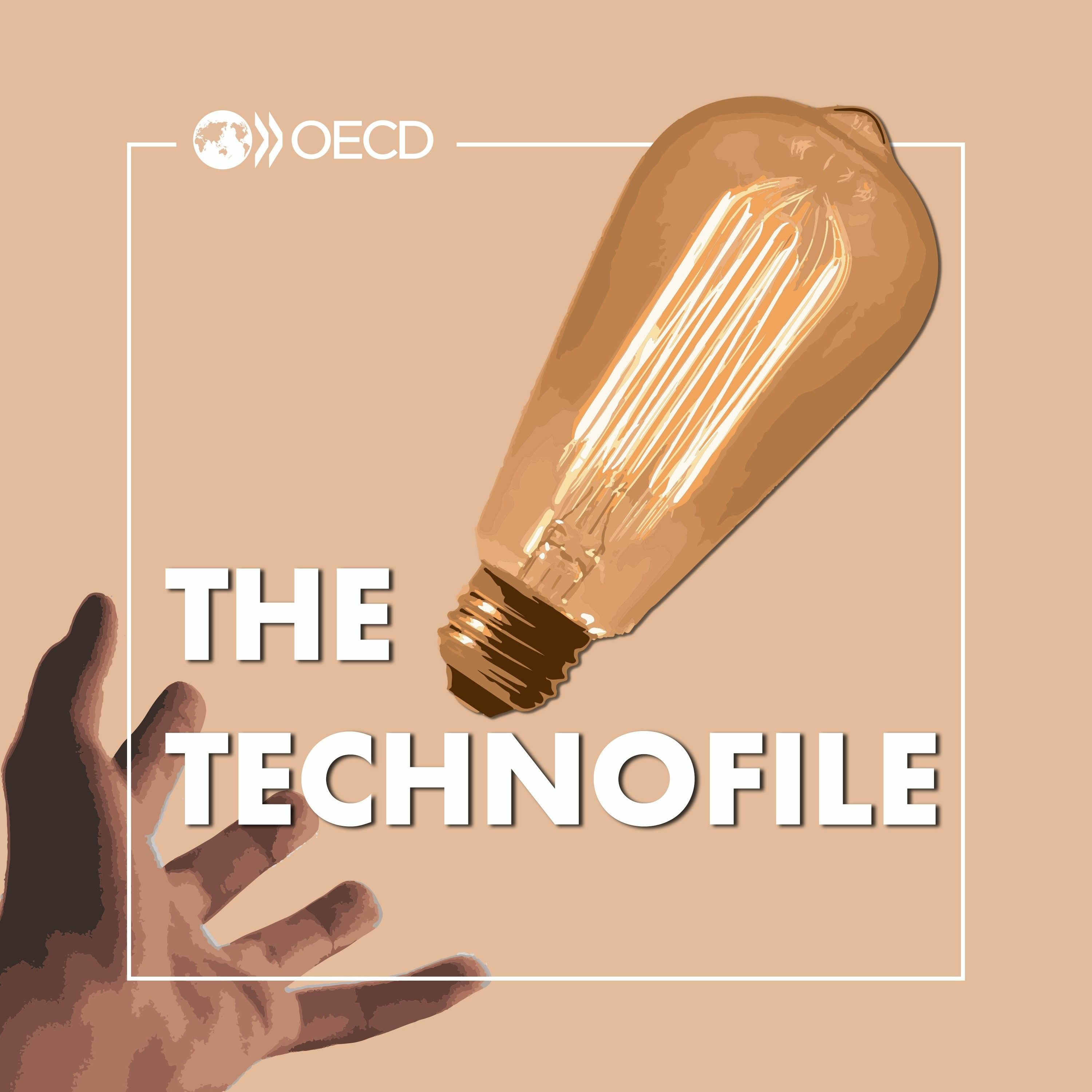
OECD PodcastsRobojobs: Matthew Taylor on the future of workWork as we know it will never be the same. In fact, it already isn’t the same for some people. According to the OECD, 14% of jobs in OECD countries are highly automatable – another 32% of jobs could be substantially changed in how they’re carried out.
Matthew Taylor discusses some ideas on how to extend the social security net to platform workers and how he thinks the general landscape of employment will evolve. Mr Taylor is the chief executive of the Royal Society for the Encouragement of Arts, Manufactures and Commerce (RSA). His 2017 review on modern employment, "Good Work”, was commissi...
2019-10-0214 min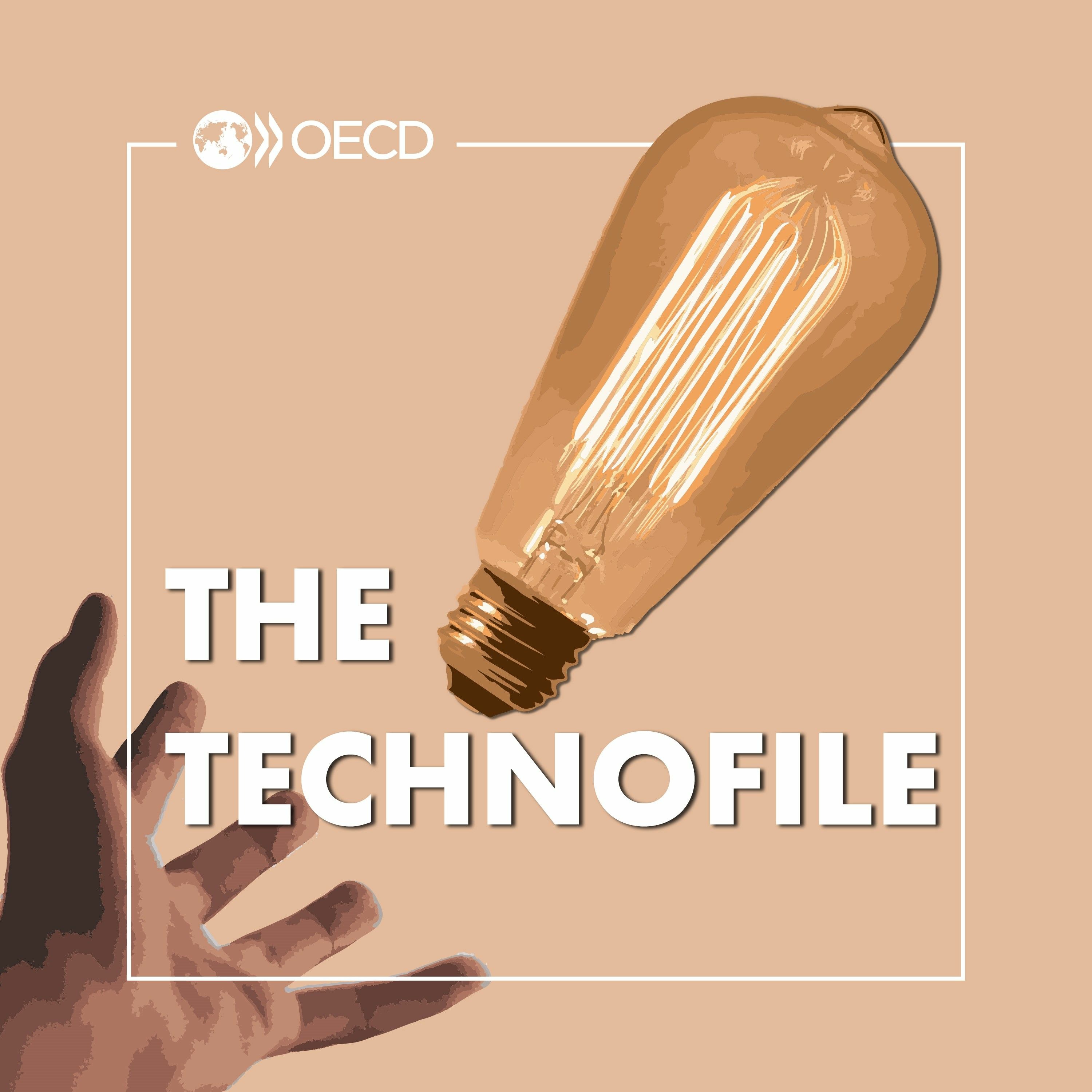
OECD PodcastsFirst-class humans, not second-class robots – Andreas Schleicher on learning and the future of workIn a world where machines can do more and more, what skills and knowledge will today’s children need in order to be prepared for the jobs of tomorrow? The OECD’s Andreas Schleicher says that AI and tech can make our lives and work a lot more rewarding and interesting – if we are prepared. We need to think about how human skills can complement those of machines, rather than try to do what they do. And we need to talk a lot less about education that ends at the school door and a lot more about how to give people...
2019-06-2614 min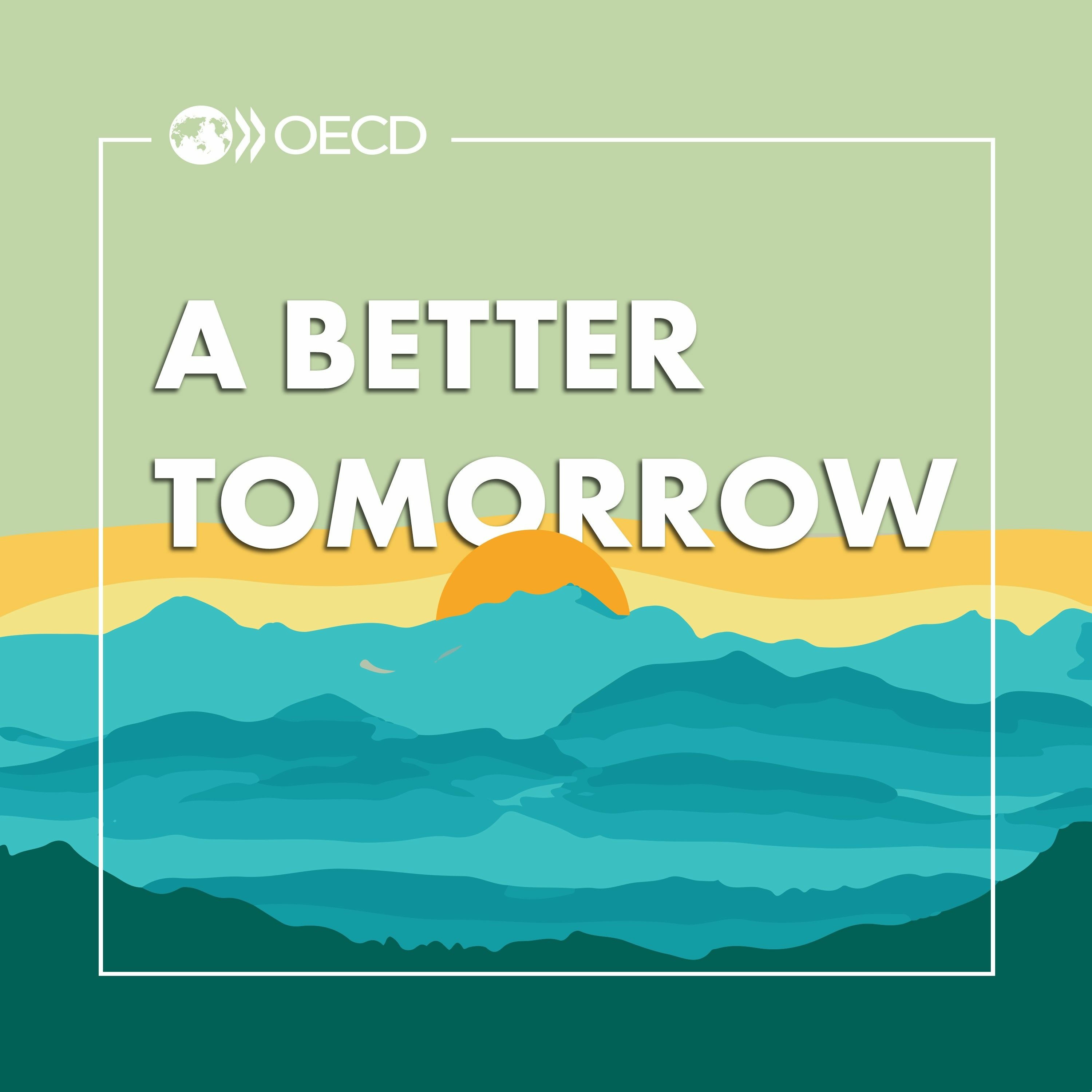
OECD PodcastsHelena Morrissey on why boardrooms need more womenWe need more women to work, to be paid the same as men, and to hold powerful positions. This is not just a matter of fairness but of plain economics. The OECD estimates that halving the gender gap in the work force by 2030 would boost GDP by about 6%.
Dame Helena Morrissey is the founder of the UK-based 30% Club. Its goal? To reach a minimum of 3 out of 10 women on boards and in senior management. And this is just the thin edge of the diversity wedge. Ms Morrissey believes the power base should also be more inclusive of different ethnicities and...
2019-05-2218 min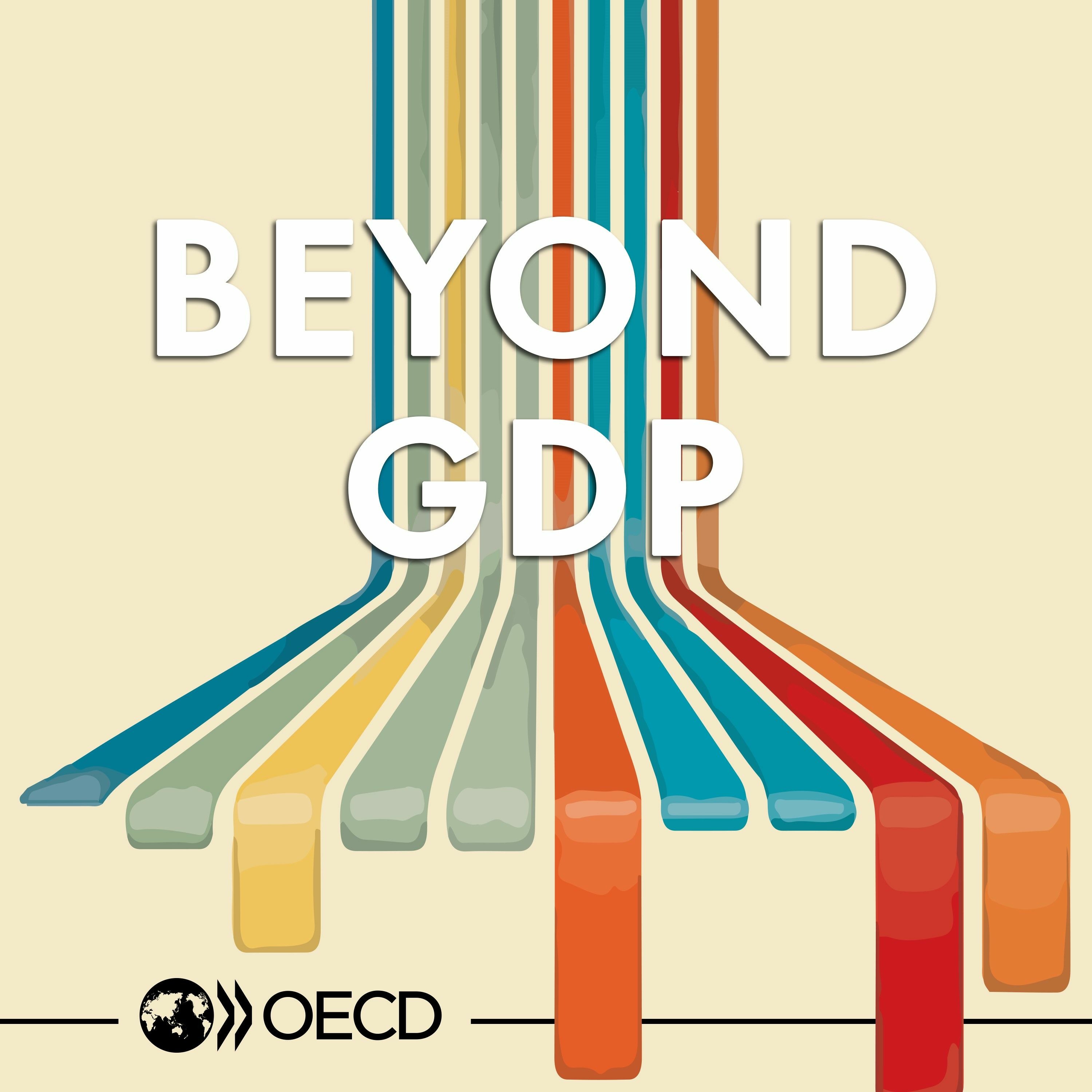
OECD PodcastsOECD’s Anthony Gooch on facts, fakes, the Forum, and the hope of civic techAnthony Gooch is head of OECD’s Public Affairs and Communications and director of OECD Forum. Now in its 20th year, the Forum is OECD’s annual thinkfest, bringing together public figures, academics, corporate leaders, and a whole host of people working to shape better policies and better lives. In this conversation, we talk about fragile trust, the hope of civic tech, and the complicated relationship between facts and feelings.
For more information on the OECD Forum and to join the debate:
https://www.oecd-forum.org/
Host: Clara Young
Producer: Robin Allison Davis
Get the latest OECD content delivered directly to y...
2019-05-1516 min
OECD PodcastsIntroducing OECD PodcastsHow can we all help shape better policies for better lives? In as little as 15 minutes, our OECD Podcasts bring you insightful interviews with OECD and guest experts on such pressing challenges as the coronavirus pandemic and health, inequality, the world economy, the digital transformation, climate change, social change, the environment, international co-operation, and more.
NOTE: All podcasts express the opinions of the interviewees and do not necessarily represent the official views of OECD member countries.
OECD Podcasts launched 2018: Rory Clarke, Alison Benney, Robin Allison Davis, Clara Young.
2019-05-1303 min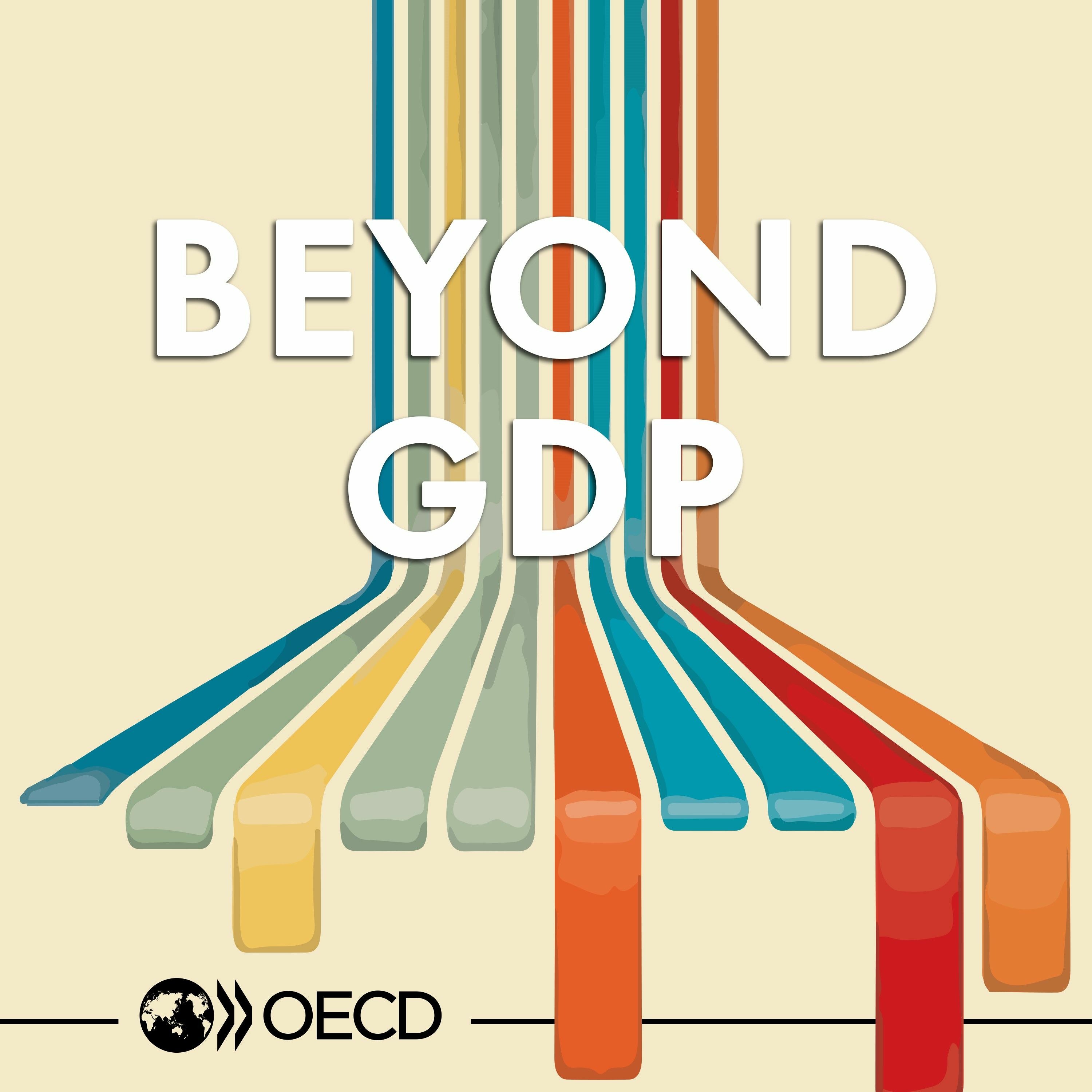
OECD PodcastsThe town mouse vs the country mouse with OECD’s Joaquim MartinsAfter visiting his cousin in the city, Aesop’s country mouse concludes that “Poverty with security is better than plenty in the midst of fear and uncertainty”. Those who feel they have neither security nor sufficient means in places like Wales, Italy’s Mezzogiorno and France’s Diagonale du Vide beg to differ. Joaquim Oliveira Martins, deputy director of the OECD’s Centre for Entrepreneurship, SMEs, Regions and Cities, says the answers to today’s populist angst lie in local strategies and coordination.
For more information, go to:
http://www.oecd.org/cfe/
Host: Clara Young
Producer: Robin Allison Davis
Get the latest...
2019-04-2415 min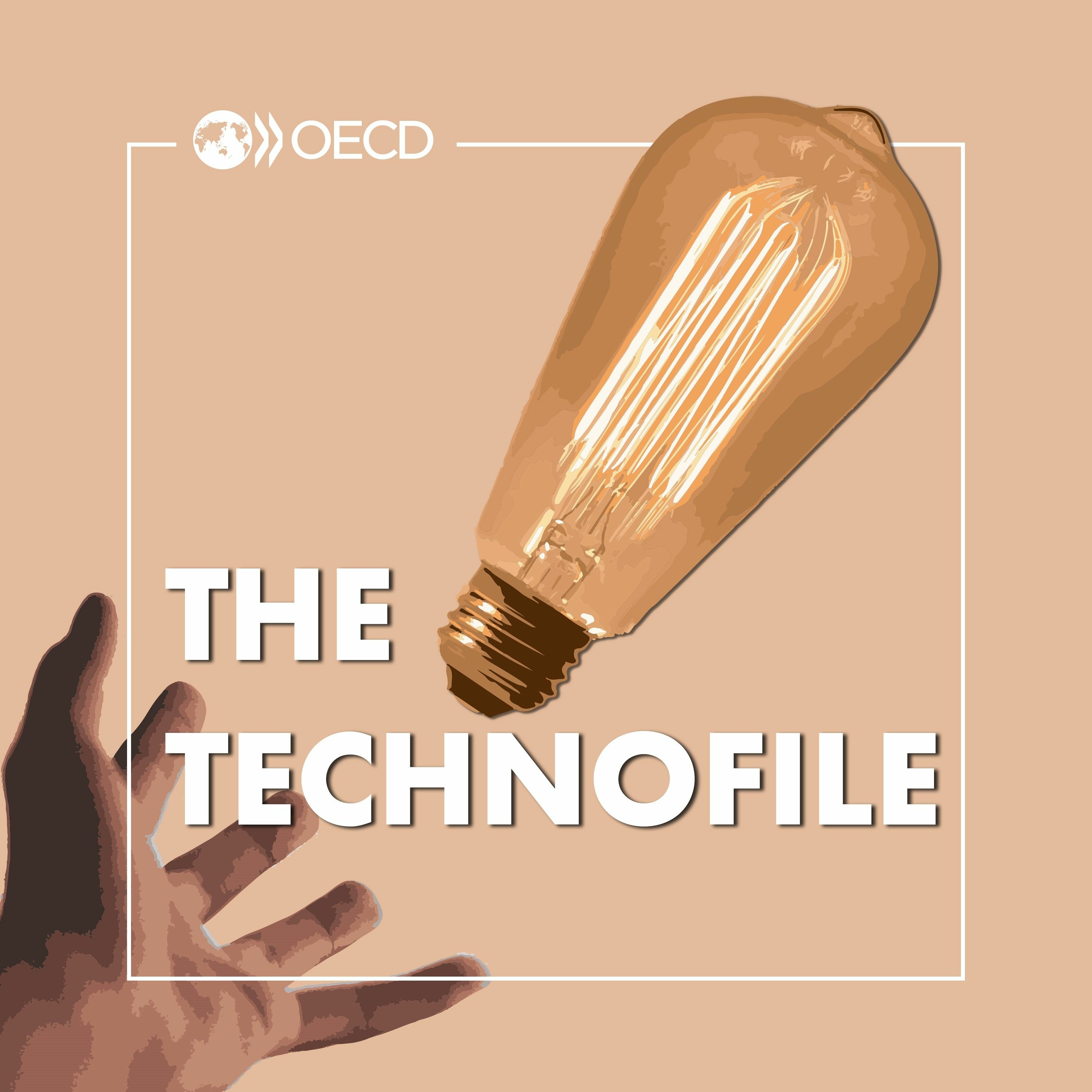
OECD PodcastsGender equality? OECD’s Gabriela Ramos says, “Yes, girls can.”At age 15, 5% of boys in OECD countries want to work in information technology (ICT). And girls? 0.5%. With society digitalising fast and the current gender gap in science/technology/engineering/maths (STEM) widening, the future still looks to be a “man’s, man’s, man’s world”. But Gabriela Ramos, OECD Chief of Staff and Sherpa to the G20, is betting against James Brown. She urges girls to set their ambitions high and calls on policy makers to break down the policy barriers that are holding women back.
For more information go to:
www.oecd.org/gender/
Host: Kate Lancaster
Sound engineer...
2019-03-0616 min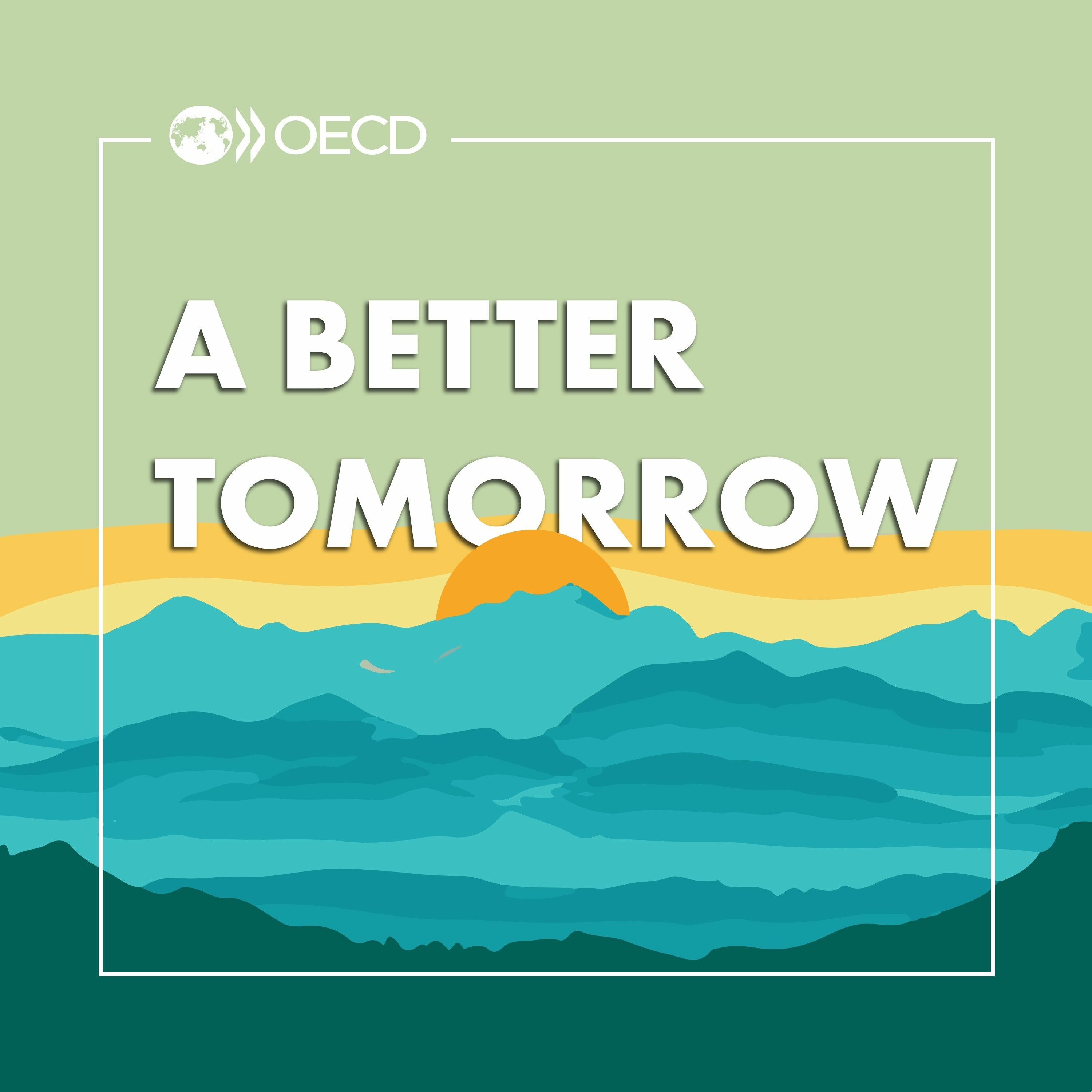
OECD PodcastsRetrofitting social security to new ways of working: OECD’s Monika QueisserThe days when people held a full-time job for most of their lives and accordingly received benefits are over. Nowadays, many of us are temps, self-employed, and artists. We work part-time, pick up gig work, take on zero-hour contracts. How do we reconcile social security like pensions, unemployment benefits, and medical insurance with these more fluid forms of work? We discuss this and ideas like Universal Basic Income with Monika Queisser, who is Head of Social Policy at the OECD.
Host: Kate Lancaster
Producer: Robin Allison Davis
Get the latest OECD content delivered directly to your inbox! Subscribe to our...
2019-02-2013 min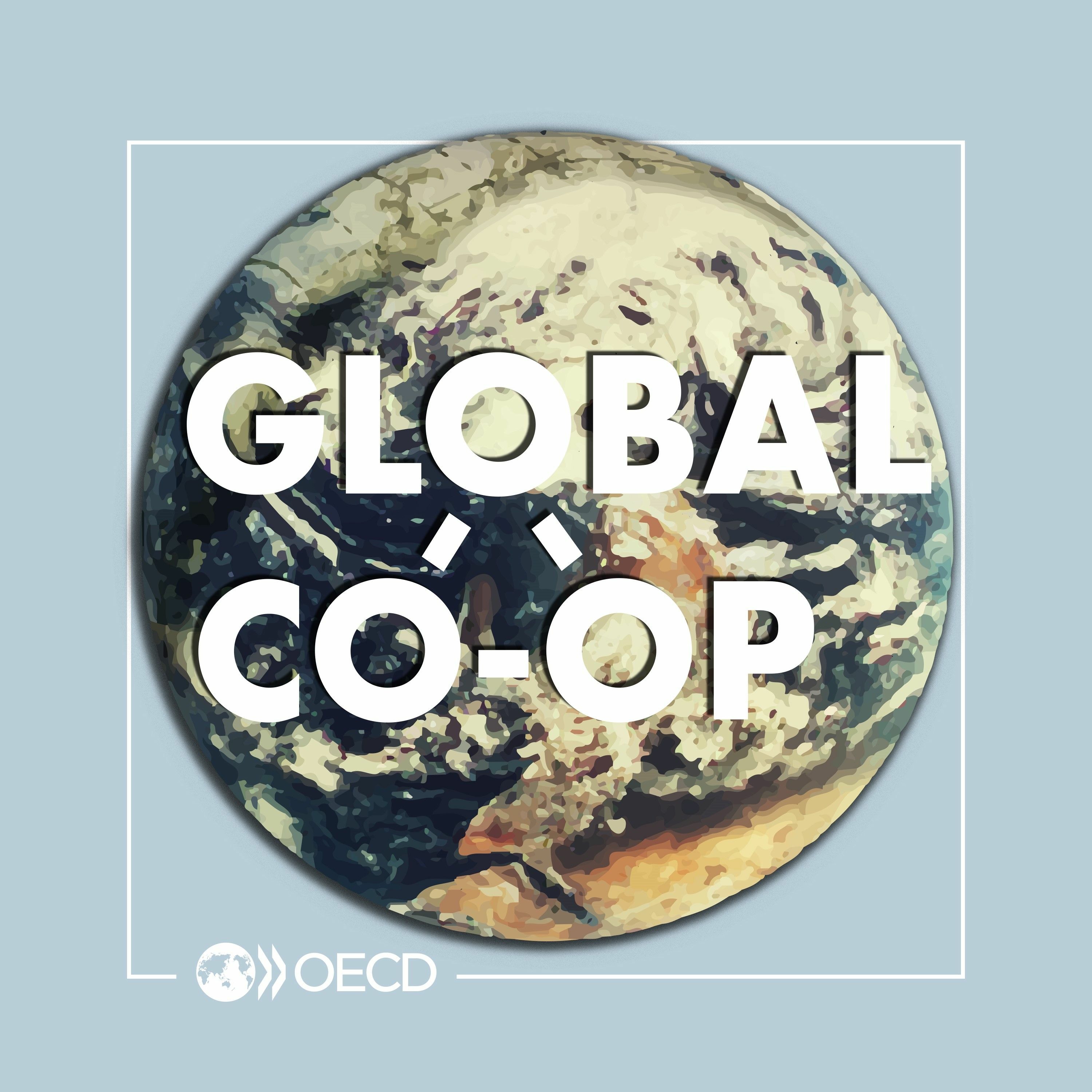
OECD PodcastsDigitalisation: “The global tax rules are changing.” – Pascal Saint-Amans, OECD tax chiefEverybody agrees that tech giants and all other businesses should pay their fair share of taxes where they create value. But is a digital tax the way to go? OECD tax chief Pascal Saint-Amans says no. The OECD has secured an agreement among 127 countries and jurisdictions to spearhead talks on changing the rules of the taxation game: shifting more taxing rights to market jurisdictions where goods and services—digital or not—are being consumed…away from the countries where multinational companies are headquartered. What’s at stake? Nothing short of changing fundamental tax rules to address the 21st century’s globalised...
2019-01-3019 min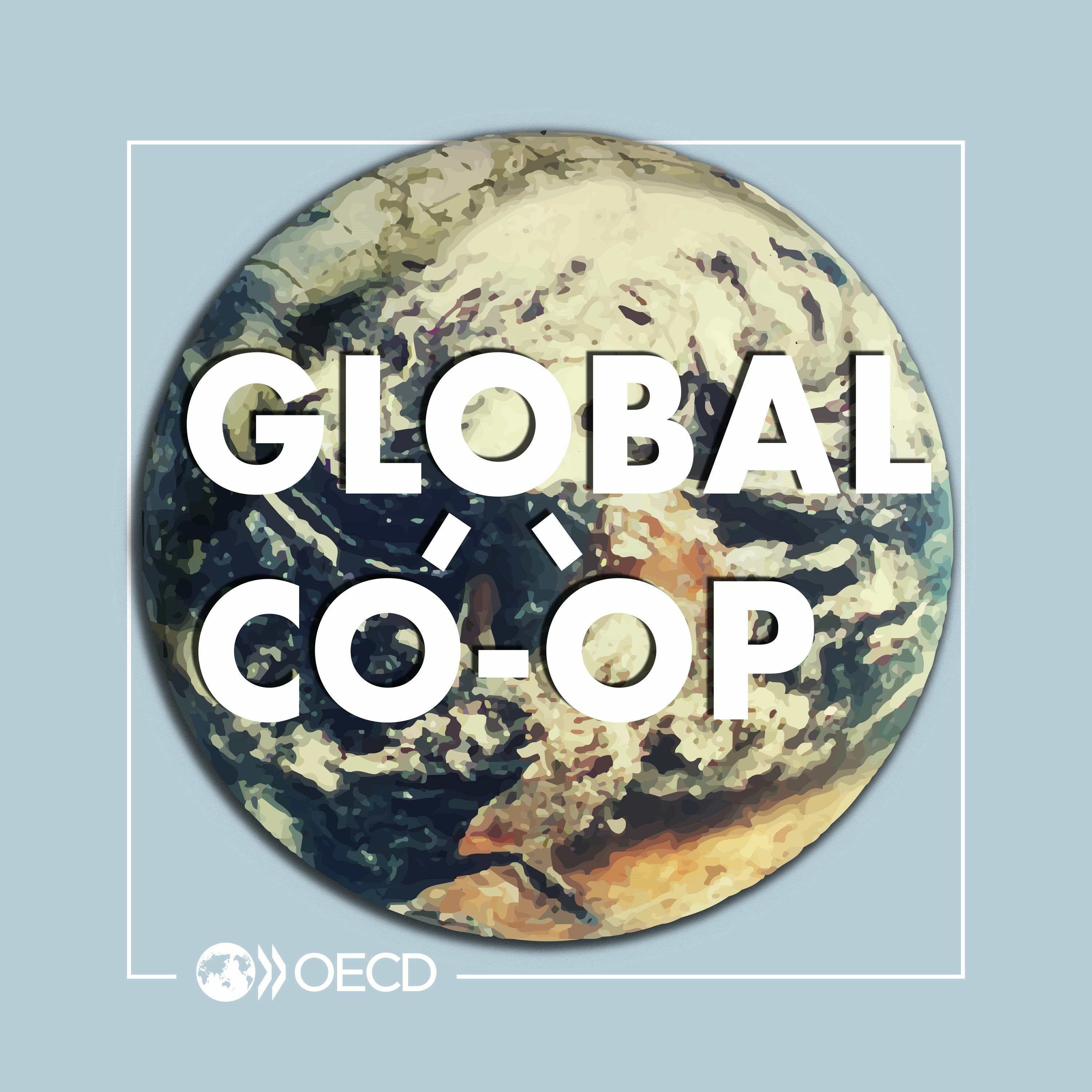
OECD PodcastsEconomic slowdown? Chief Economist Laurence Boone looks aheadOECD Chief Economist Laurence Boone reflects on the risks facing the world economy and the need for international co-operation.
For more information, go to:
http://www.oecd.org/economy/
https://www.oecd-ilibrary.org/economics
Host: Rory Clarke
Producer: Robin Allison Davis
Get the latest OECD content delivered directly to your inbox! Subscribe to our newsletters: www.oecd.org/newsletters
Follow us on social media: www.oecd.org/social-media
2019-01-2316 min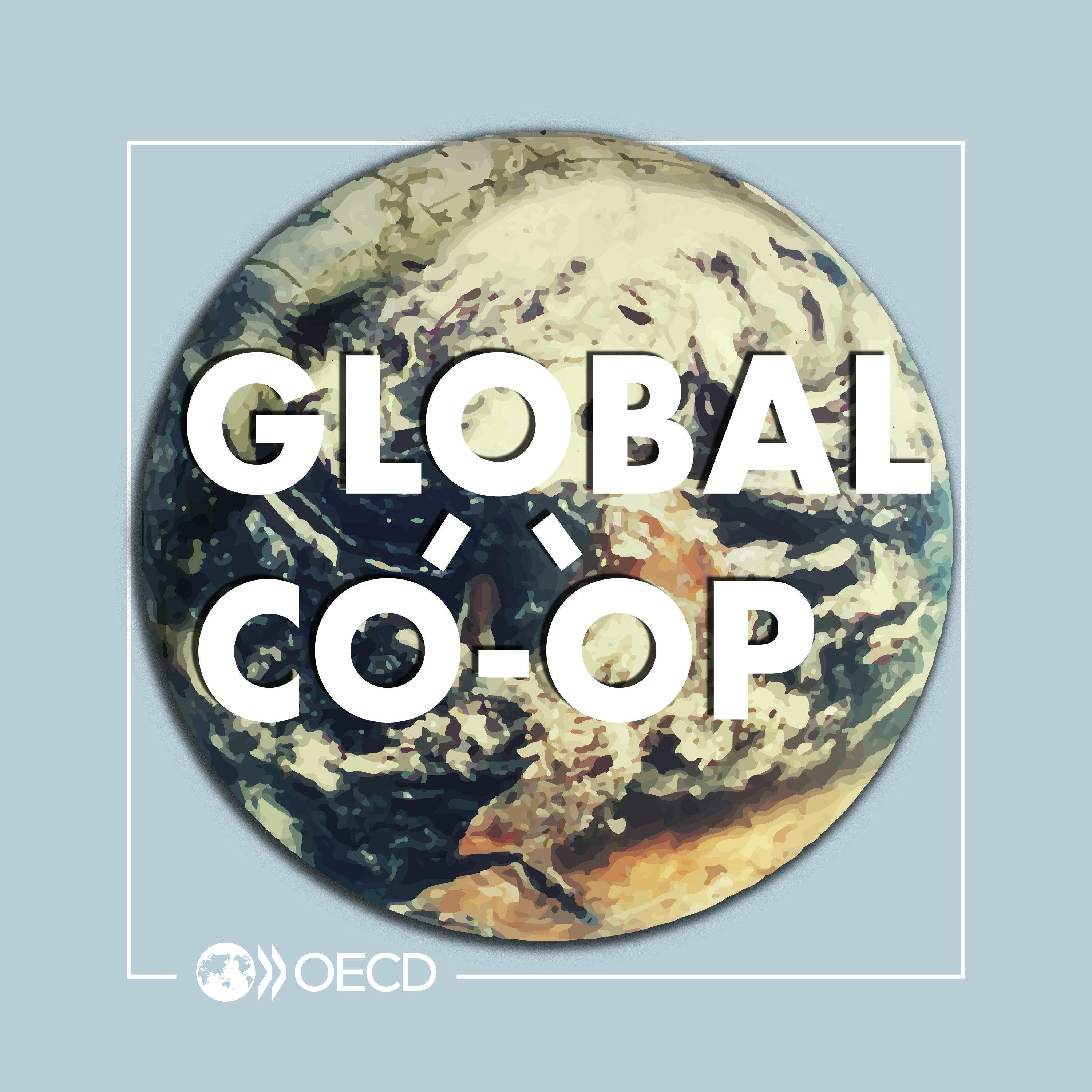
OECD PodcastsWorld Bank’s Penny Goldberg on Yellow Vests anger & global tradeWorld Bank chief economist Penny Goldberg discusses how global trade has exacerbated inequality between rural and urban areas, and what to do about it.
For more information go to:
http://www.oecd.org/trade/
https://www.oecd-ilibrary.org/trade
Host: Clara Young
Executive Producer: Robin Allison Davis
Team Lead: Rory Clarke
Get the latest OECD content delivered directly to your inbox! Subscribe to our newsletters: www.oecd.org/newsletters
Follow us on social media: www.oecd.org/social-media
2019-01-0913 min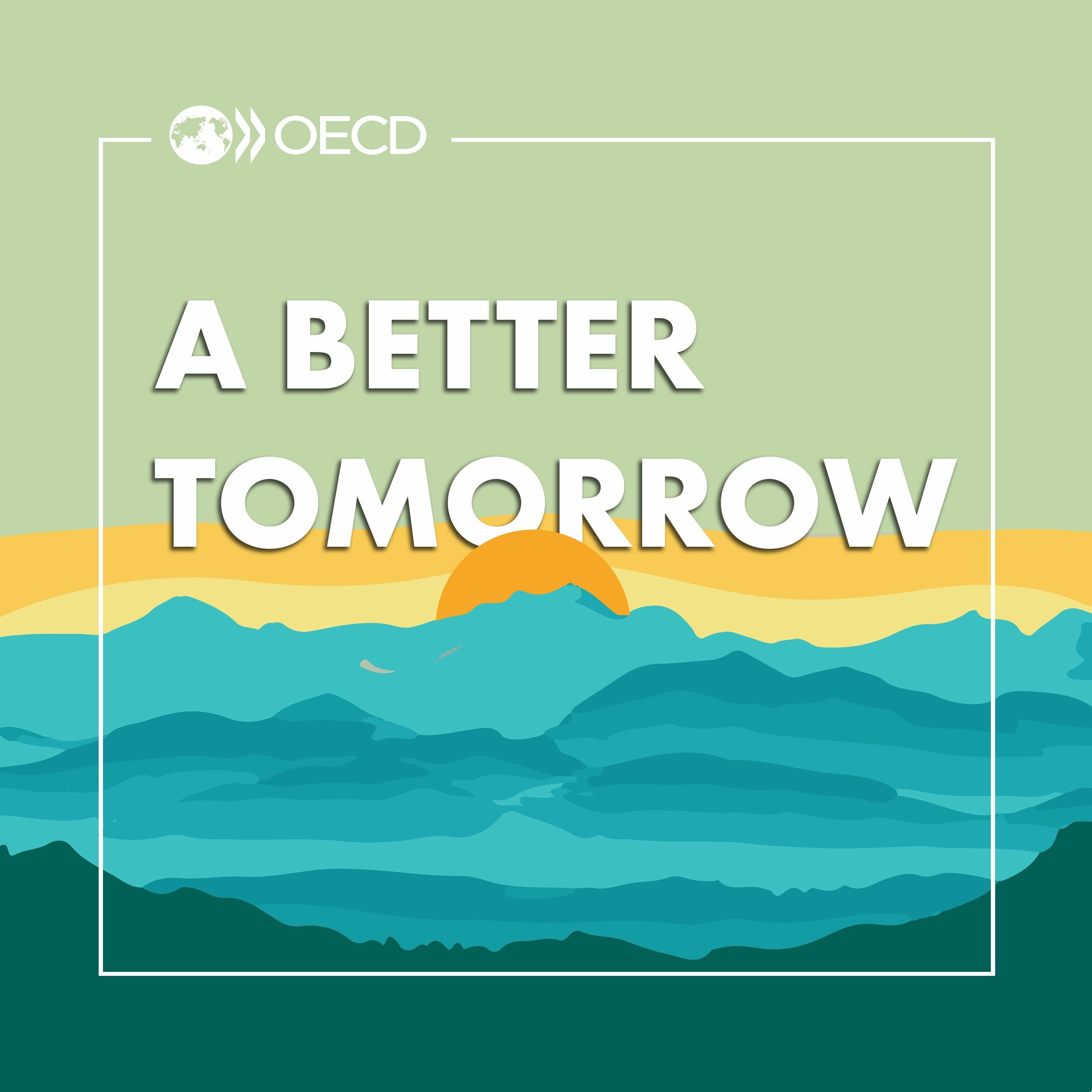
OECD PodcastsWhat happens for migrants as they settle into their new country?Migration integration is a vital issue - and a long-term investment that pays off, says Thomas Liebig of the OECD. If governments succeed in effectively integrating migrants, then everyone wins. The social and economic costs of migration drop and the benefits of migration grow, for migrants, communities and countries alike.
For more information, go to:
http://www.oecd.org/migration/
https://www.oecd-ilibrary.org/social-issues-migration-health
Host: Kate Lancaster
Sound engineer: Borja Ortuzar
Get the latest OECD content delivered directly to your inbox! Subscribe to our newsletters: www.oecd.org/newsletters
Follow us on social media: www.oecd.org/social-media
2018-12-0515 min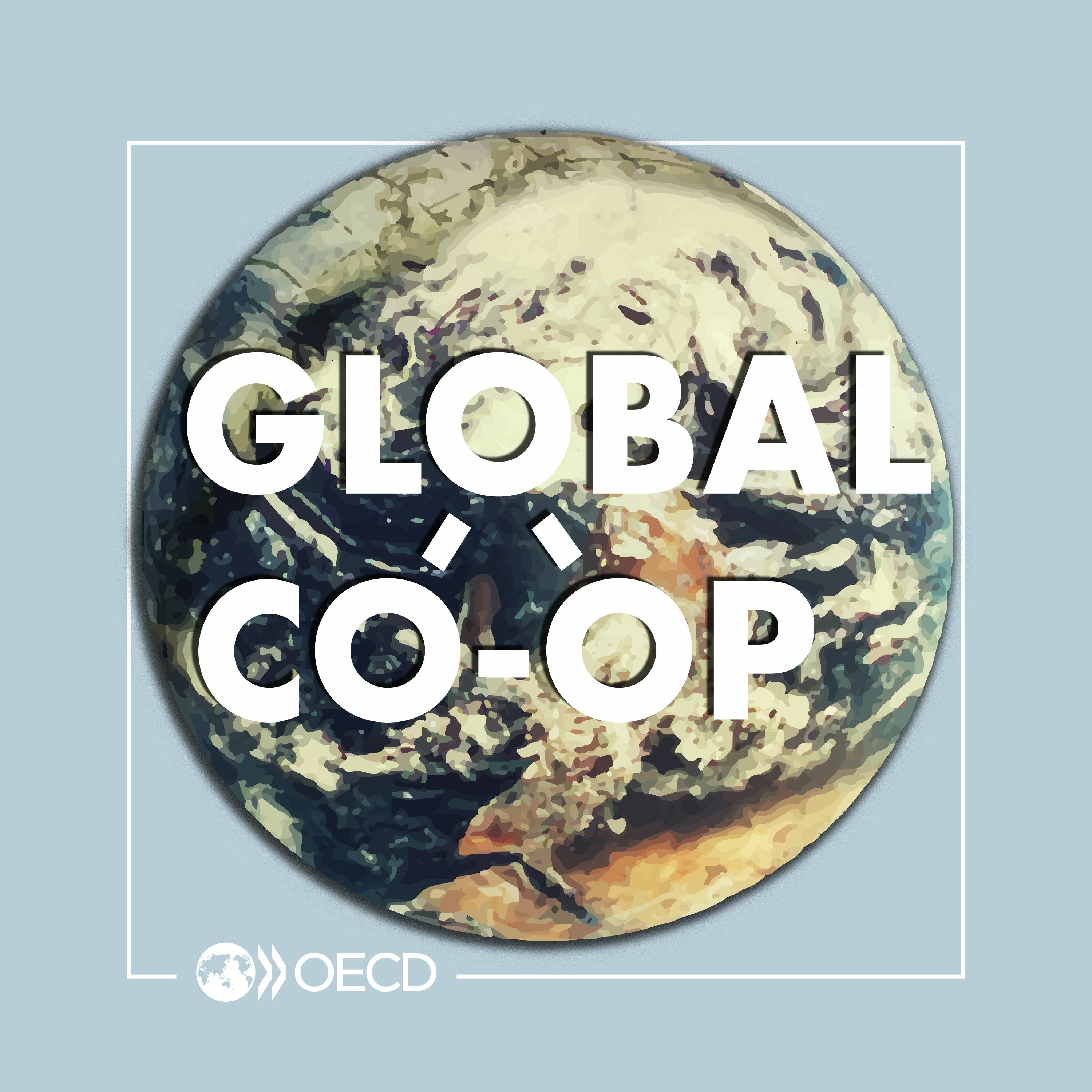
OECD PodcastsGlobal warming under 1.5 °C? Yale professor John Roemer says we can do it.We have 12 years to make changes and keep the temperature rise under 1.5 °C. This was the message from the IPCC, which is the UN’s international scientific body on climate change. Economist John Roemer shares his blueprint on how to head off climate catastrophe.
For more information go to:
http://www.oecd.org/environment/
https://www.oecd-ilibrary.org/environment
Host: Clara Young
Producer: Robin Allison Davis
Get the latest OECD content delivered directly to your inbox! Subscribe to our newsletters: www.oecd.org/newsletters
Follow us on social media: www.oecd.org/social-media
2018-11-2815 min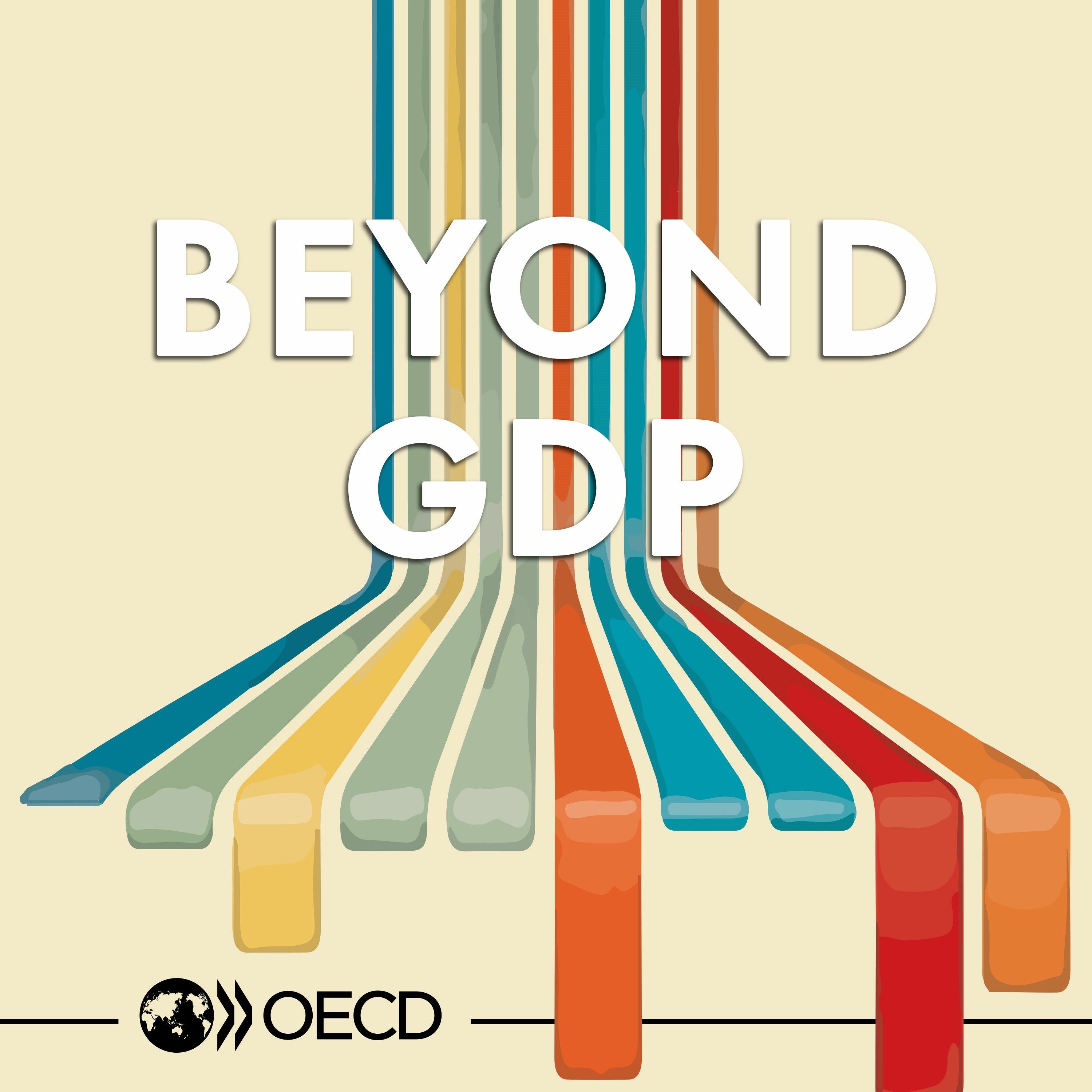
OECD PodcastsActivist billionaire Nick Hanauer calls out neo-liberal economicsAre humans better than the purely self-seeking, competitive, 100% rational agents Smith and Friedman make us out to be? Billionaire tech investor Nick Hanauer thinks not. He thinks it’s time to replace the zero-sum, trickle-down economic model with a kinder, gentler and more realistic one that takes into account humans’ capacity to cooperate.
For more information go to:
www.oecd.org/economy/
www.oecd-ilibrary.org/economics
Host: Clara Young
Producer: Robin Allison Davis and Lory Martinez
Get the latest OECD content delivered directly to your inbox! Subscribe to our newsletters: www.oecd.org/newsletters
Follow us on social media: www.oecd.o...
2018-11-1416 min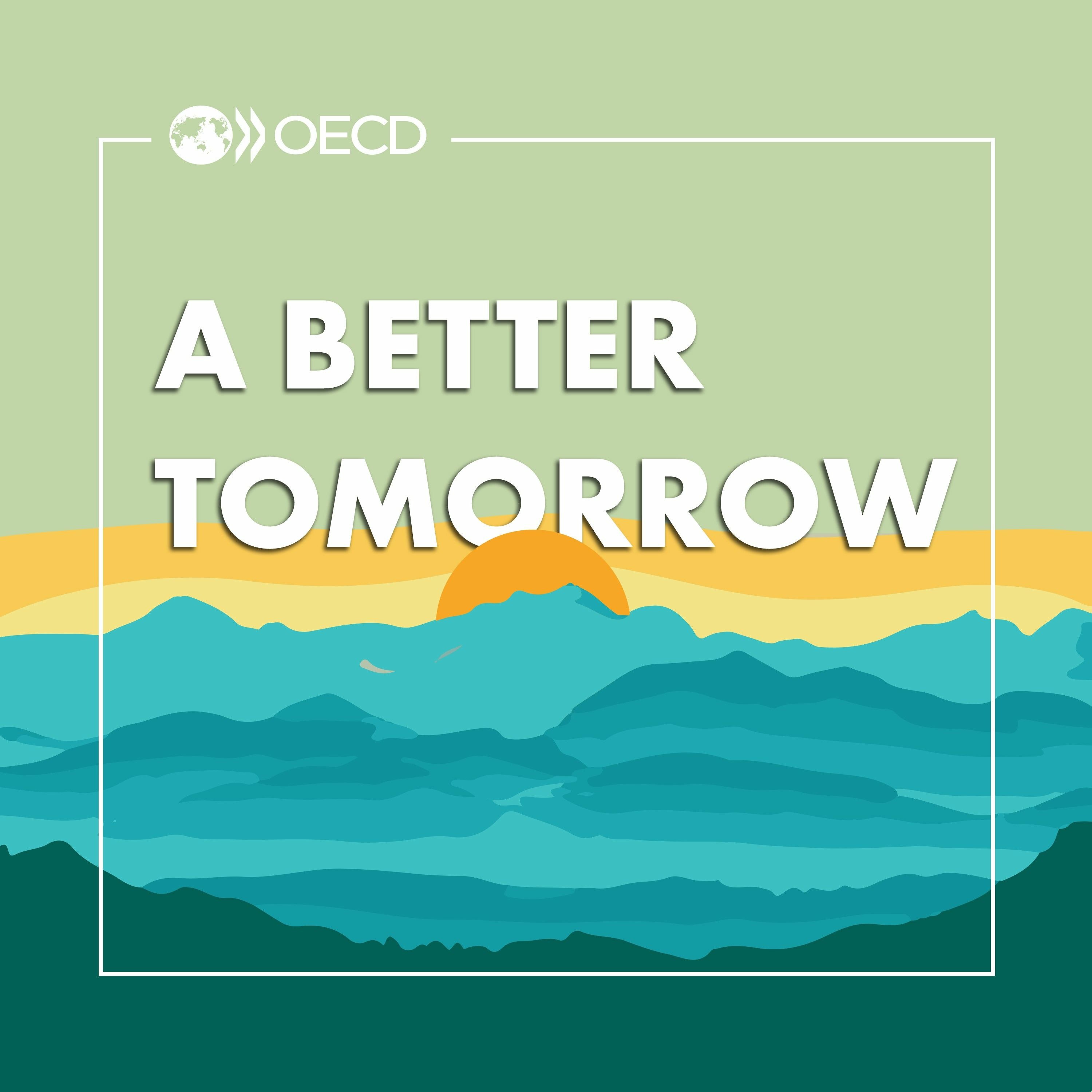
OECD PodcastsUnderstanding the past to plan for the future of workProfessor Robert Allen provides some historical context for the current upheavals in the world of work and discusses why adjusting to these changes may be more challenging than we think.
For more information go to:
http://www.oecd.org/employment/
https://www.oecd-ilibrary.org/employment
Host: Kate Lancaster
Producer: Robin Allison Davis
Get the latest OECD content delivered directly to your inbox! Subscribe to our newsletters: www.oecd.org/newsletters
Follow us on social media: www.oecd.org/social-media
2018-11-0814 min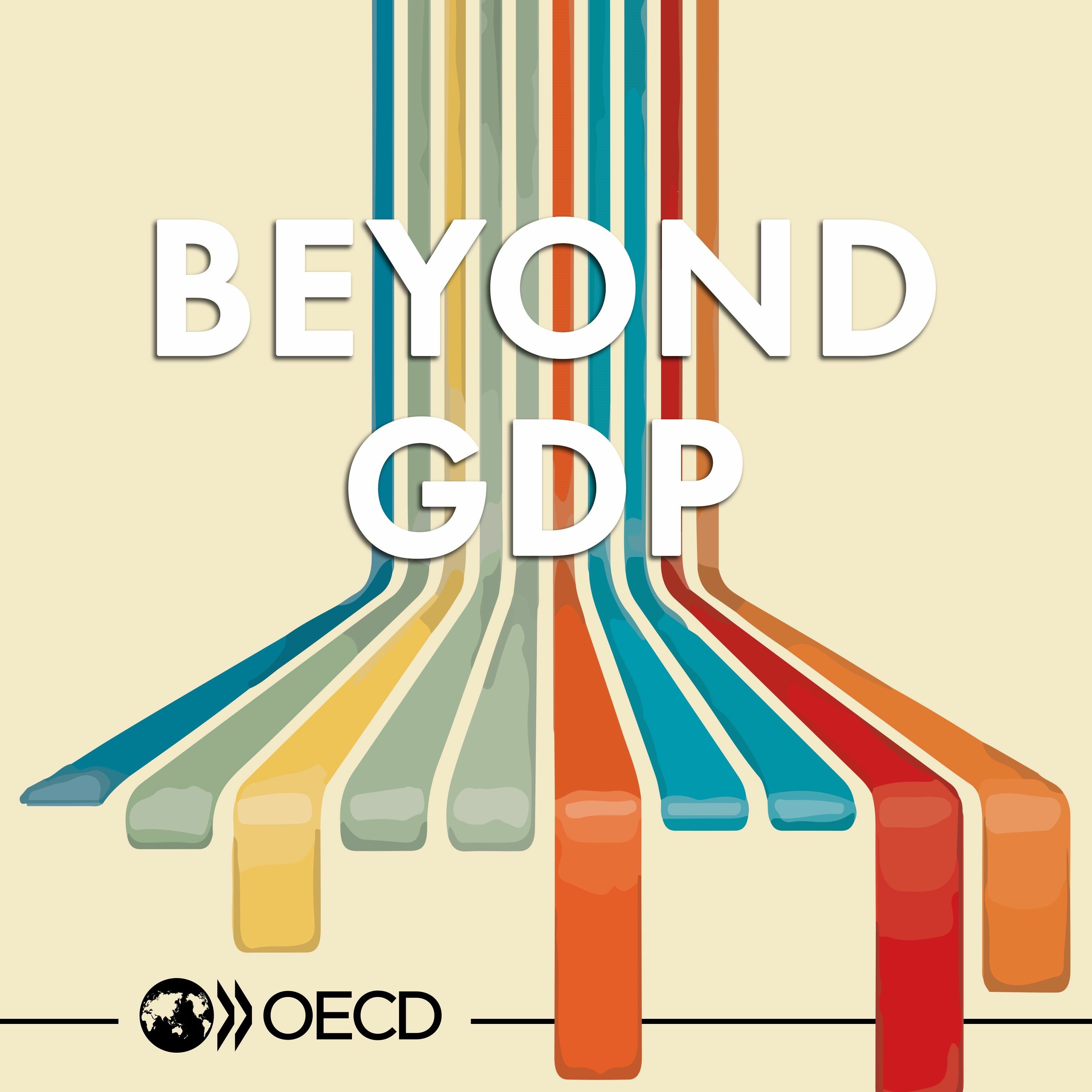
OECD PodcastsMaeve Cohen on why traditional economics are broken and what needs to changeOur social world is incredibly nuanced and complex, says Maeve Cohen of Re-thinking Economics. It cannot be condensed into one economic model, we need to be holistic and humble, looking at different schools of thought and being prepared to acknowledge when we’re wrong.
For more information go to:
www.oecd.org/economy/
www.oecd-ilibrary.org/economics
Host: Kate Lancaster
Producer: Robin Allison Davis
Get the latest OECD content delivered directly to your inbox! Subscribe to our newsletters: www.oecd.org/newsletters
Follow us on social media: www.oecd.org/social-media
2018-10-3113 min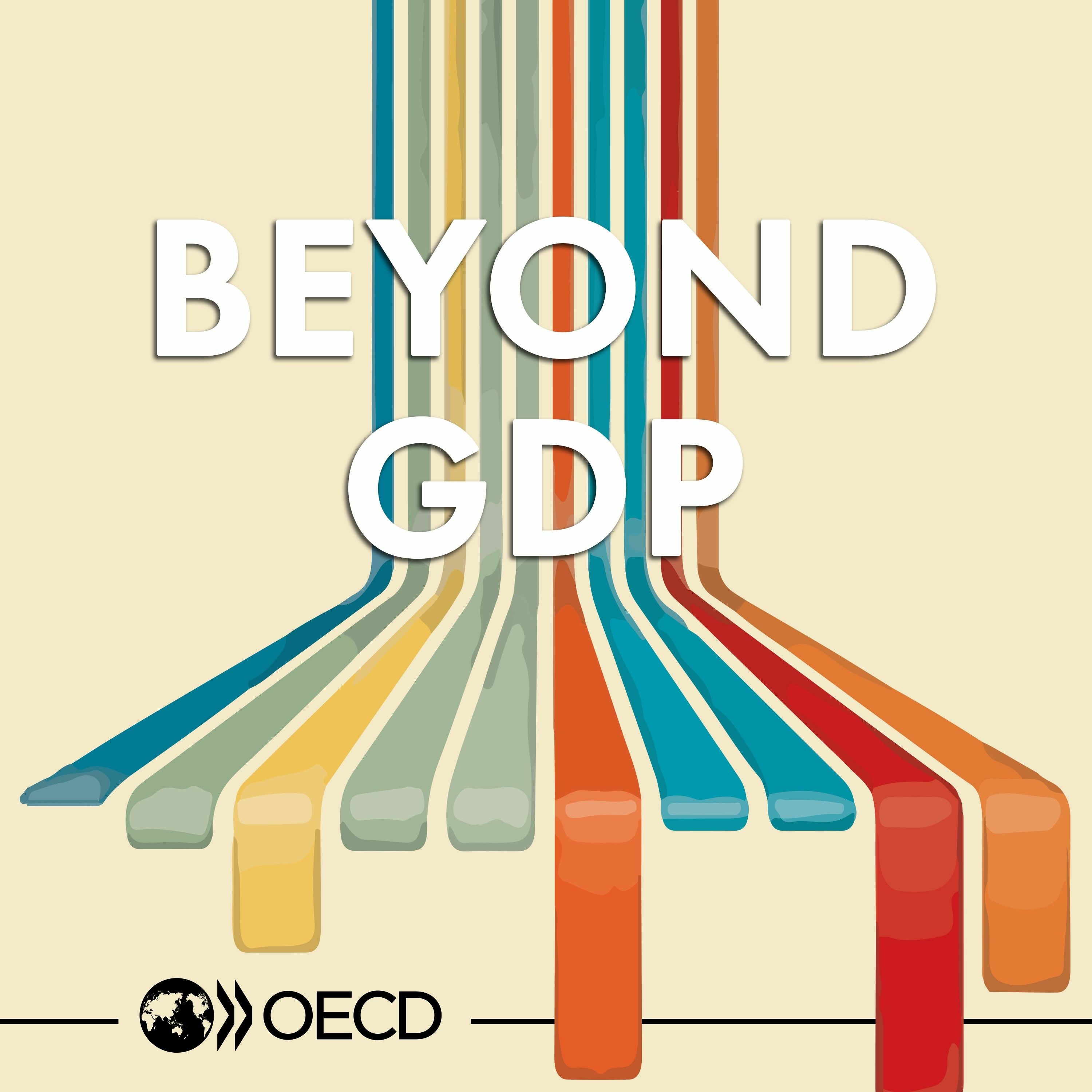
OECD PodcastsSteve Keen says it's all about the money: a contrarian's take on the 2008 crisisProfessor Steve Keen, a self-described contrarian and anti-economist, talks with us about what caused the financial crisis and how to avoid it in the future.
For more information go to:
www.oecd.org/economy/
www.oecd-ilibrary.org/economics
Host: Kate Lancaster
Producer: Robin Allison Davis
Get the latest OECD content delivered directly to your inbox! Subscribe to our newsletters: www.oecd.org/newsletters
Follow us on social media: www.oecd.org/social-media
2018-10-2414 min
OECD PodcastsErika Widegren on the need to re-imagine EuropeTen years after the financial crisis, Erika Widegren talks about what Europe needs to do to avoid another meltdown.
For more information go to:
www.oecd.org/economy/
www.oecd-ilibrary.org/economics
Host: Kate Lancaster
Producer: Robin Allison Davis
Get the latest OECD content delivered directly to your inbox! Subscribe to our newsletters: www.oecd.org/newsletters
Follow us on social media: www.oecd.org/social-media
2018-10-1714 min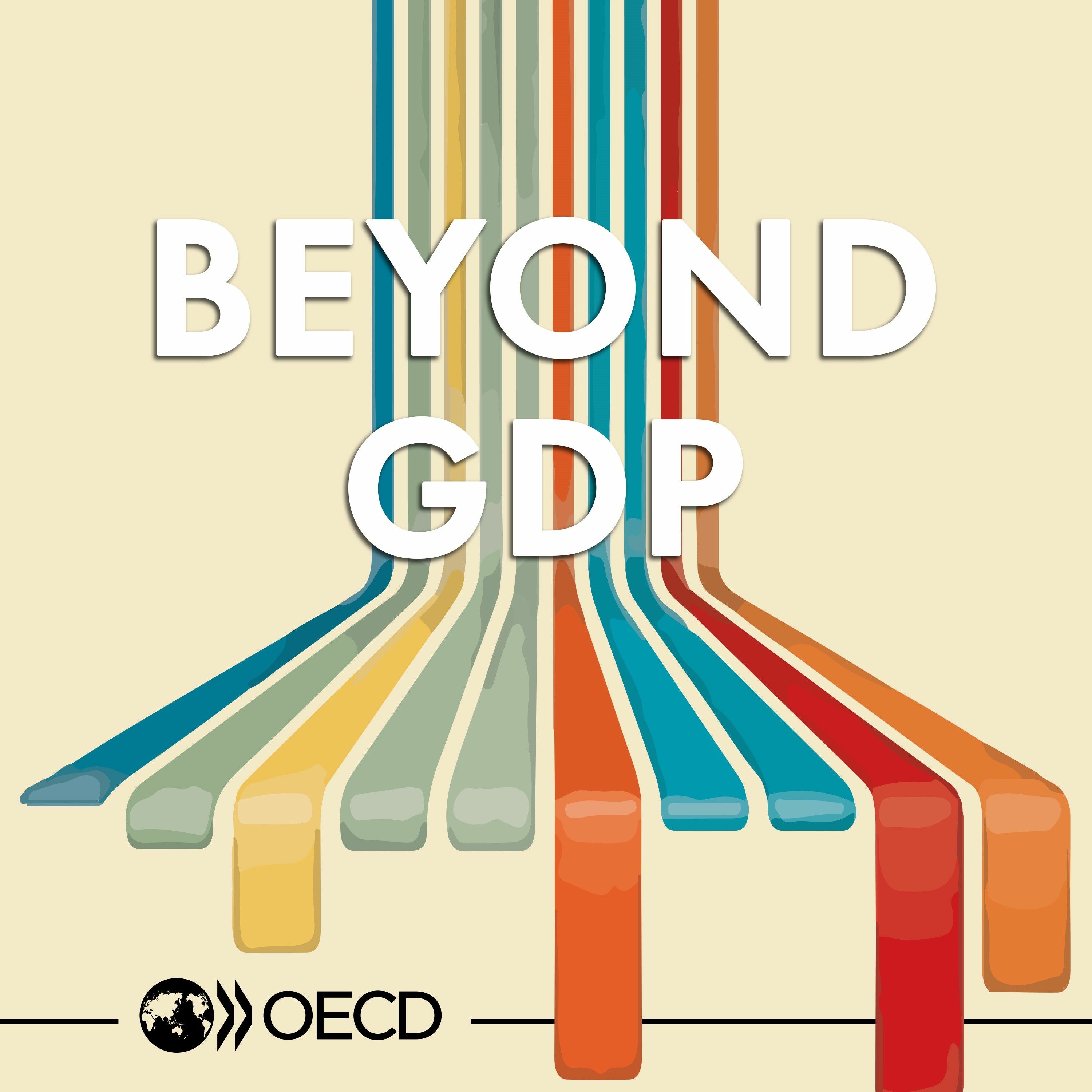
OECD PodcastsYanis Varoufakis on austerity and his political party, DiEMOne country that symbolised the crisis of the last 10 years was Greece. Its insolvency embarked the country on a long regime of bail-outs and austerity. This August, Greece officially emerged from the crisis, with the OECD forecasting GDP growth again. So, did the austerity work? The former Greek finance minister and co-founder of the Democracy in Europe Movement (DiEM) remains unconvinced. Mr Varoufakis was a guest at the OECD’s “10 years after the crisis” conference.
For more information go to:
www.oecd.org/economy/
www.oecd-ilibrary.org/economics
Host: Clara Young
Producer: Robin Allison Davis and Borja Ortuzar
Get the latest...
2018-10-1018 min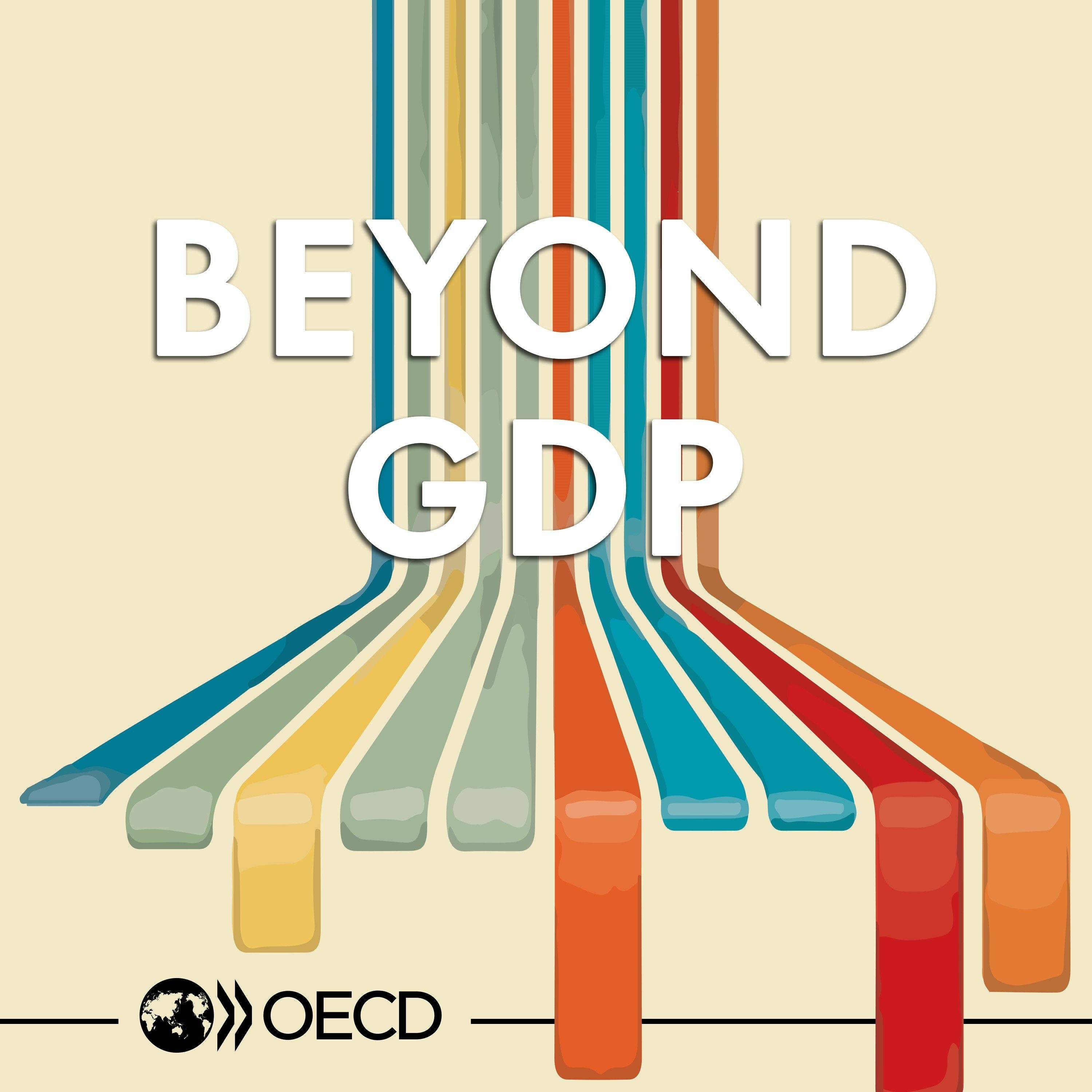
OECD PodcastsThe mystery of stagnating wages. David Weil elucidates.If you’re scratching your head over stuck wages and dwindling job benefits, massive corporate outsourcing is one place to look. David Weil, author of The Fissured Workplace, explains how companies’ use of indirect contractors is one reason wages aren’t going up. David Weil is the Dean and Professor at Brandeis University’s Heller School of Social Policy and Management. He served as US Wage and Hour Administrator at the Department of Labor during the last three years of the Obama administration.
For more information go to:
www.oecd.org/employment/
www.oecd-ilibrary.org/employment
Host: Clara Young
Producer: Robin Al...
2018-09-2816 min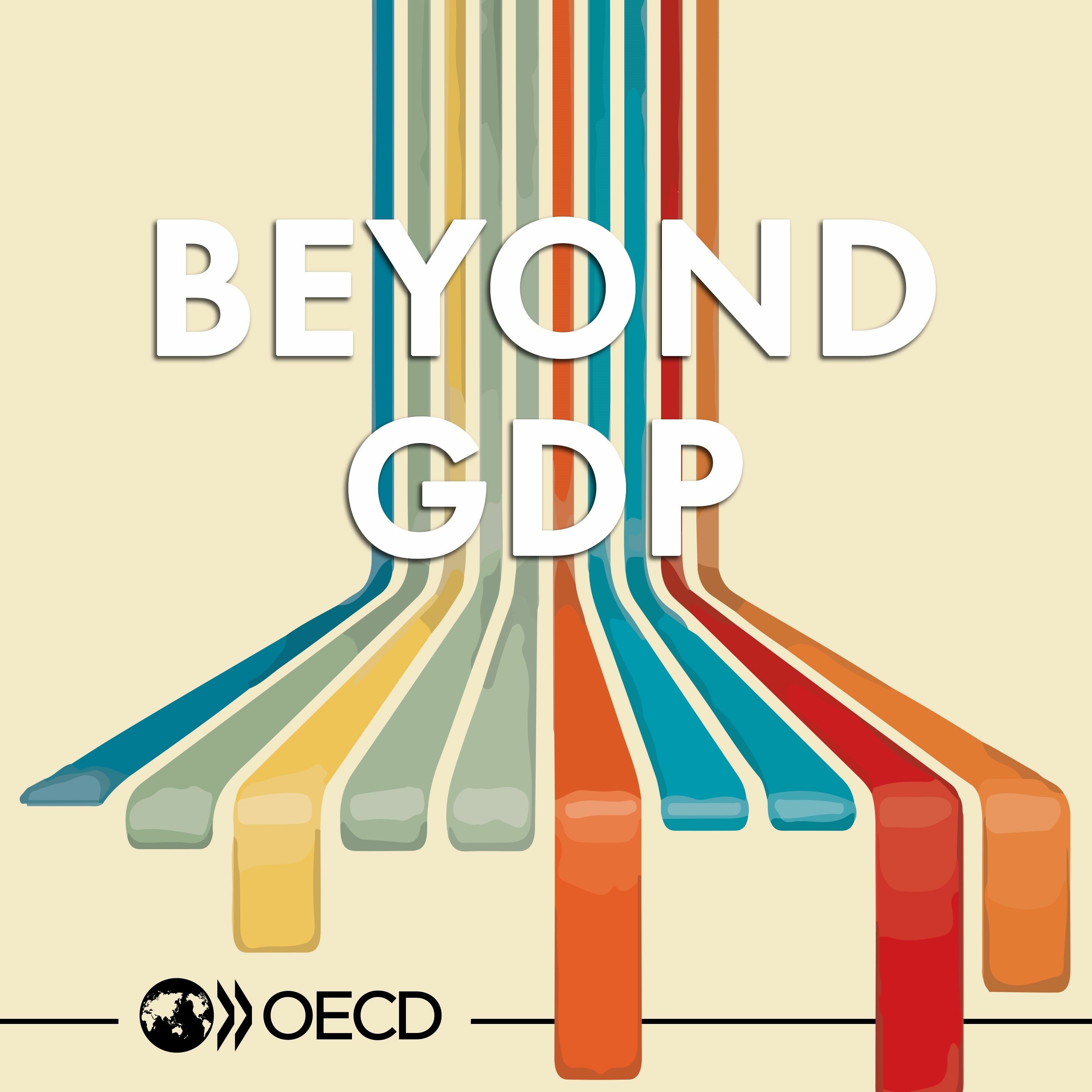
OECD PodcastsJeremias Prassl on the gig economyWhat’s so new about the gig economy, anyway?
Jeremias Prassl, author of Humans as a Service, says we’ve had “uberised” jobs in the past; that experience can come in handy when it comes to dealing with gig workers today.
For more information go to:
www.oecd.org/employment/
www.oecd-ilibrary.org/employment
Host: Clara Young
Producer: Alison Benney
Get the latest OECD content delivered directly to your inbox! Subscribe to our newsletters: www.oecd.org/newsletters
Follow us on social media: www.oecd.org/social-media
2018-09-1413 min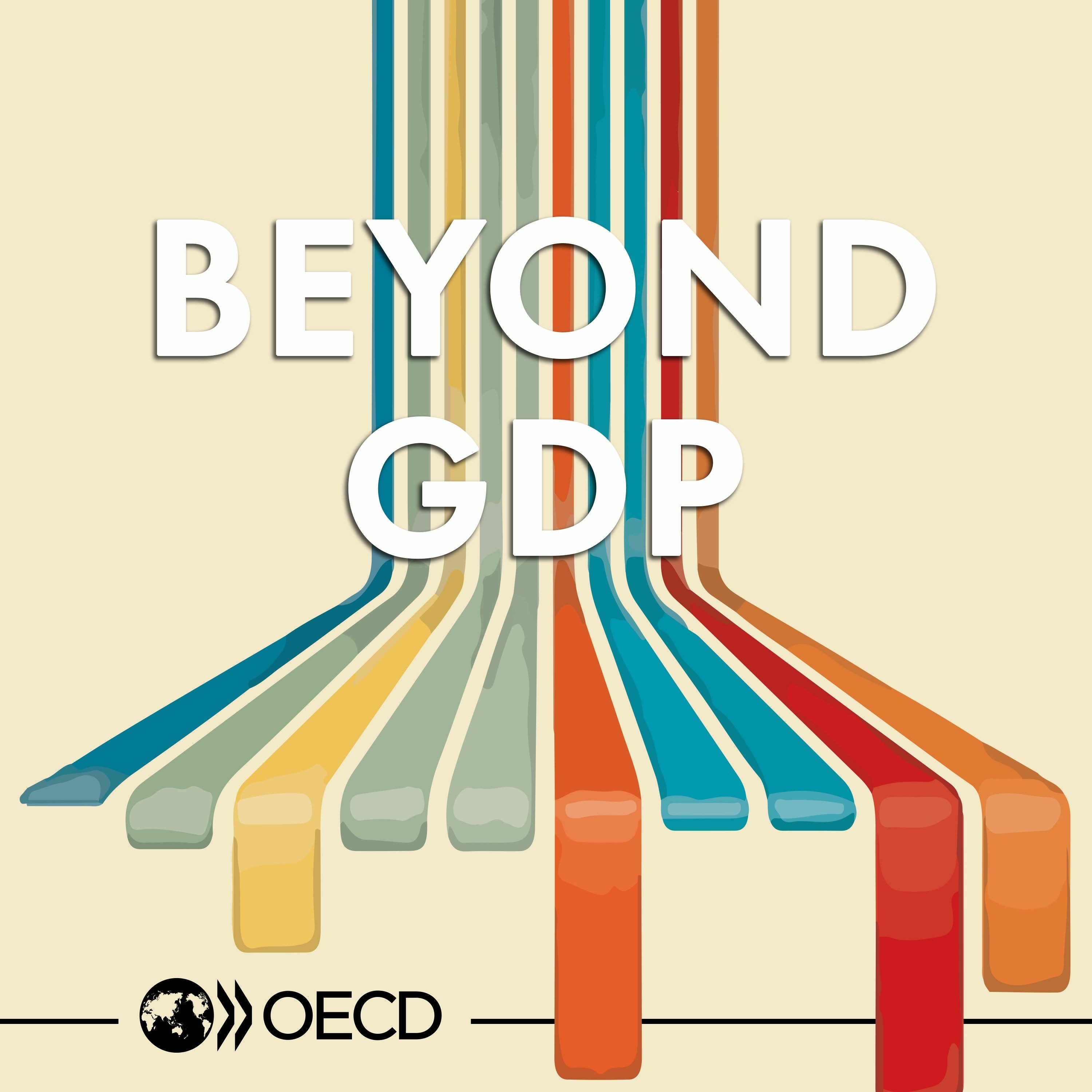
OECD PodcastsEconomiste Michel Camdessus sur la montée des inégalités dans le mondeEn marge du forum sur les marches émergents organisé à l’OCDE le mercredi 11 juin 2018, Michel Camdessus ancien Directeur Général du FMI et Gouverneur de la Banque de France s’exprime sur la nécessité de réinventer la coopération internationale dans un contexte de montée croissante des inégalités partout dans le monde.
For more information go to:
www.oecd.org/economy/
www.oecd-ilibrary.org/economics
Host: Brice Tailly
Producer: Robin Allison Davis, Alison Benney
Get the latest OECD content delivered directly to your inbox! Subscribe to our newsletters: www.oecd.org/newsletters
Follow us on social media...
2018-09-1313 min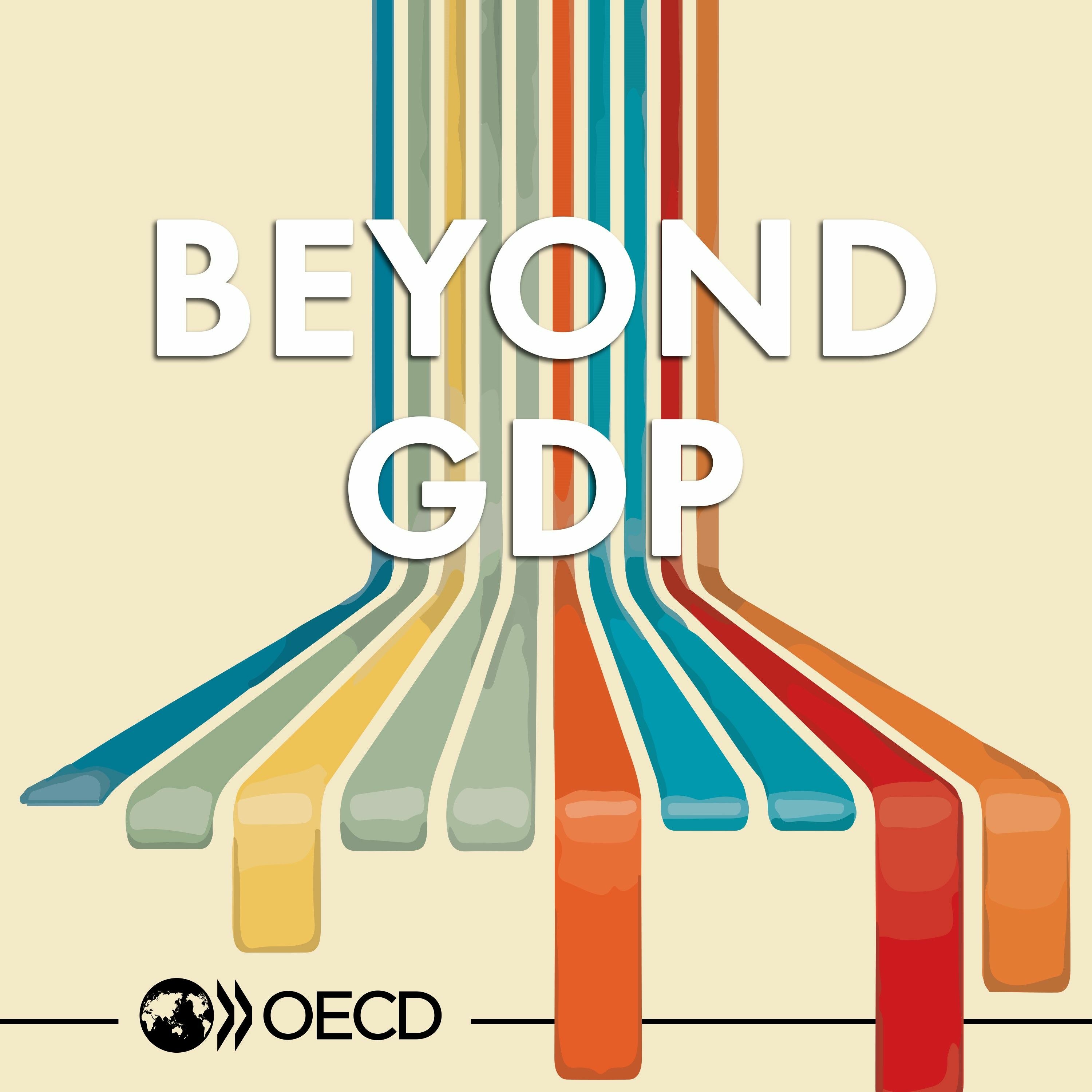
OECD PodcastsMichael Bordo on the 10-year anniversary of the 2008 crisisTen years after the crisis: Regulate, yes, but how much?
Economic historian Michael Bordo reflects on the state of play 10 years after the Lehman Brothers failure and warns against the temptation to over-regulate.
For more information go to:
http://www.oecd.org/economy/
https://www.oecd-ilibrary.org/economics
Host: Clara Young
Producer: Alison Benney
Get the latest OECD content delivered directly to your inbox! Subscribe to our newsletters: www.oecd.org/newsletters
Follow us on social media: www.oecd.org/social-media
2018-09-1317 min